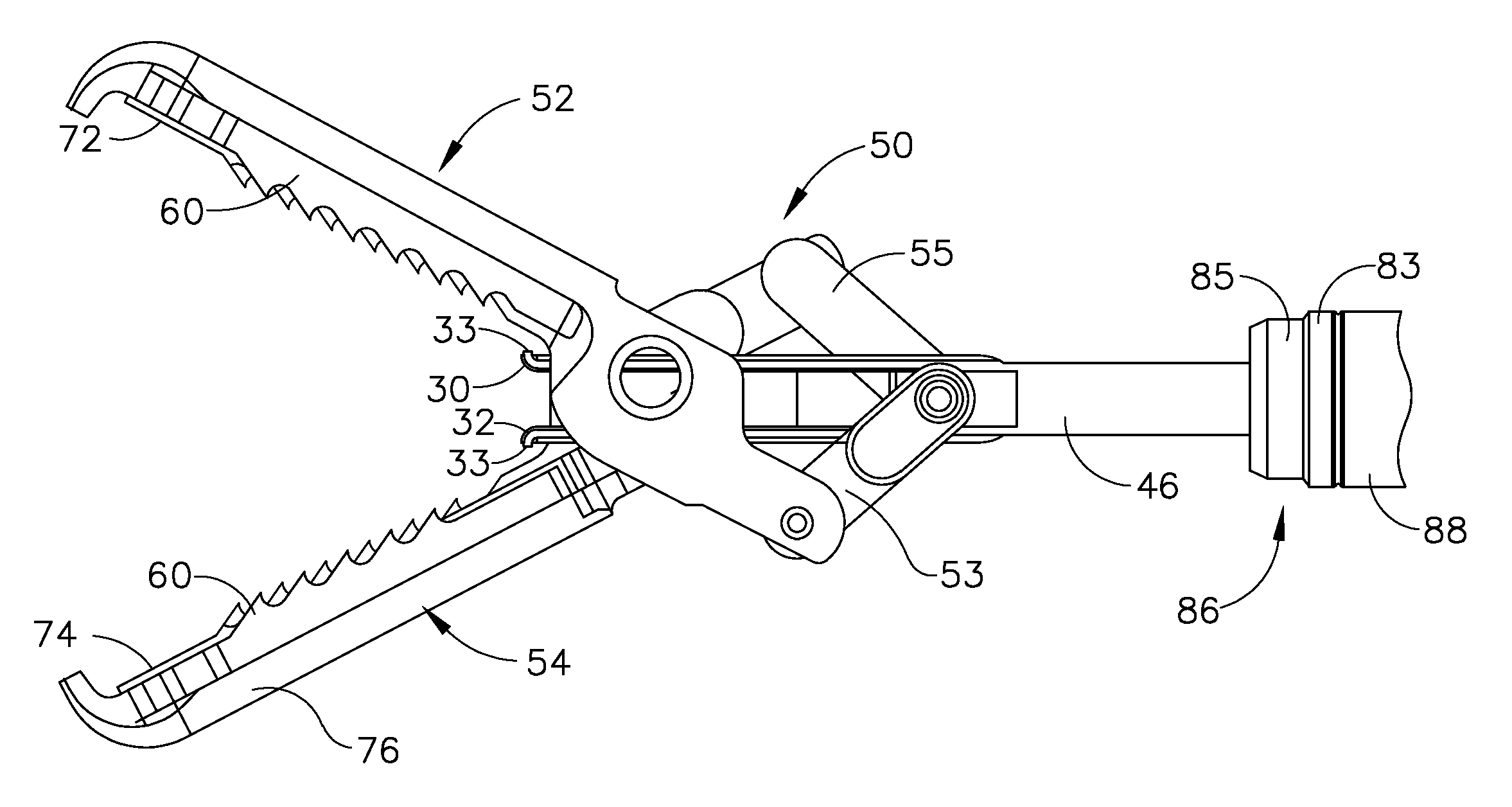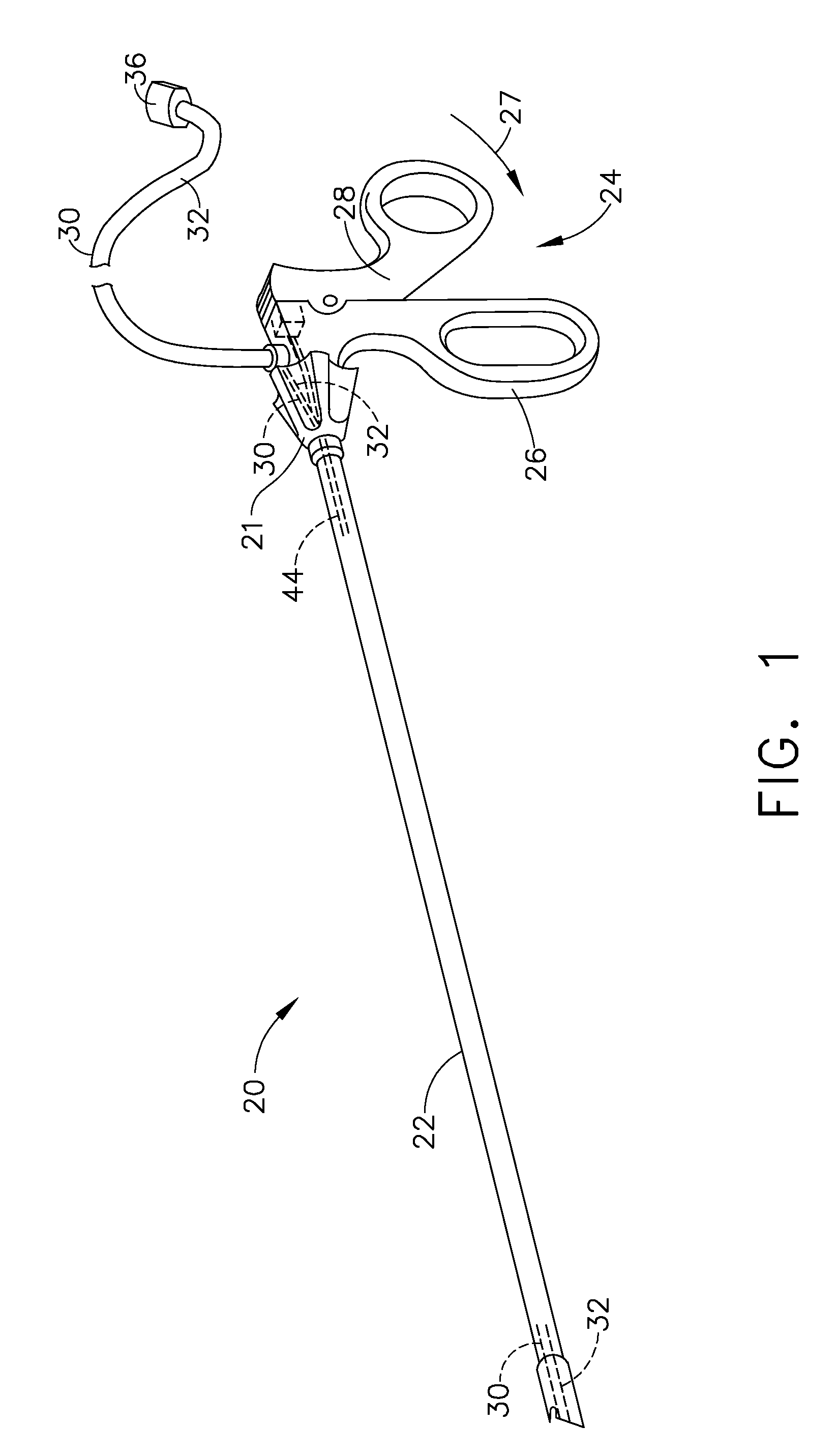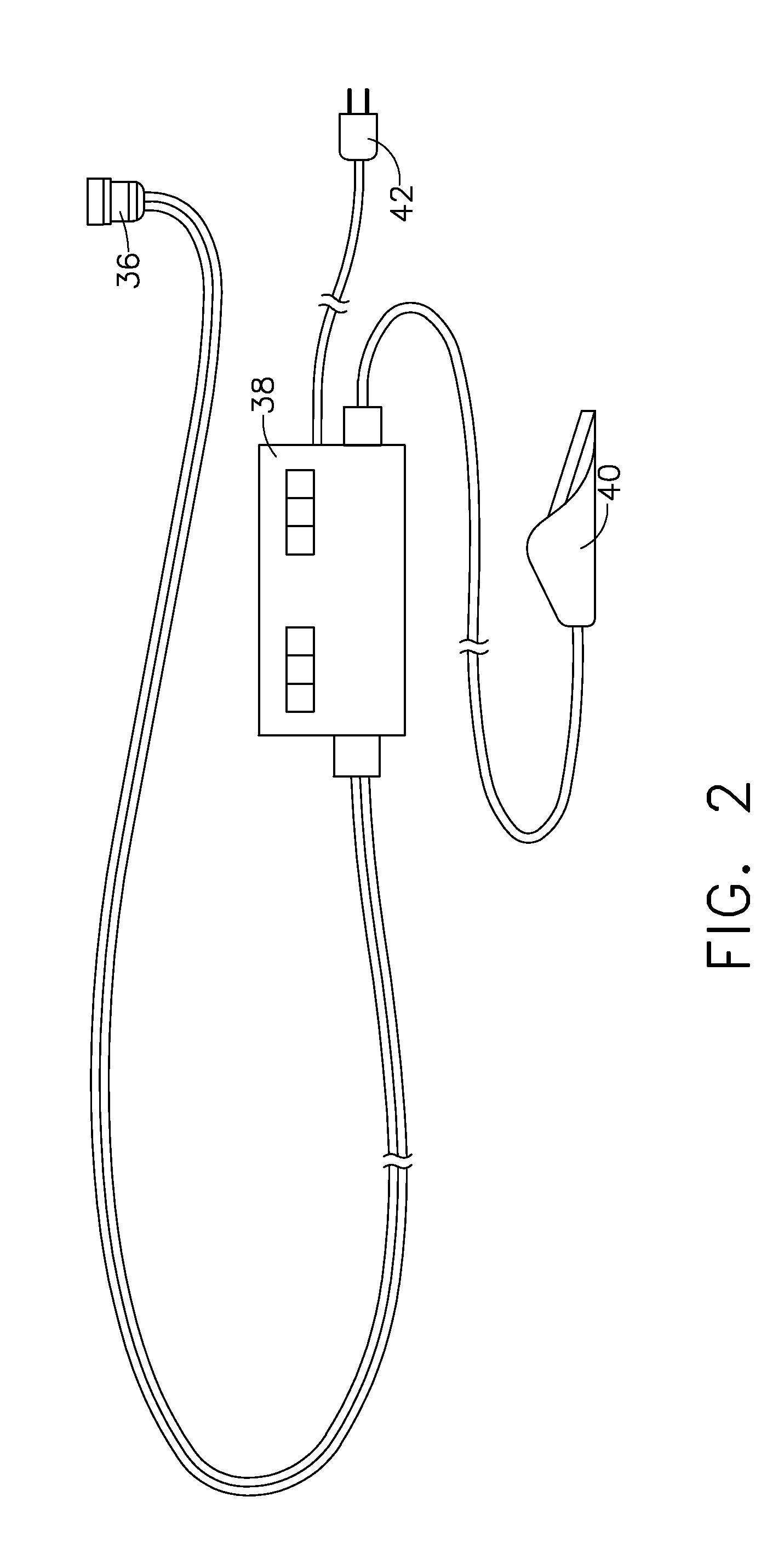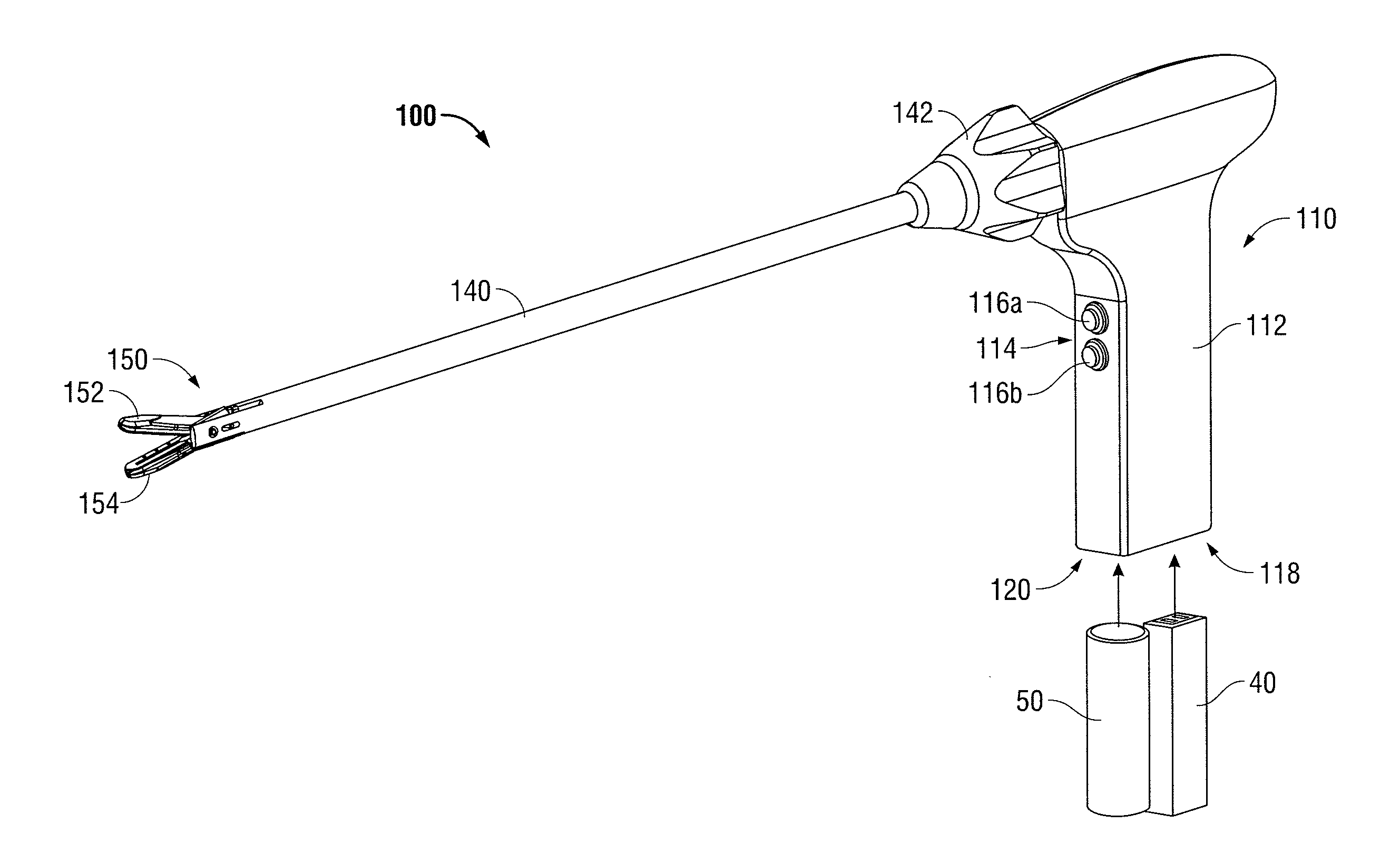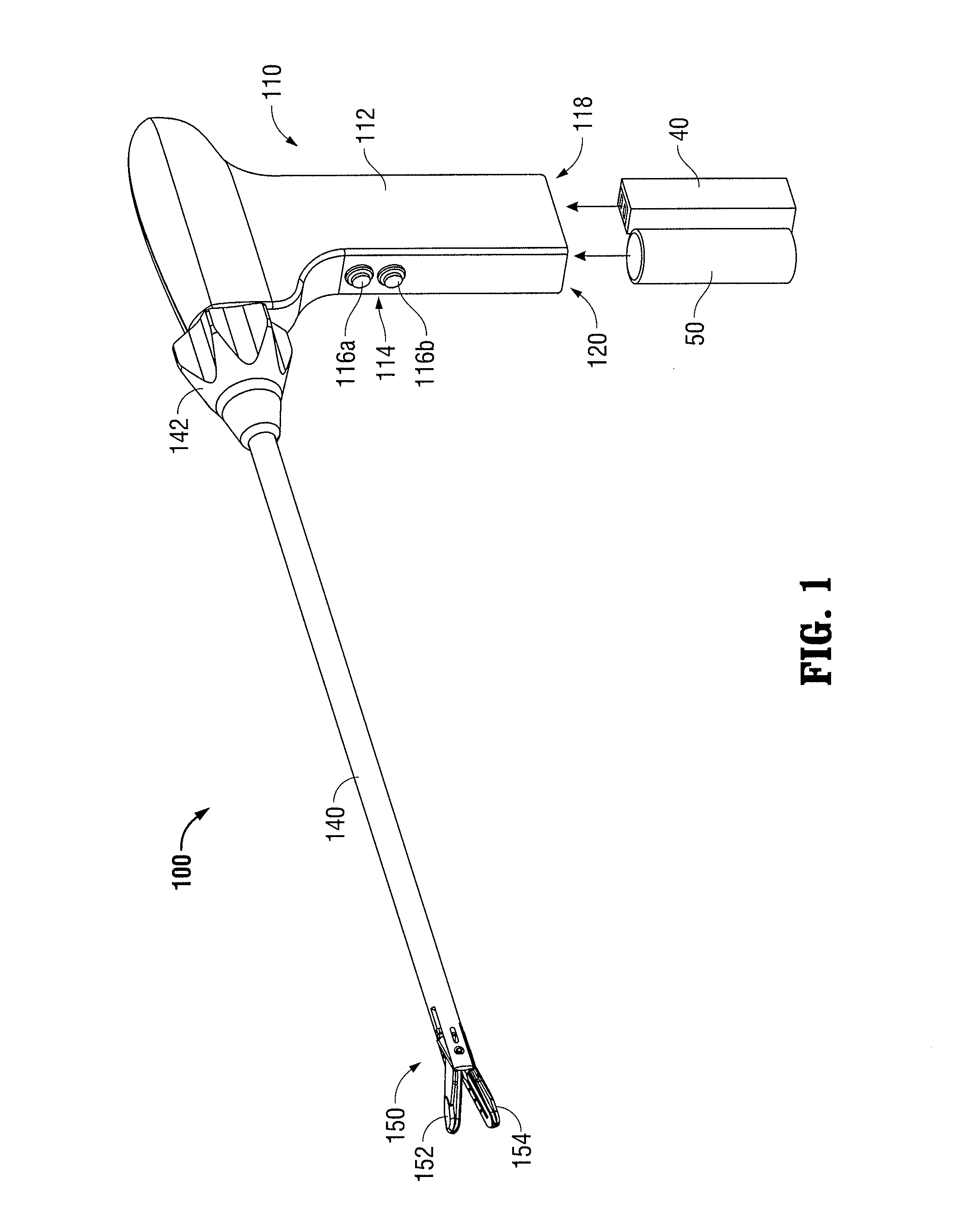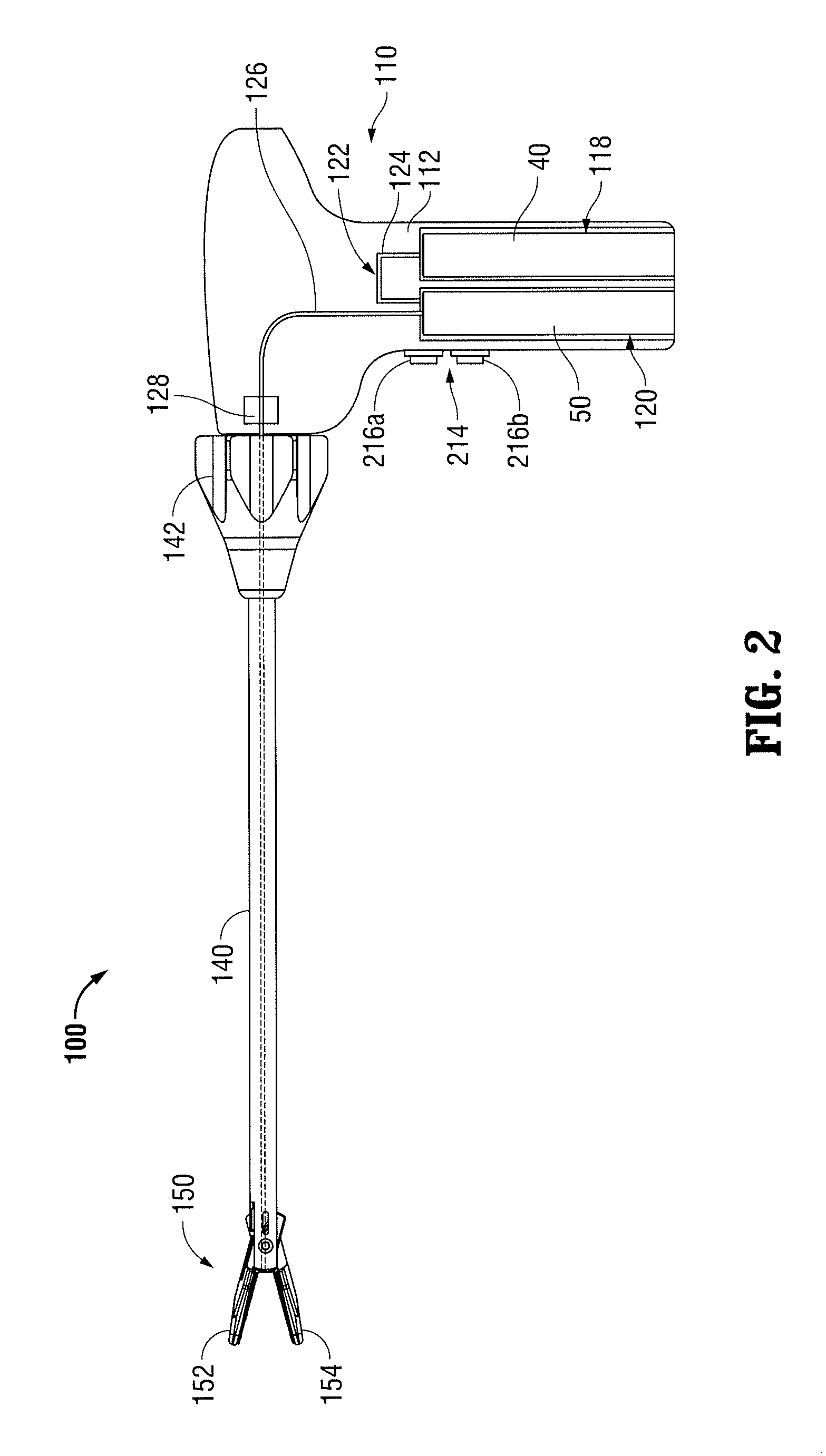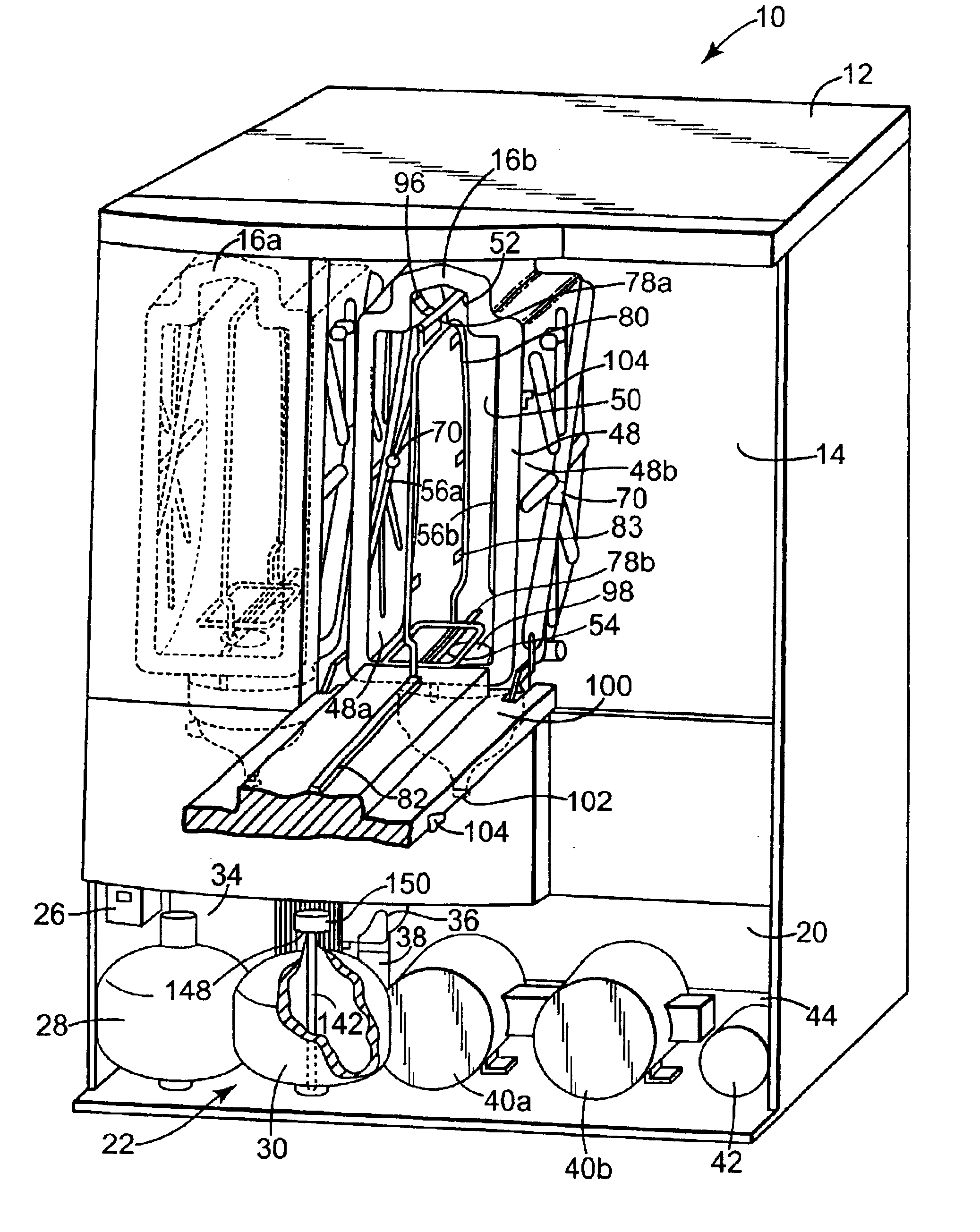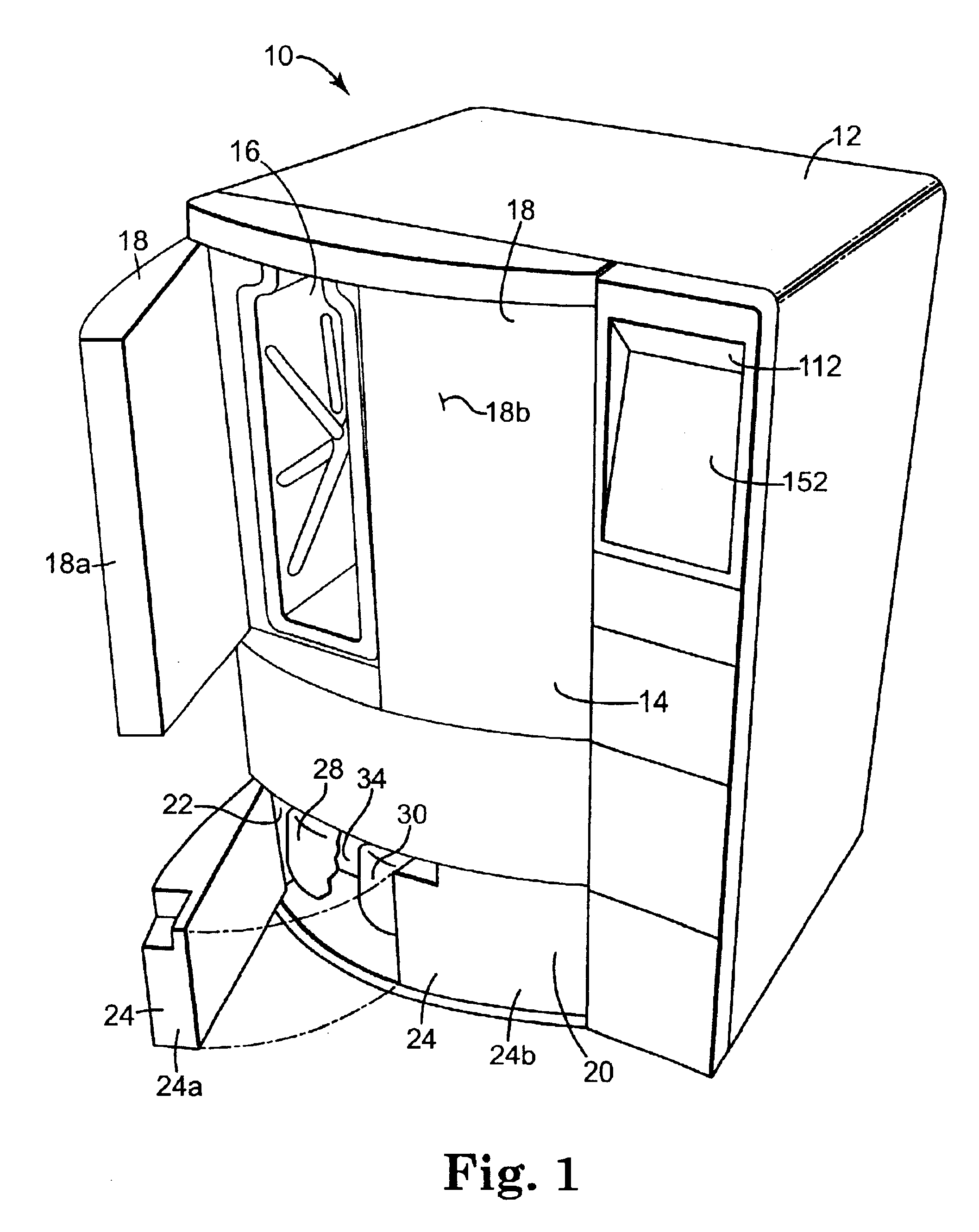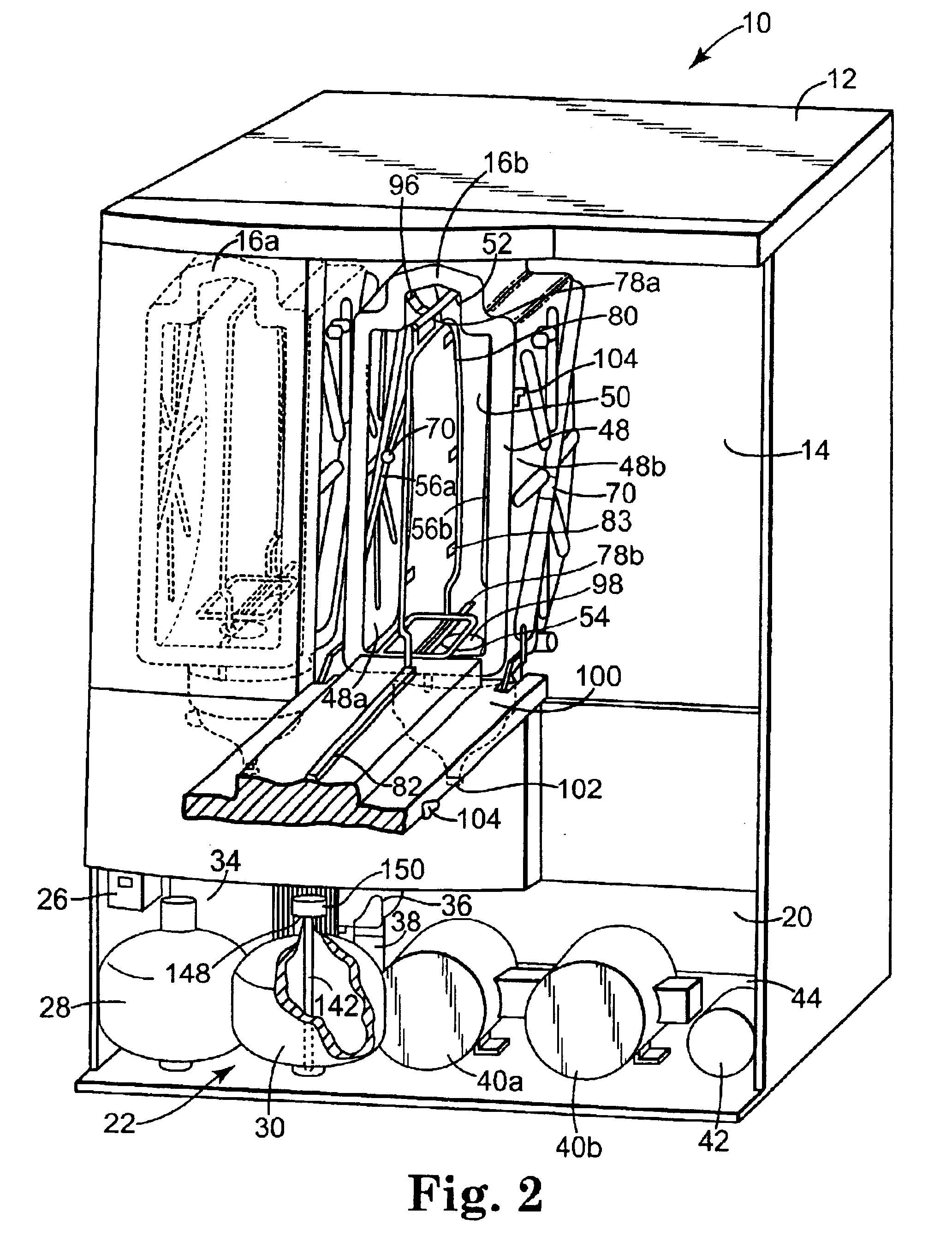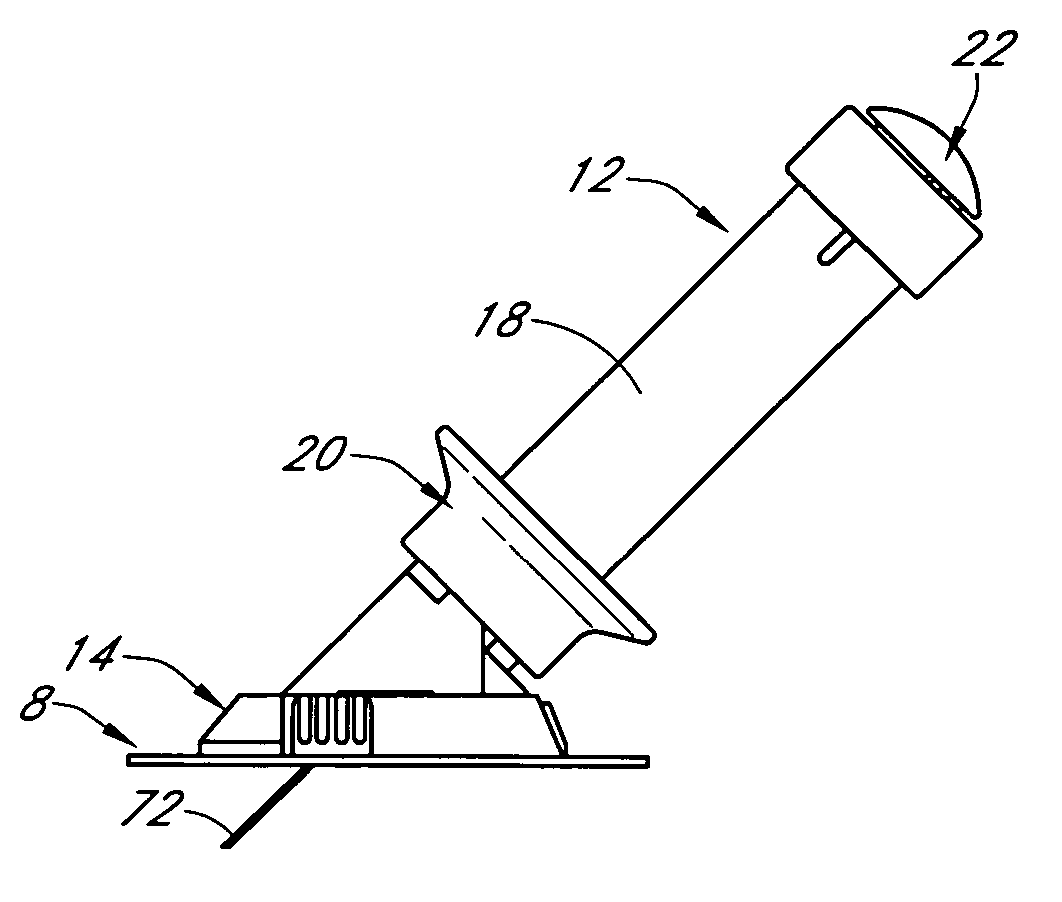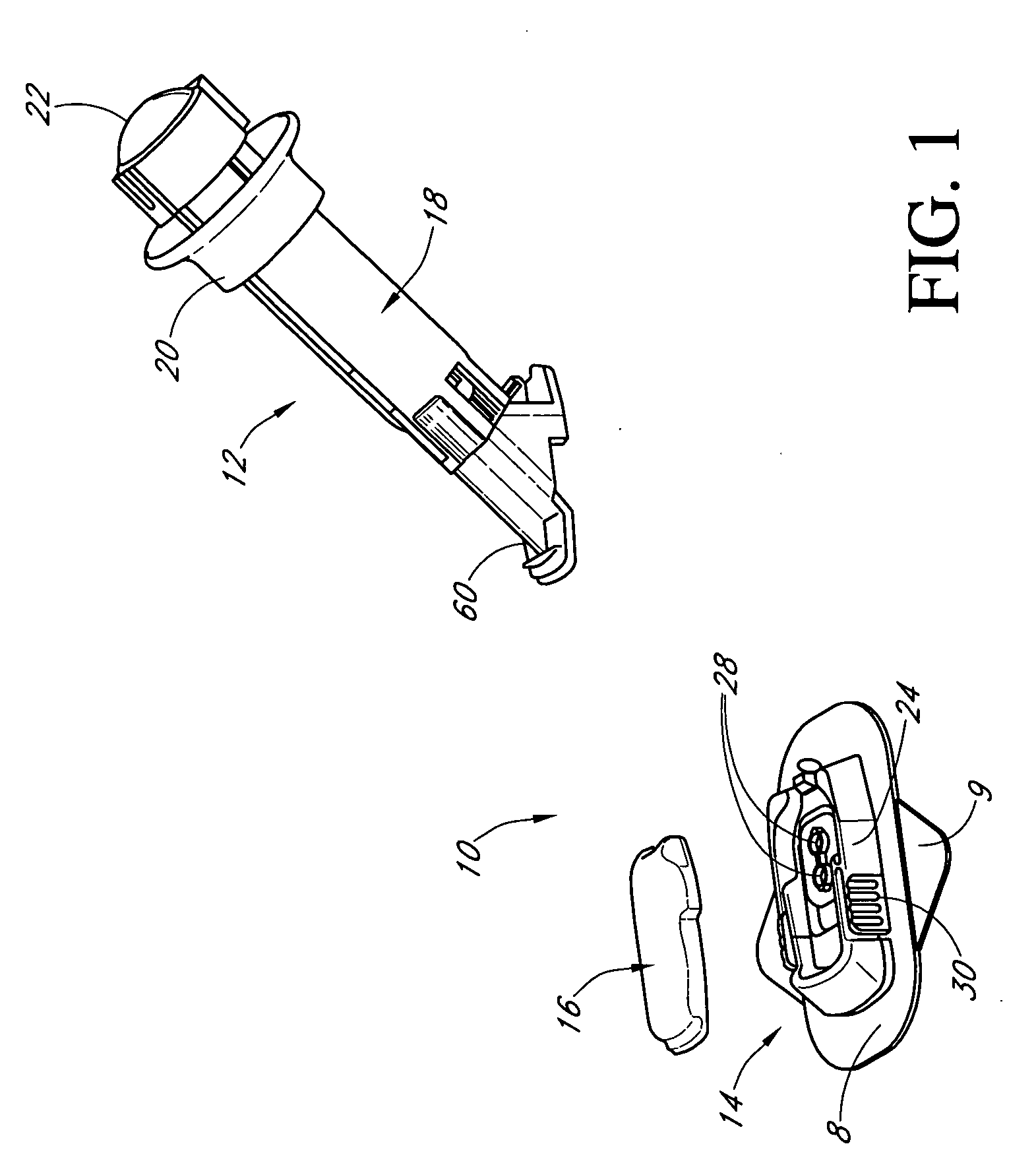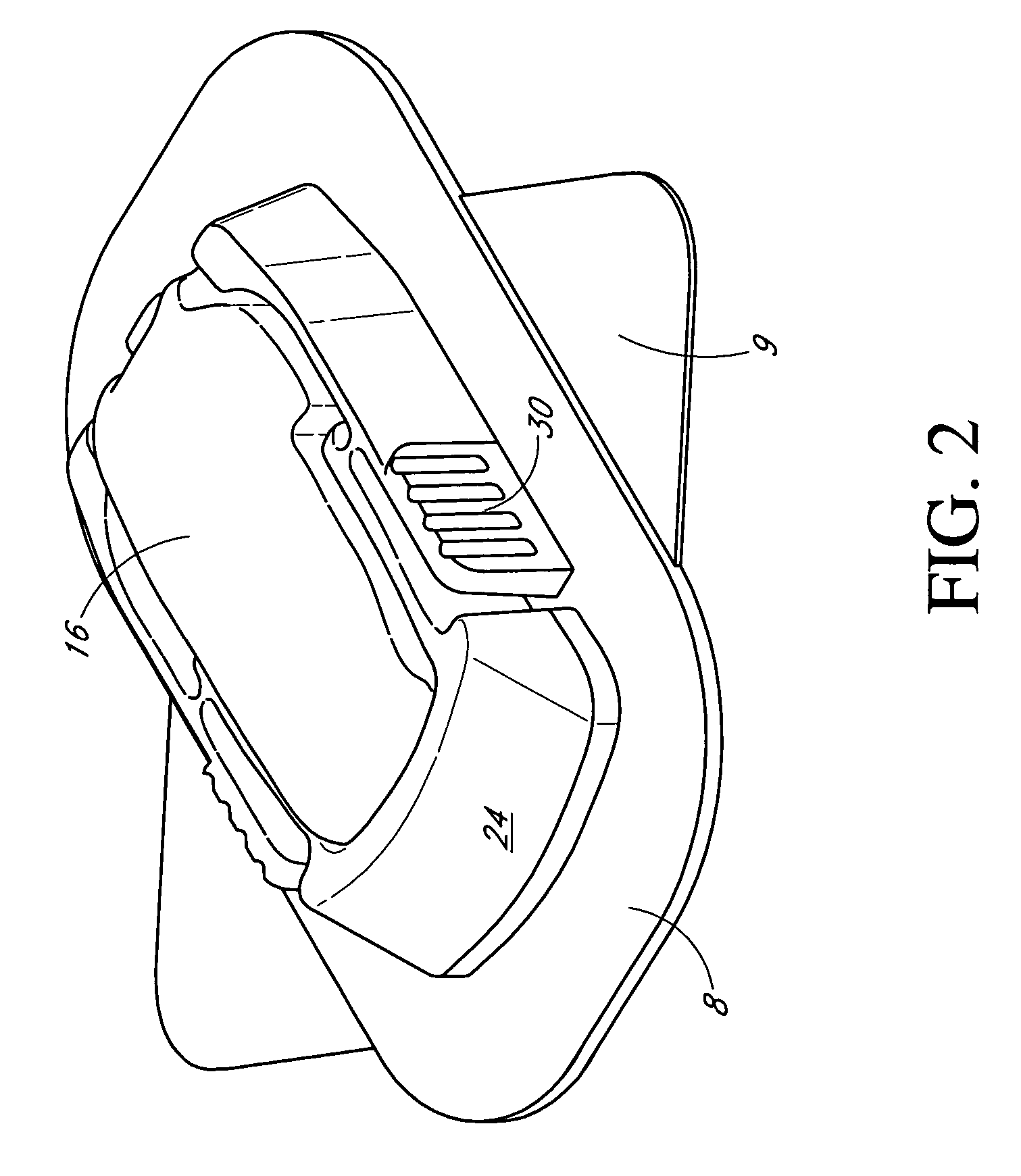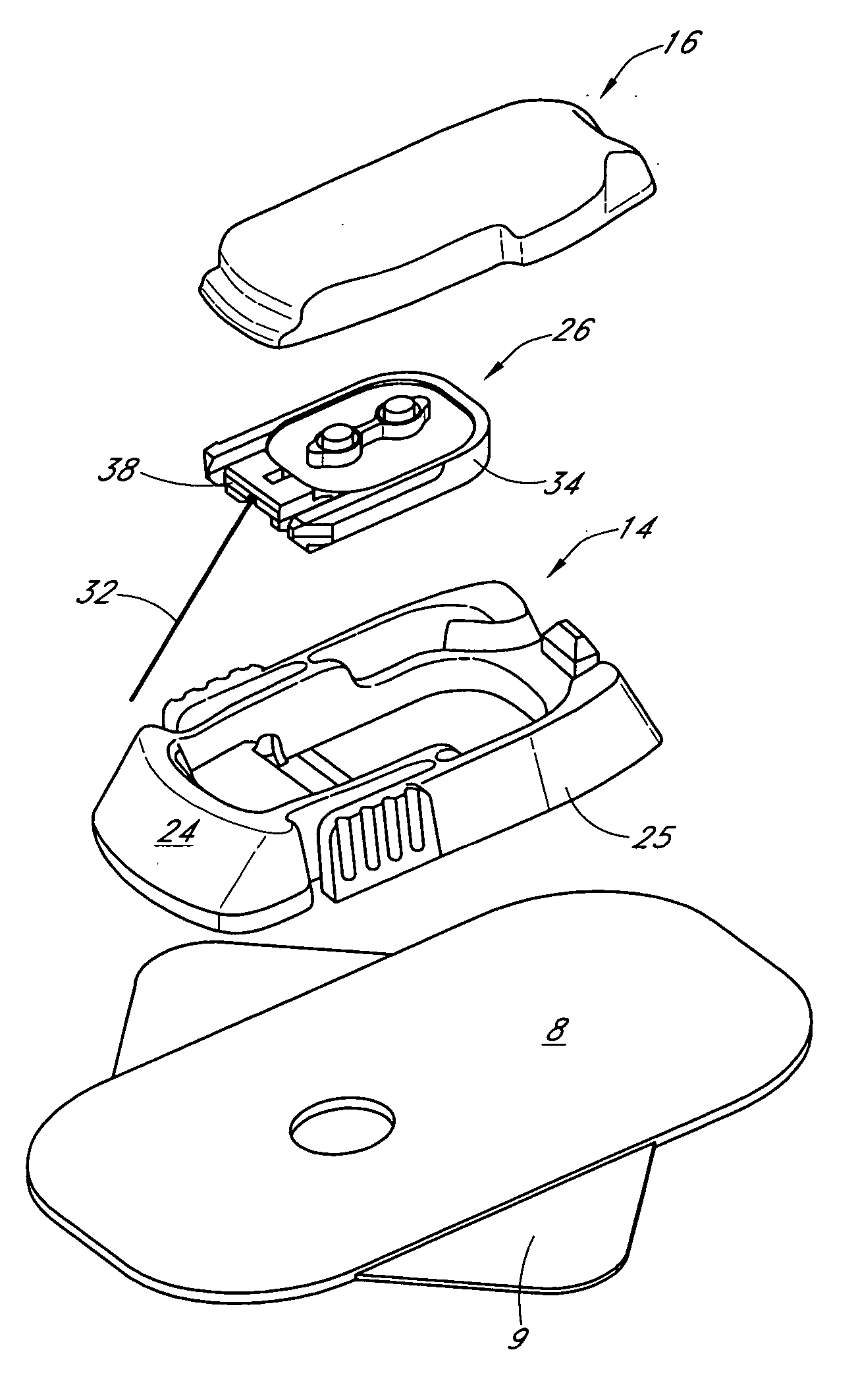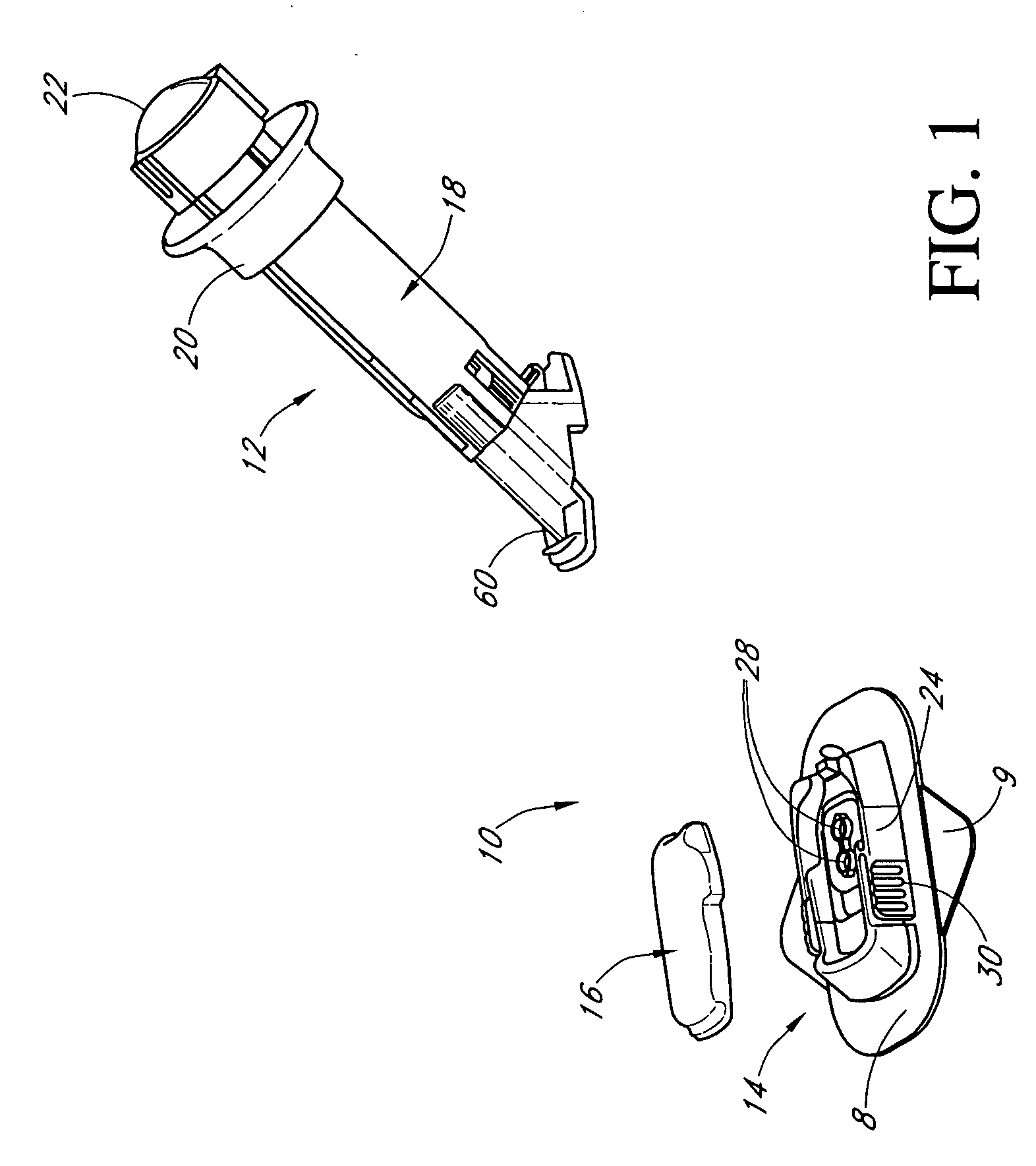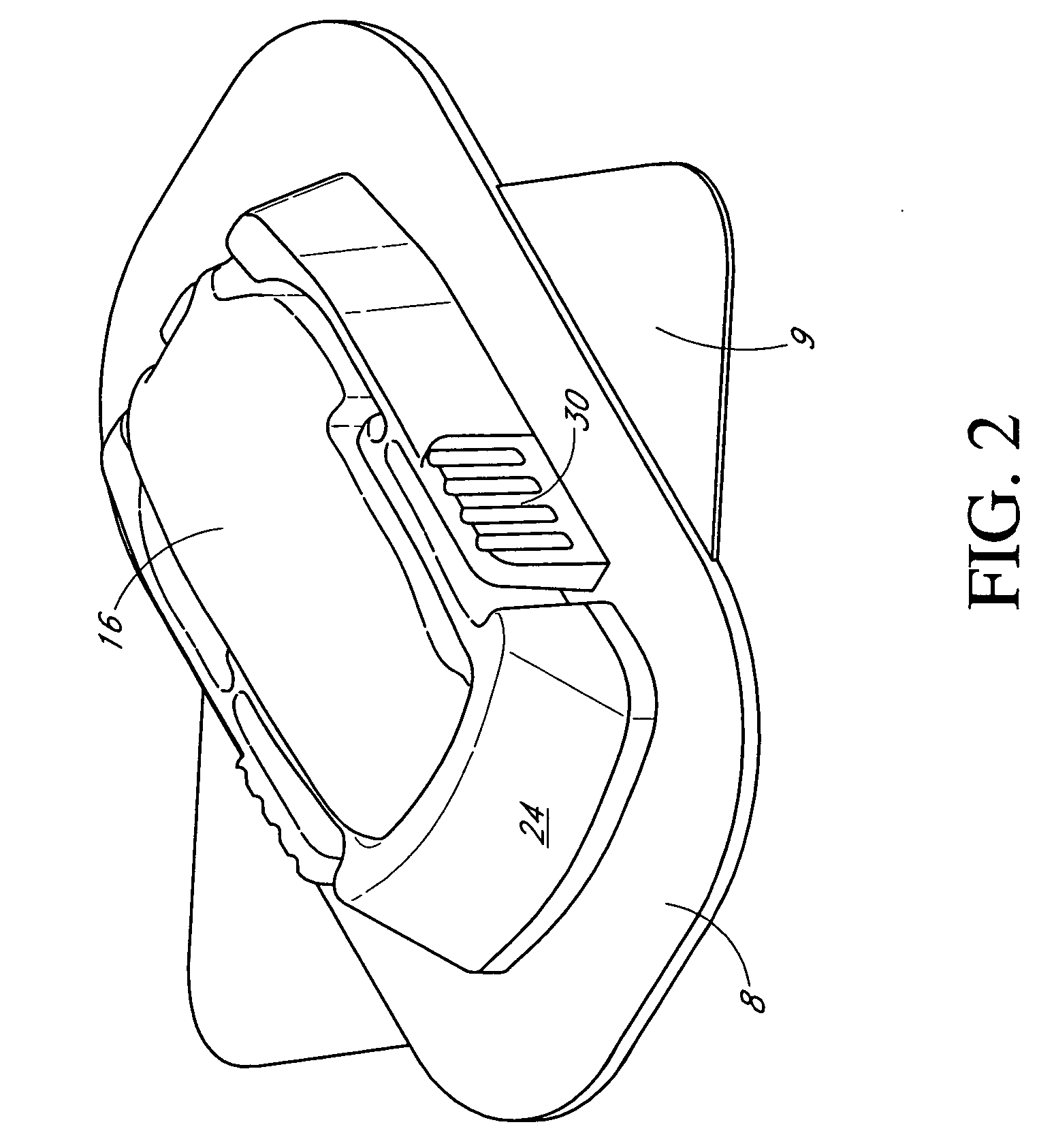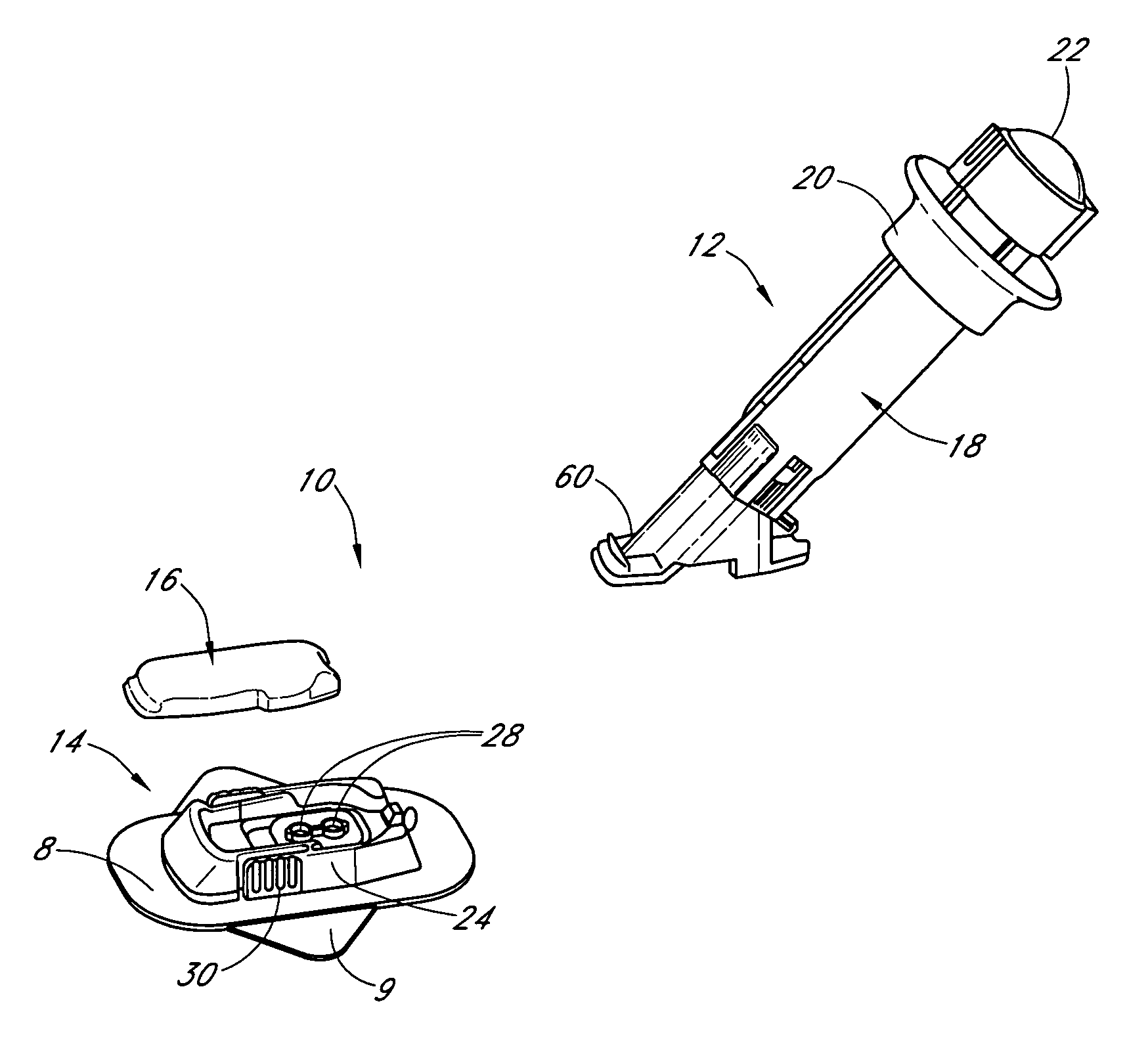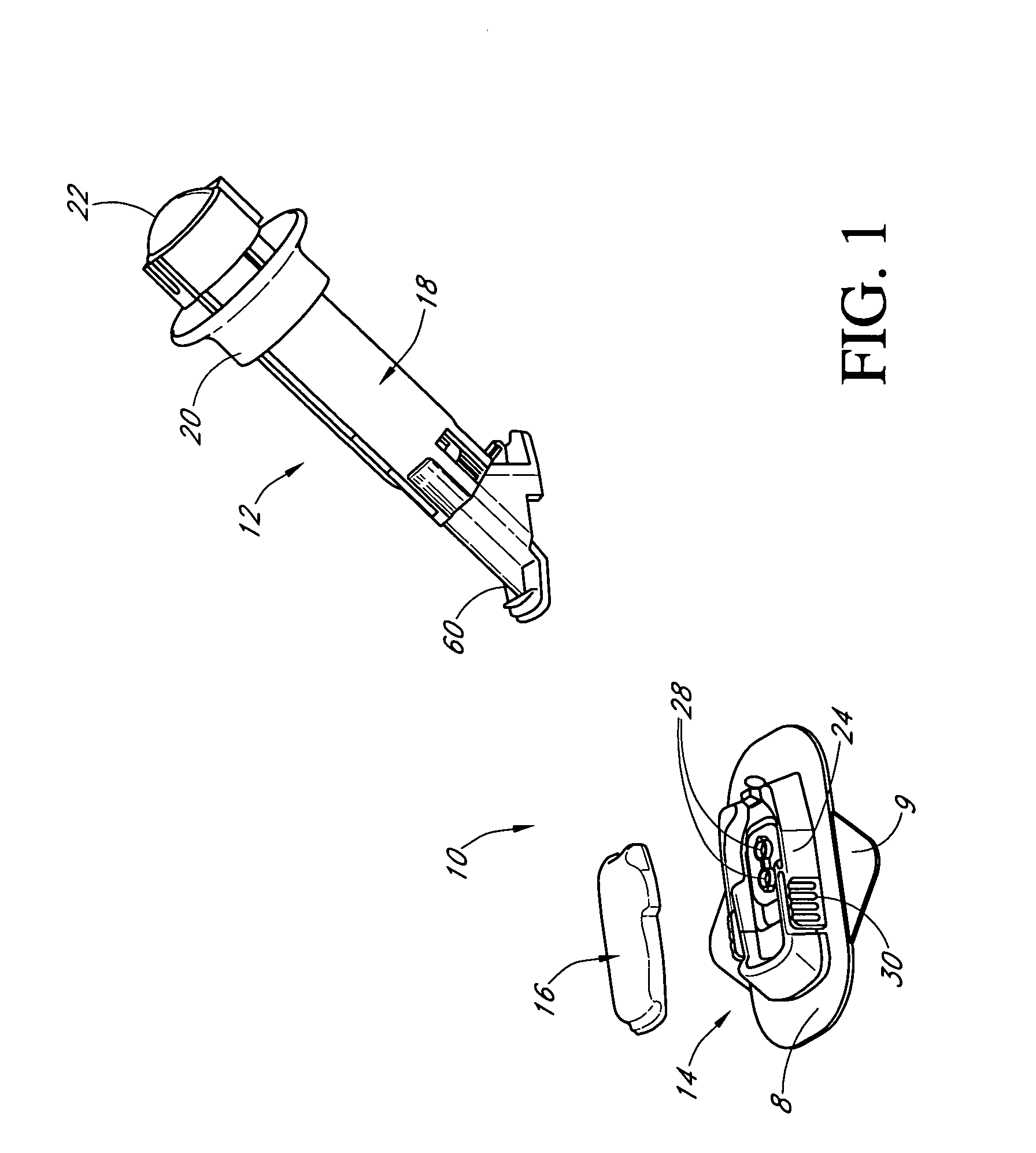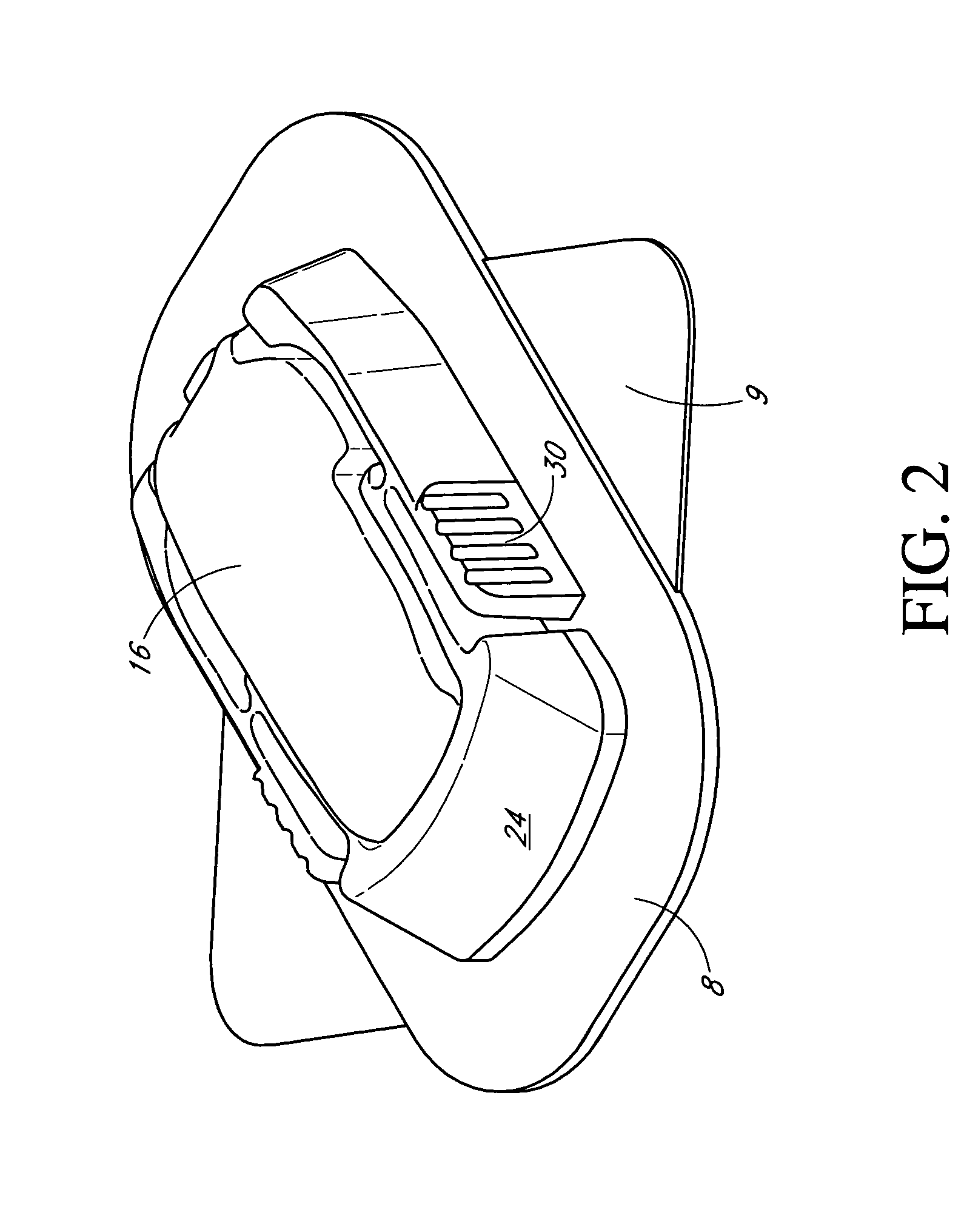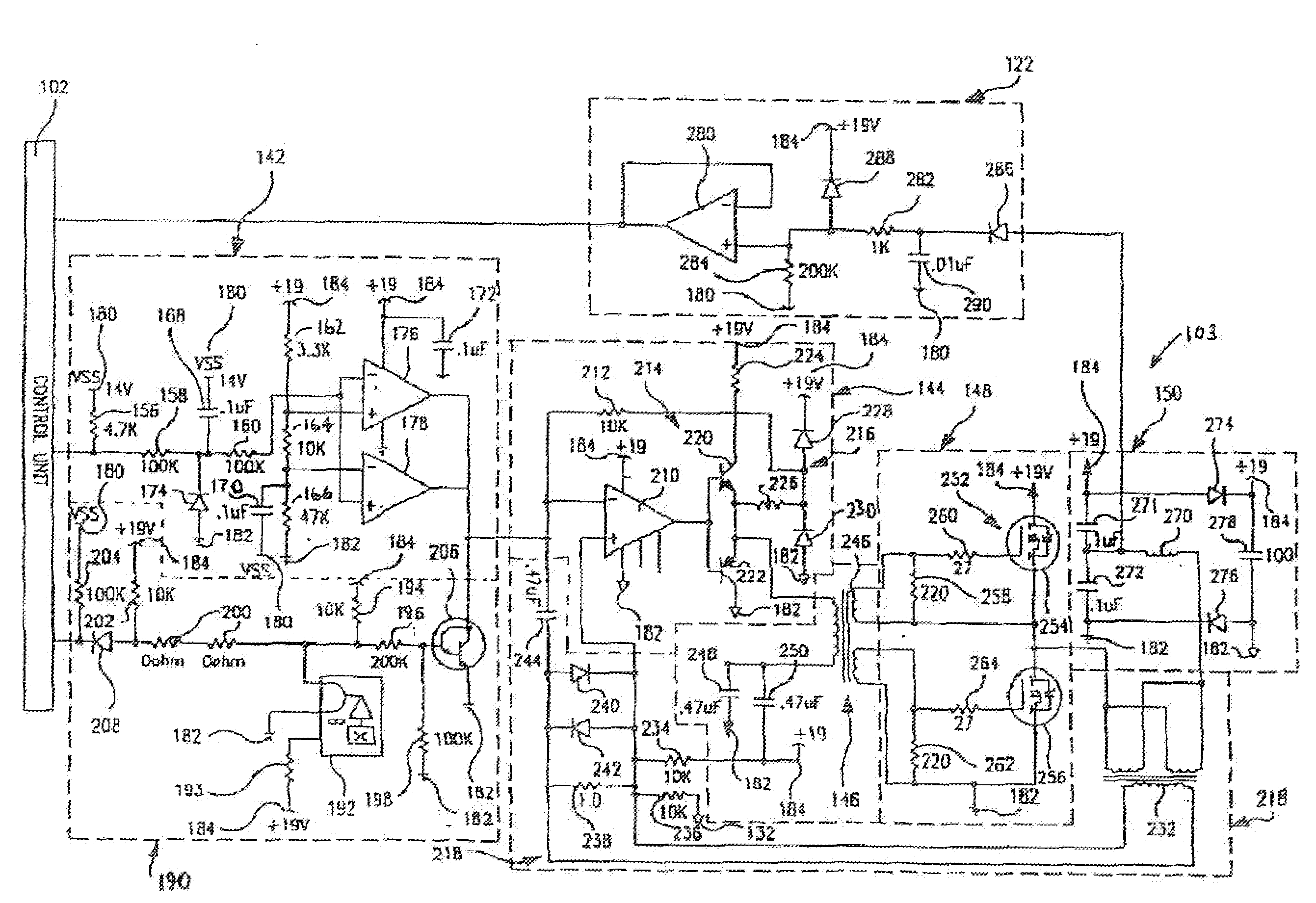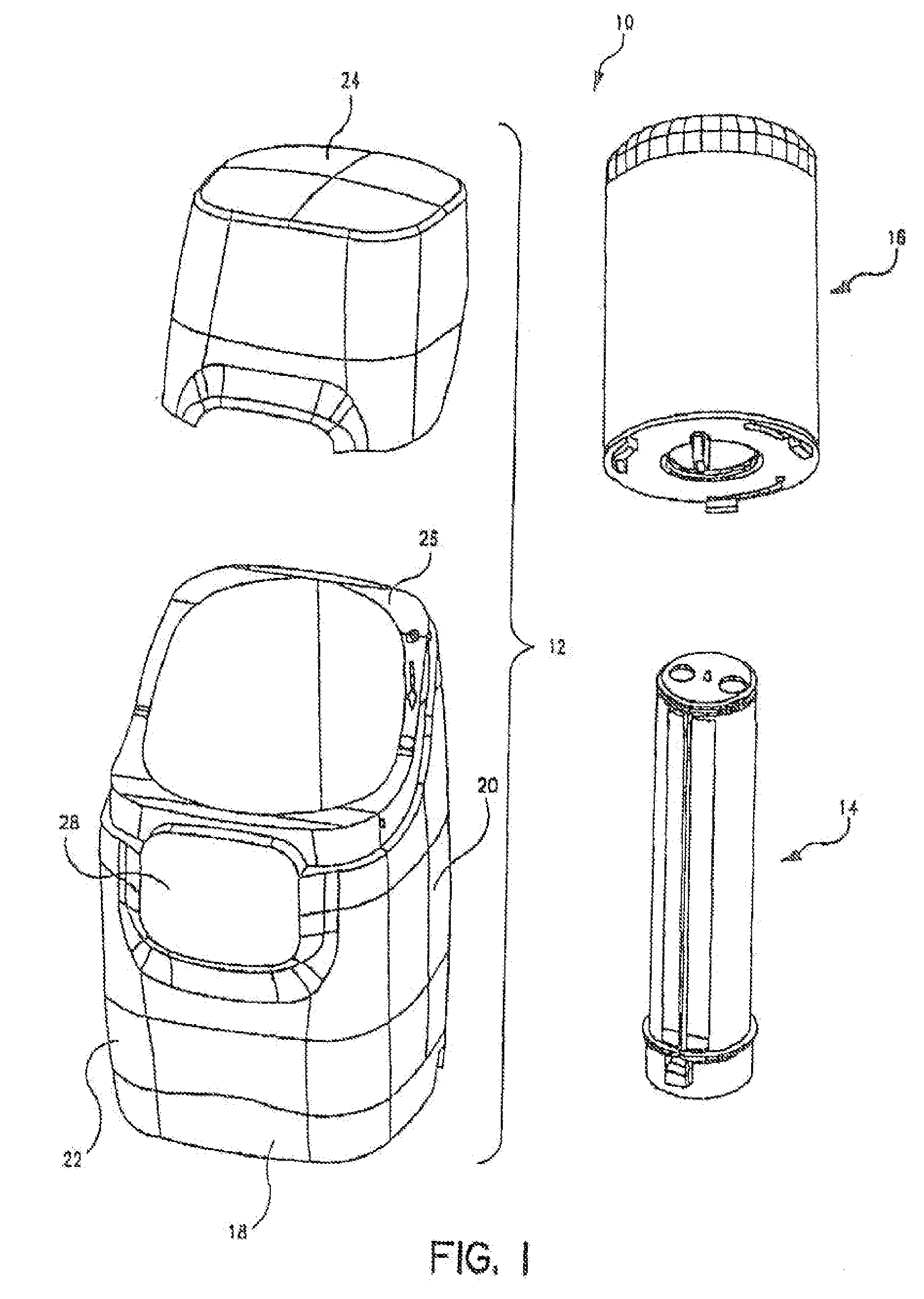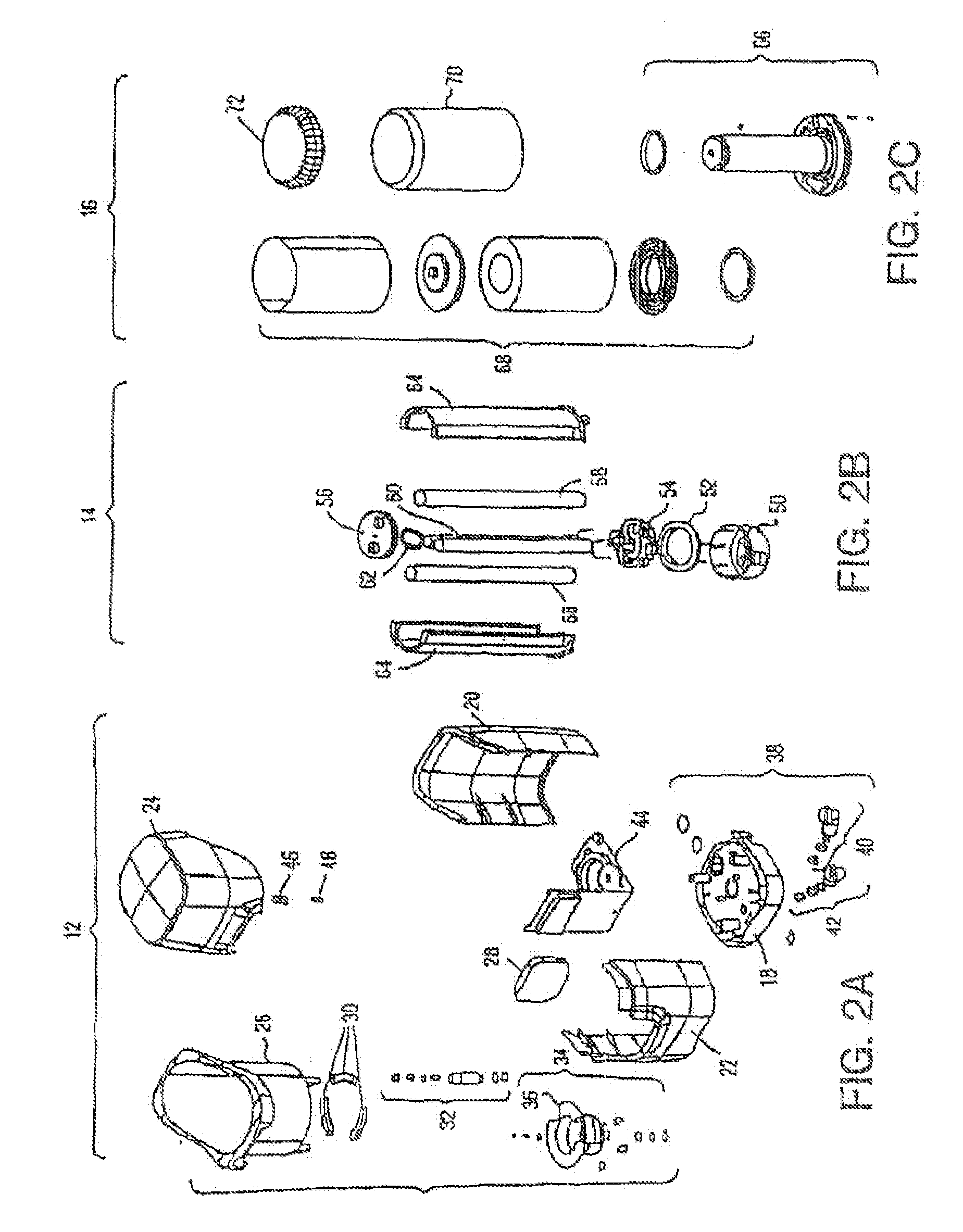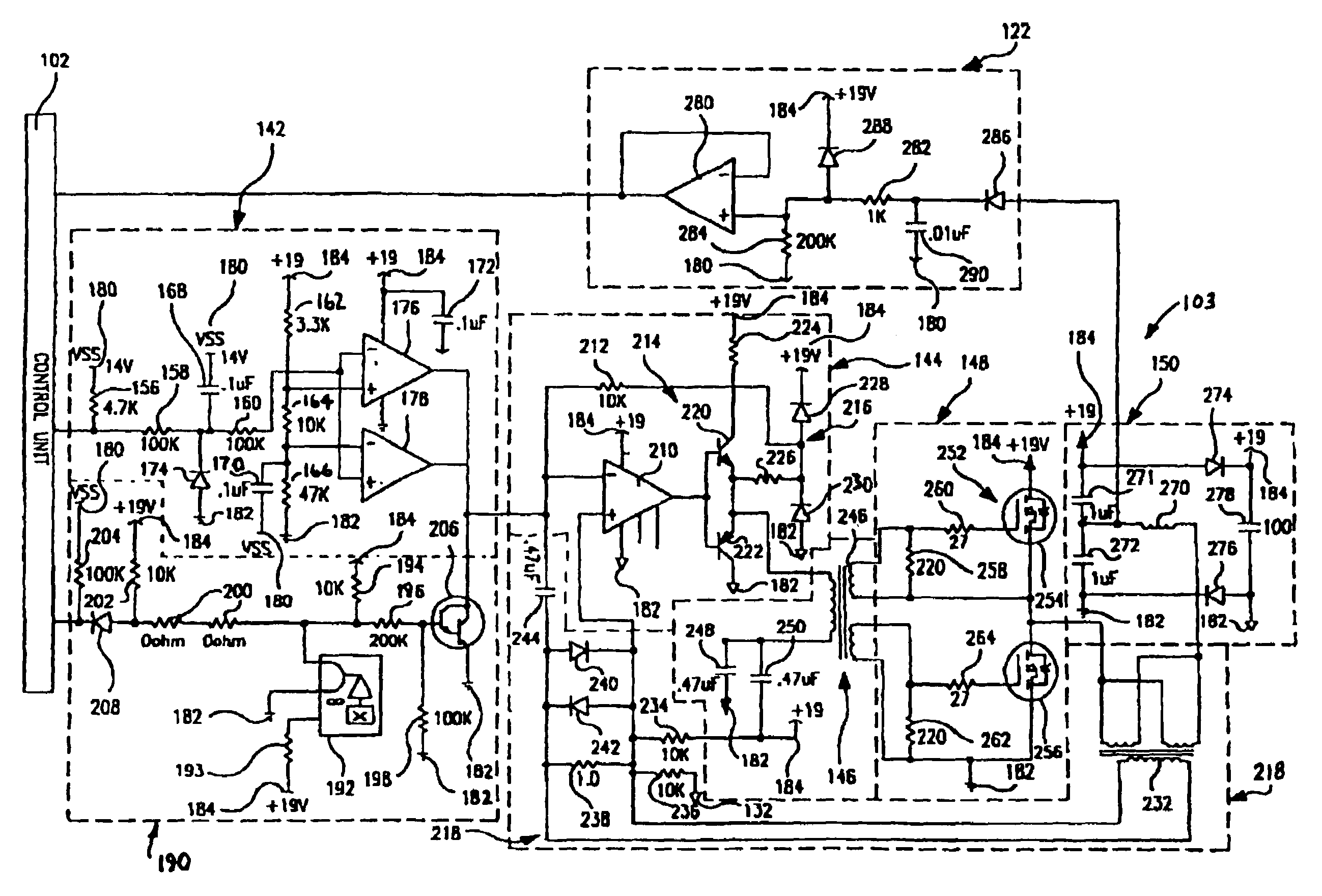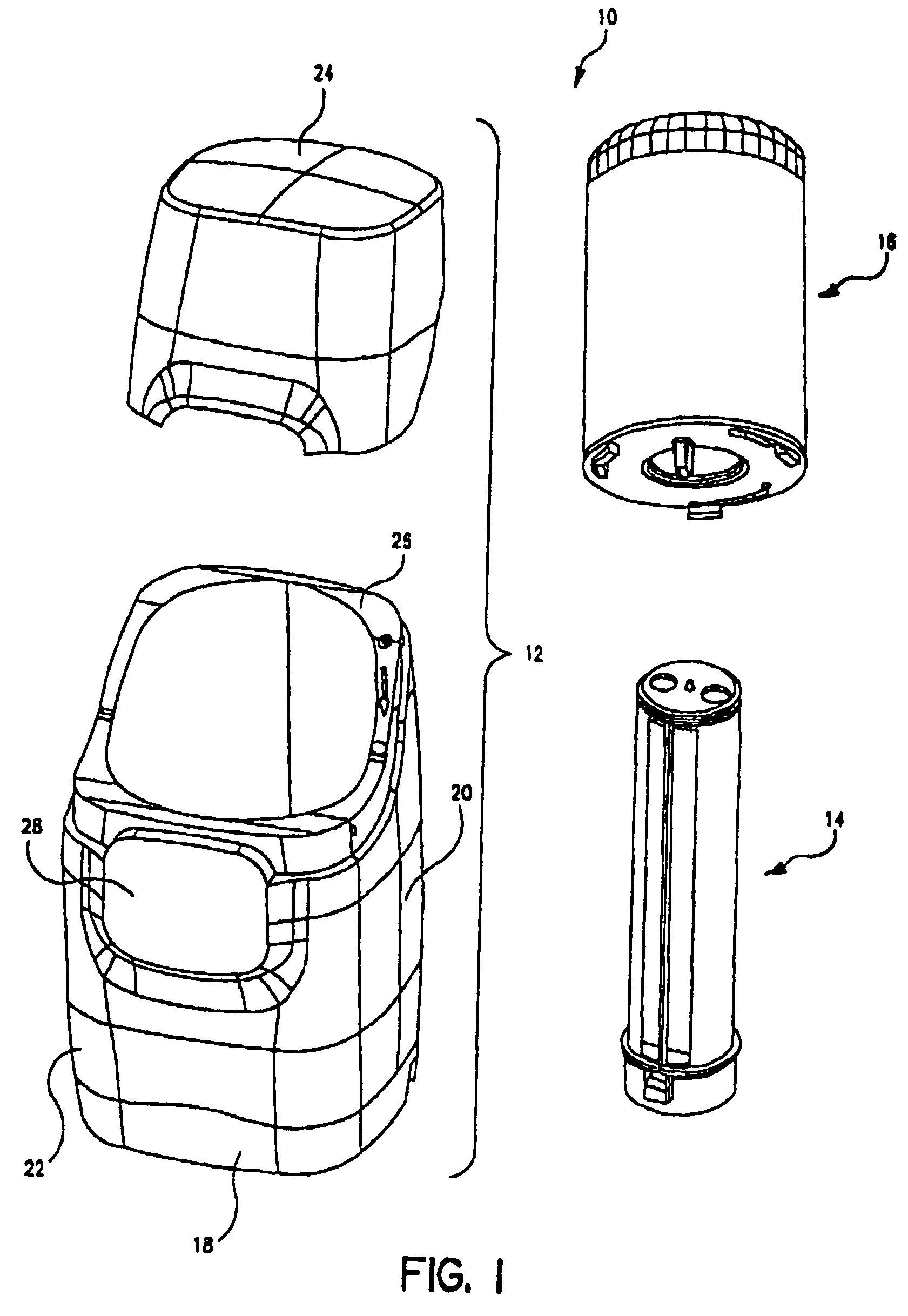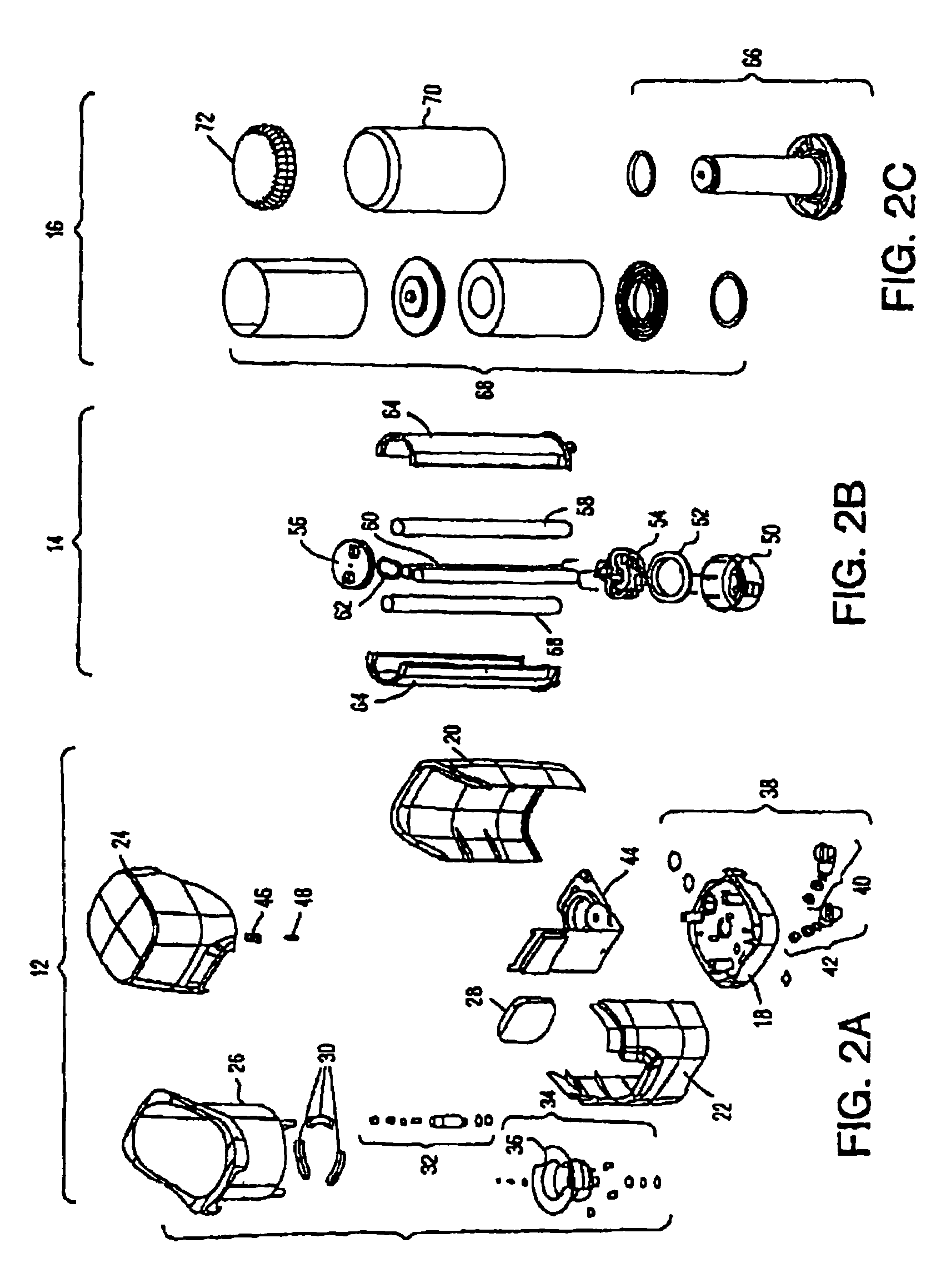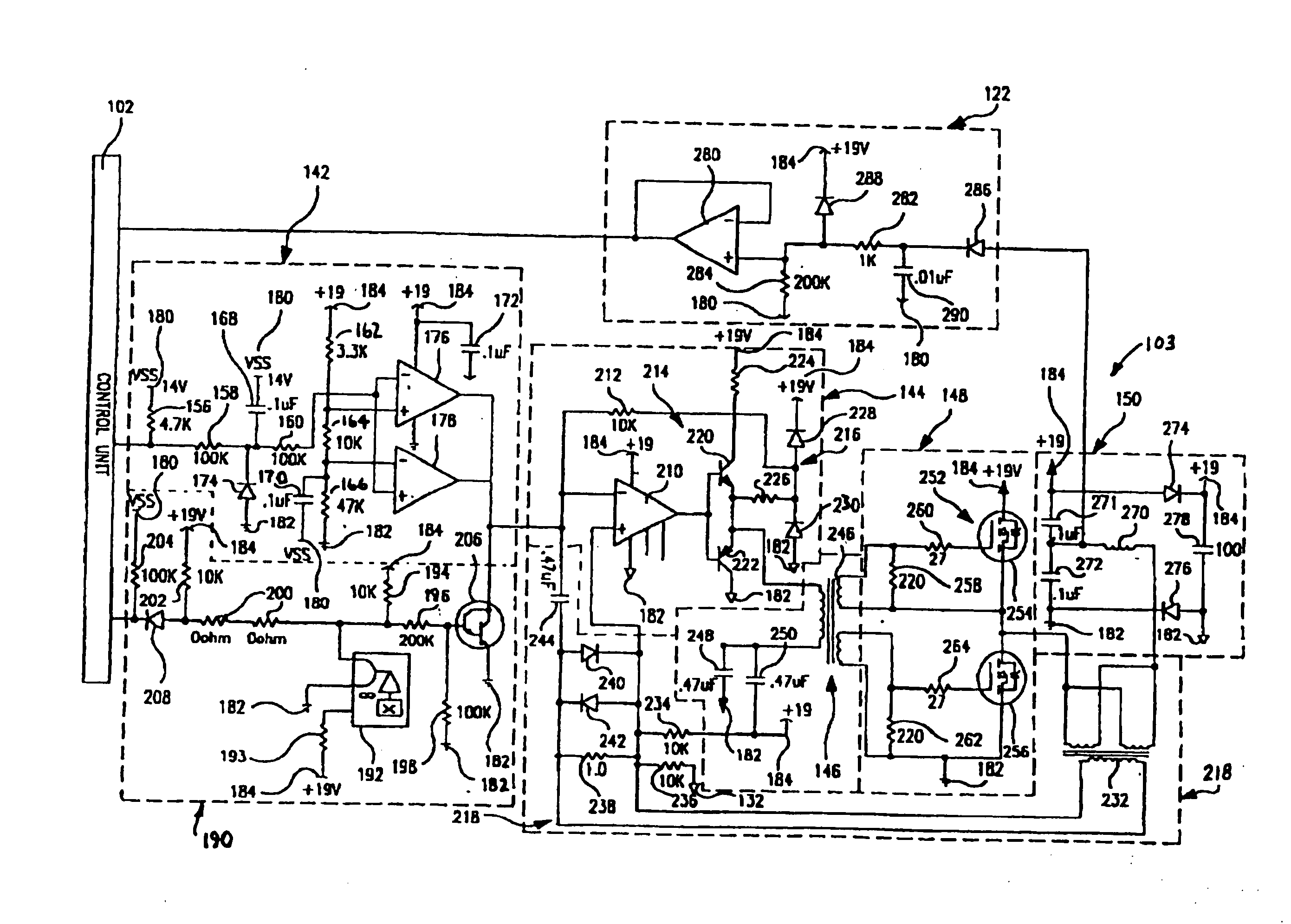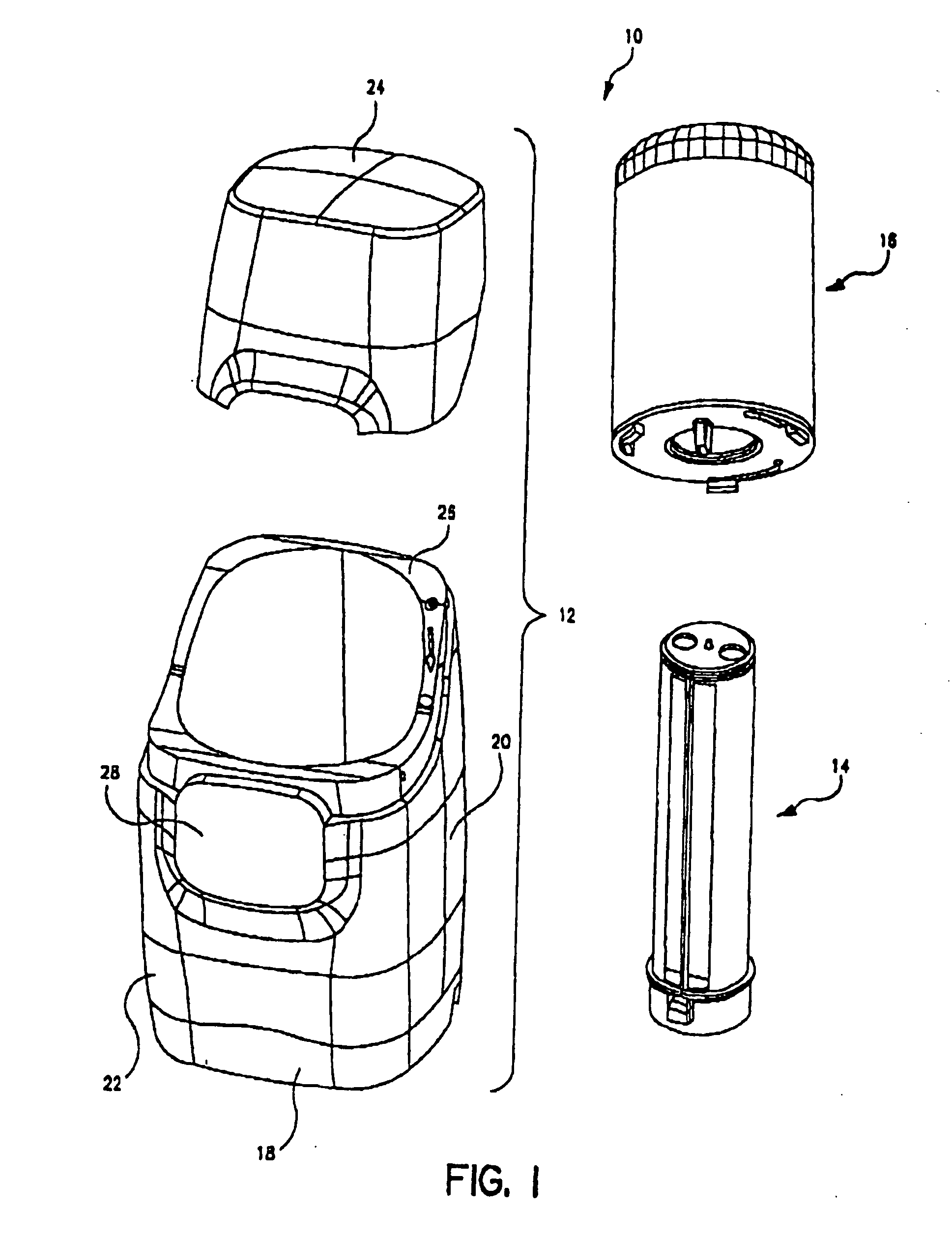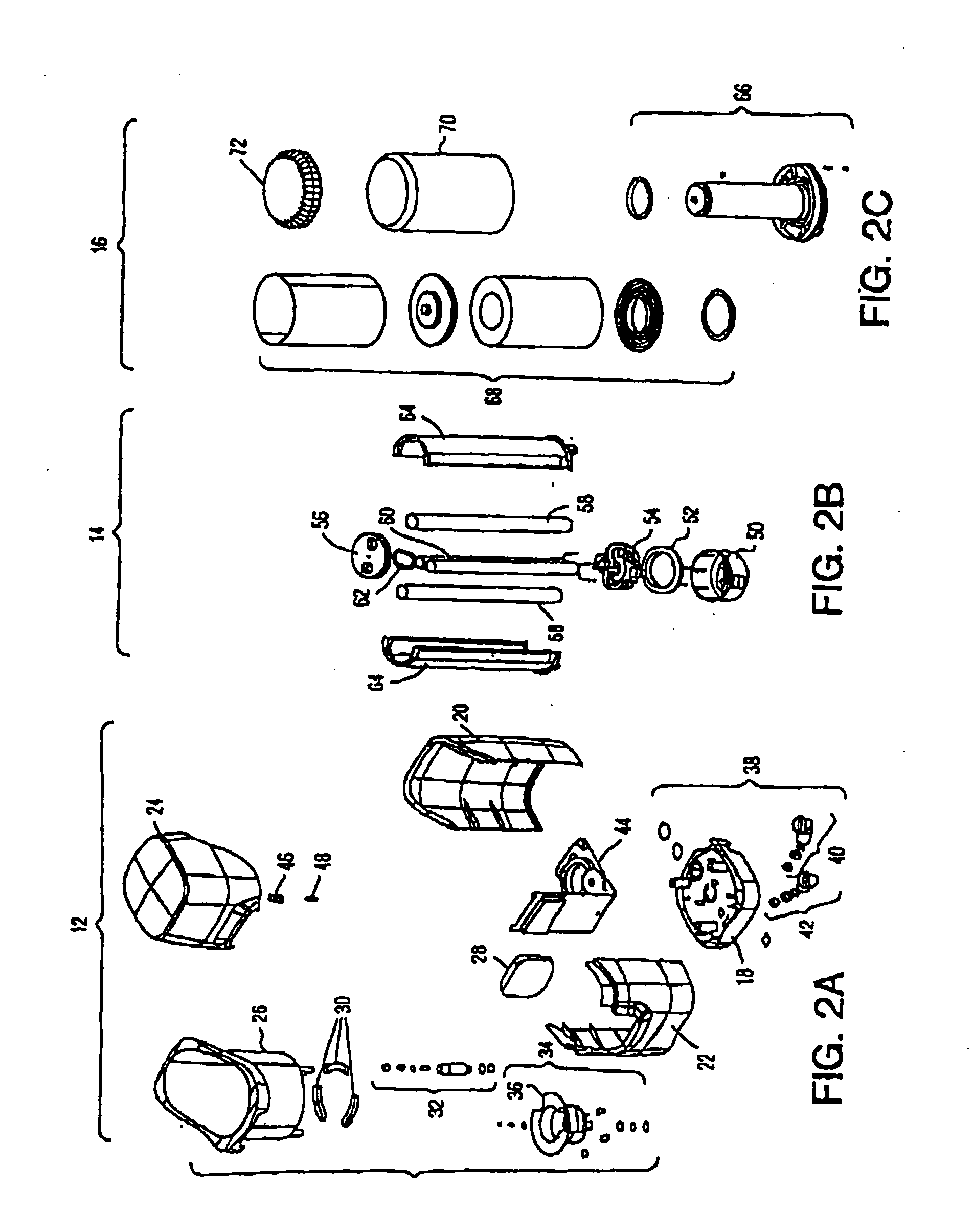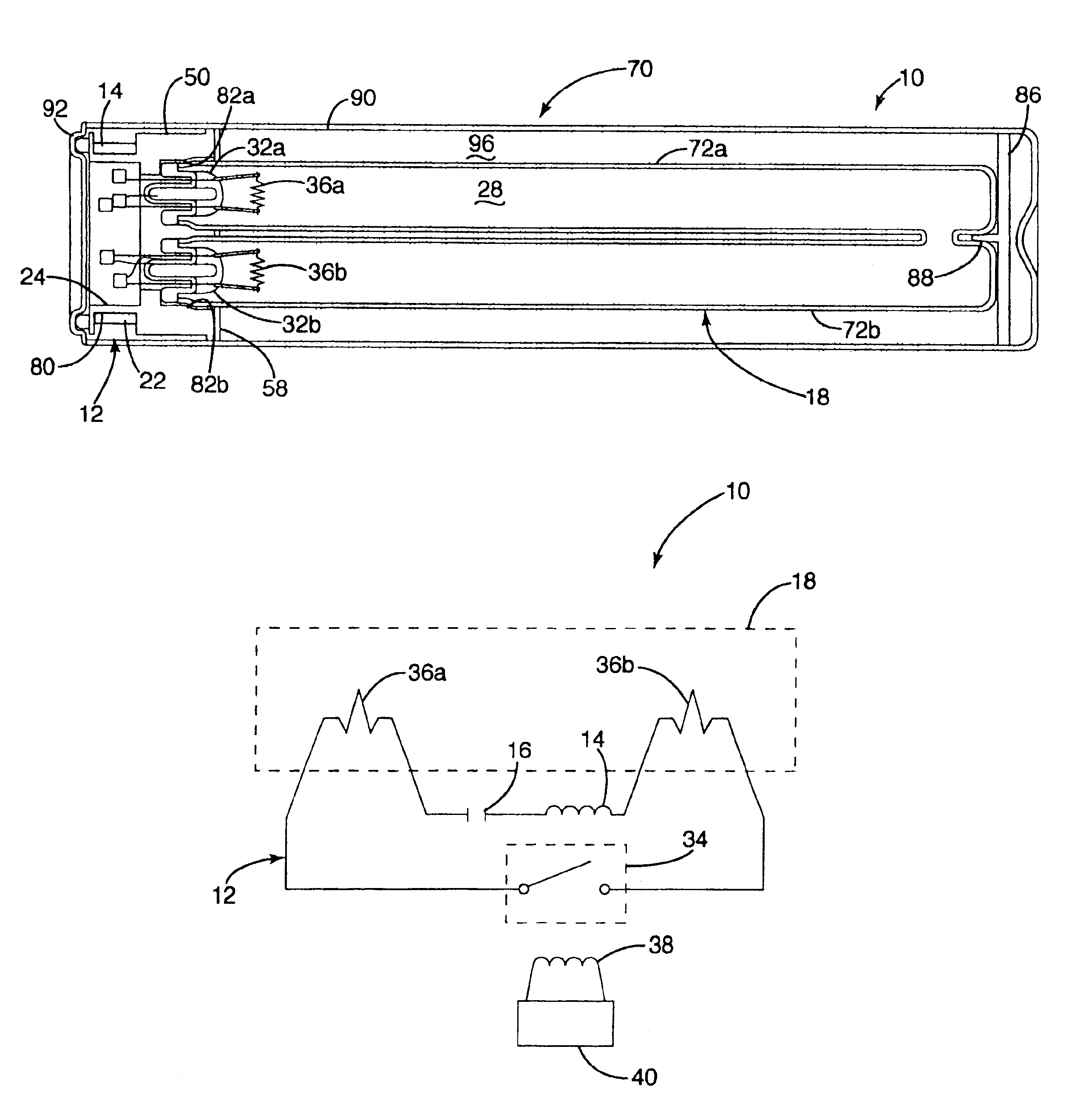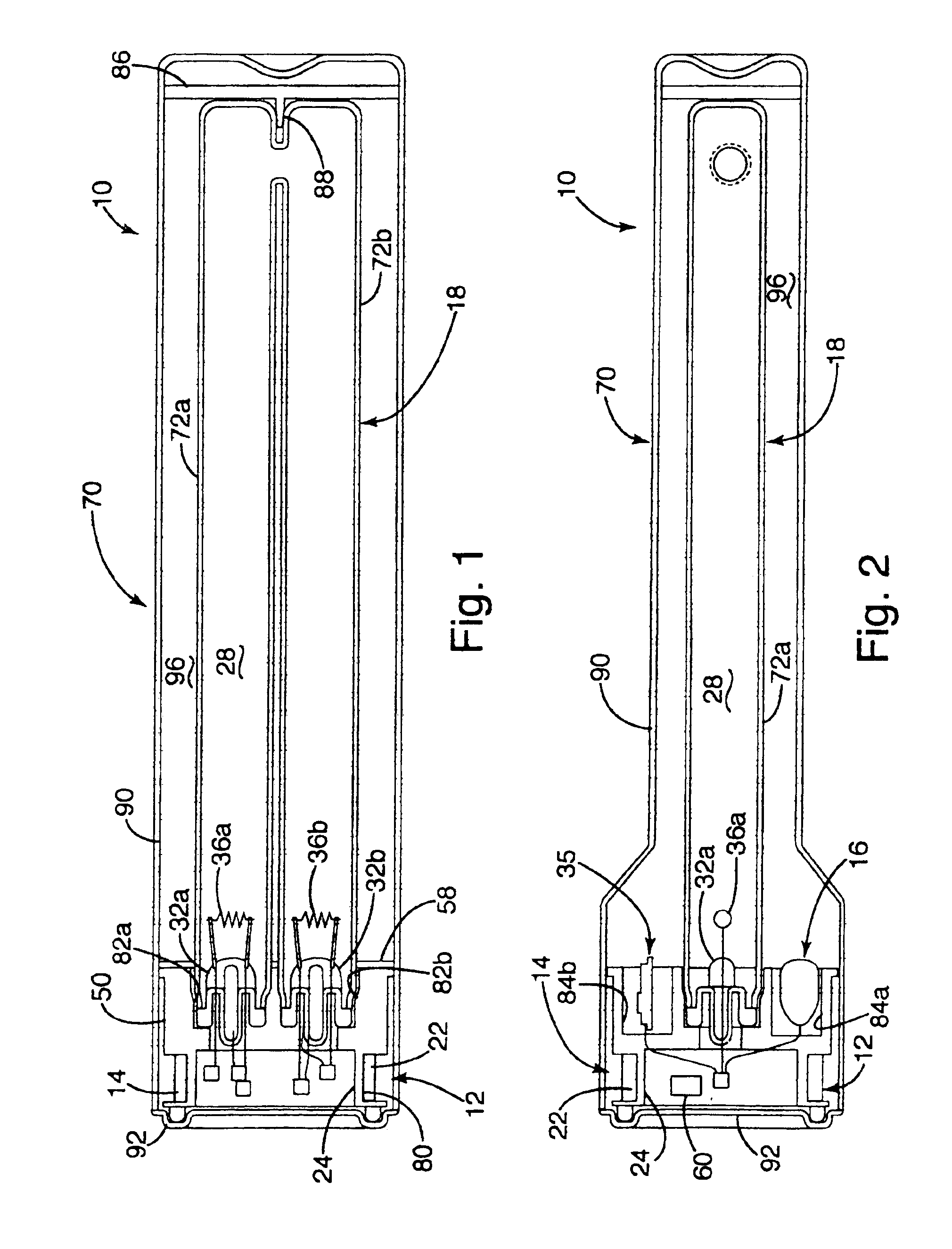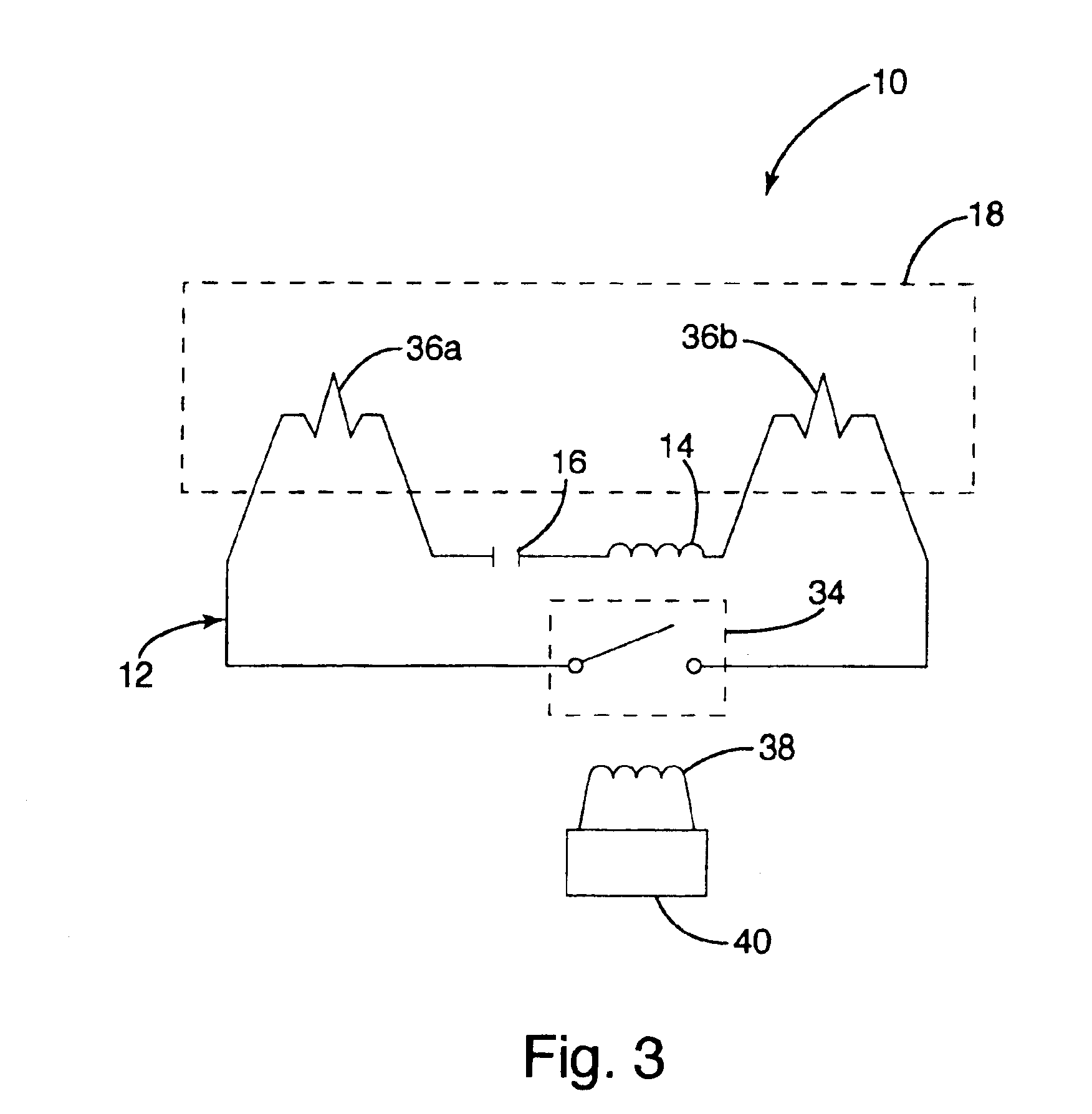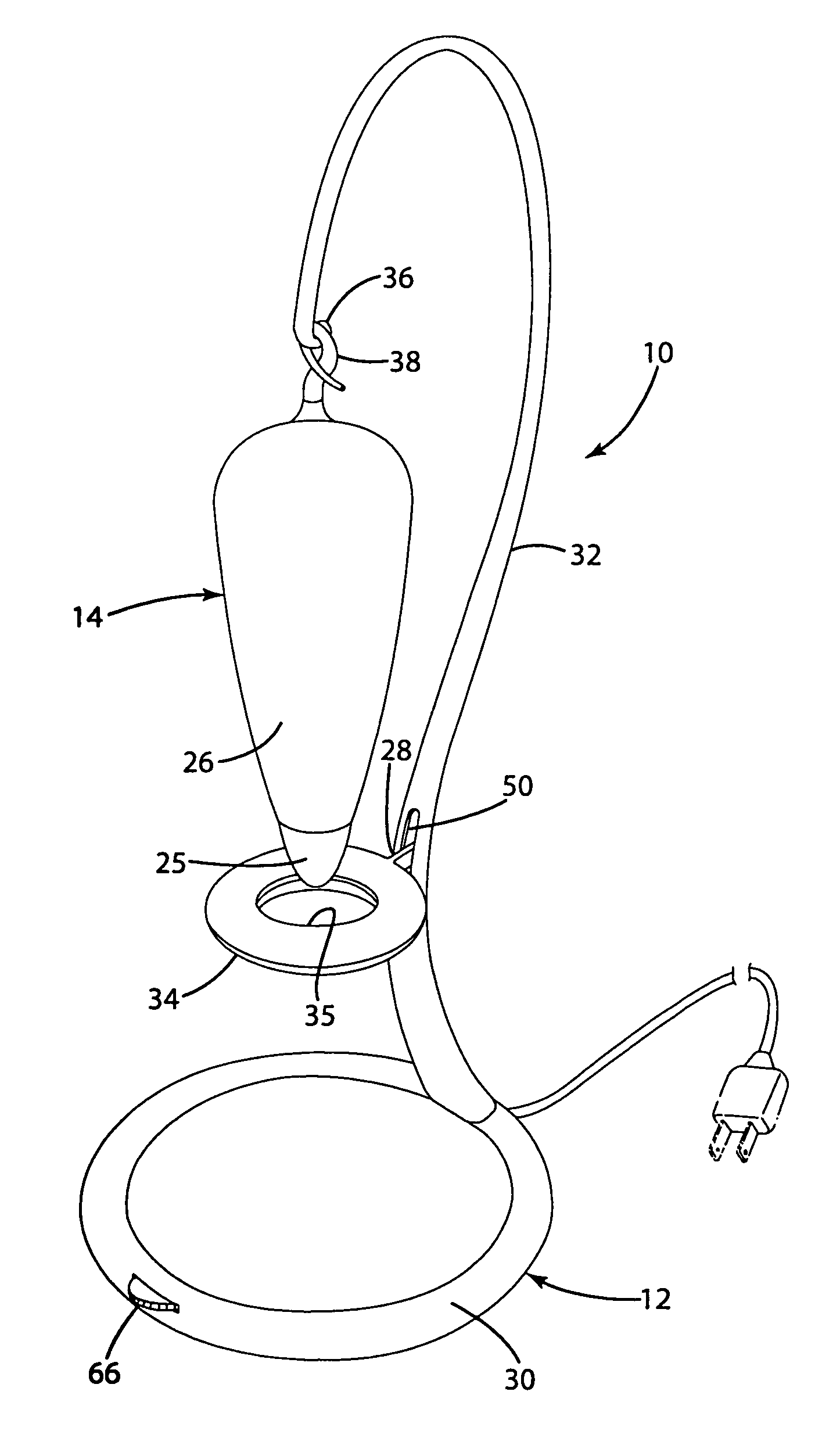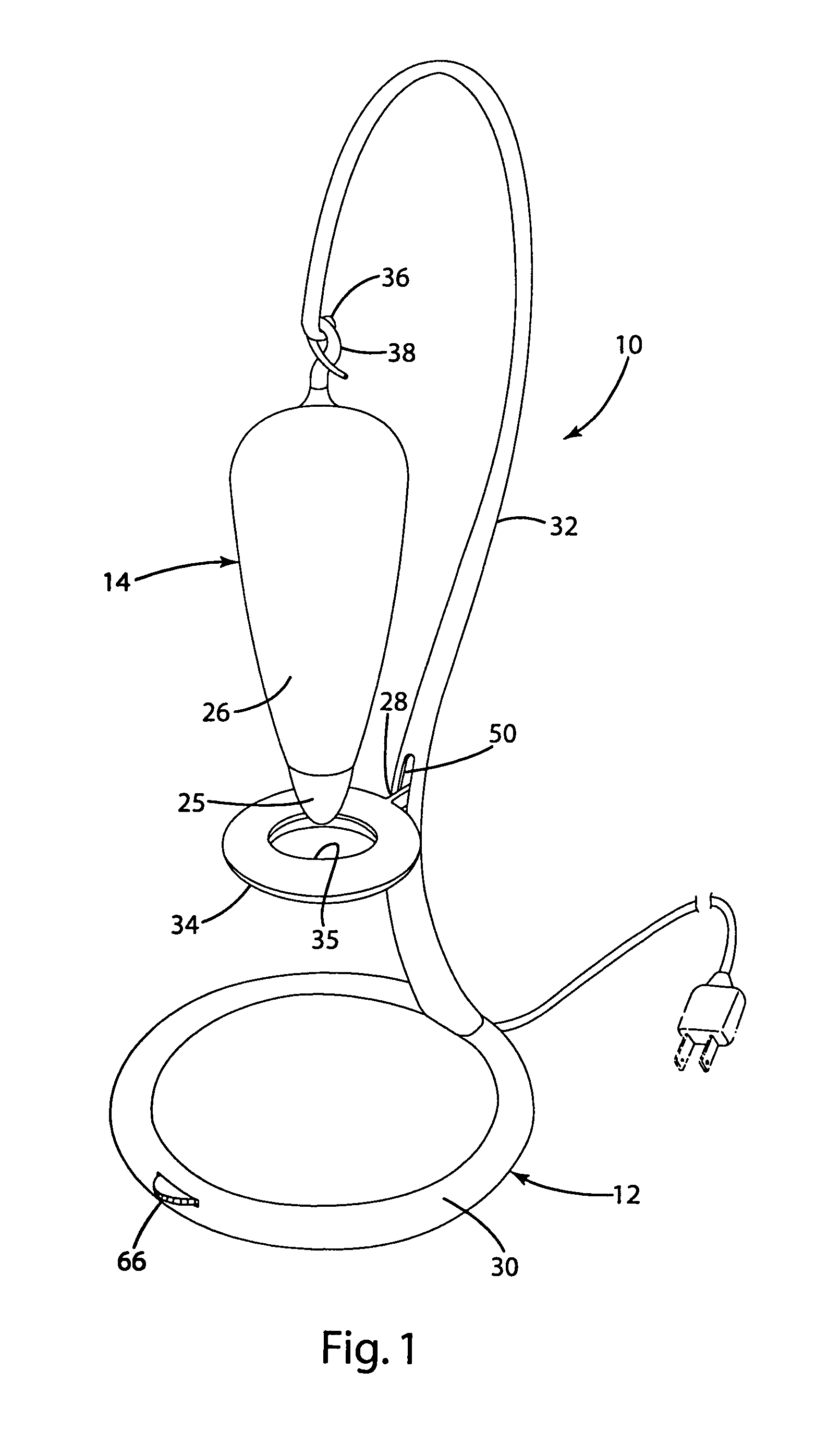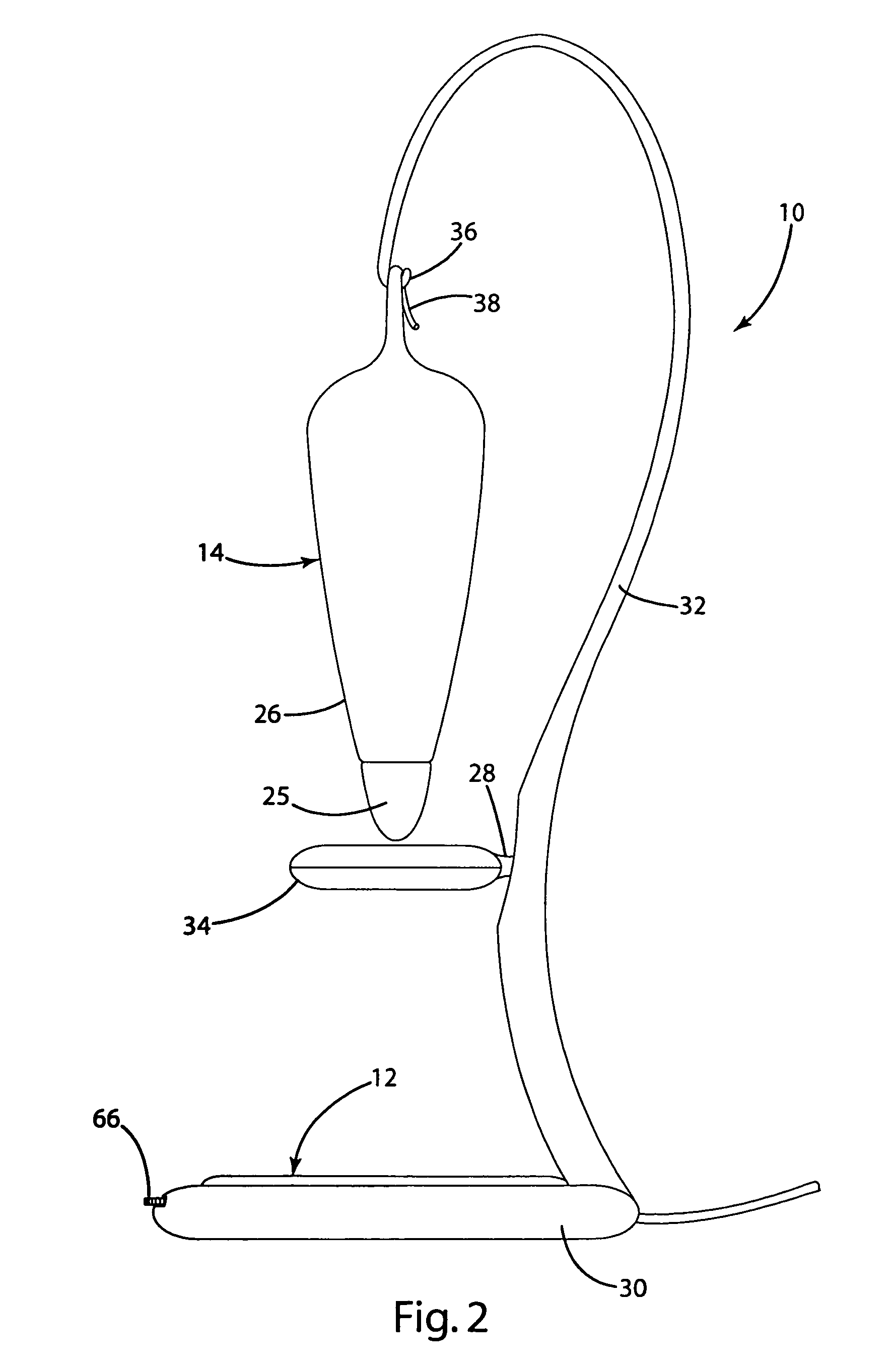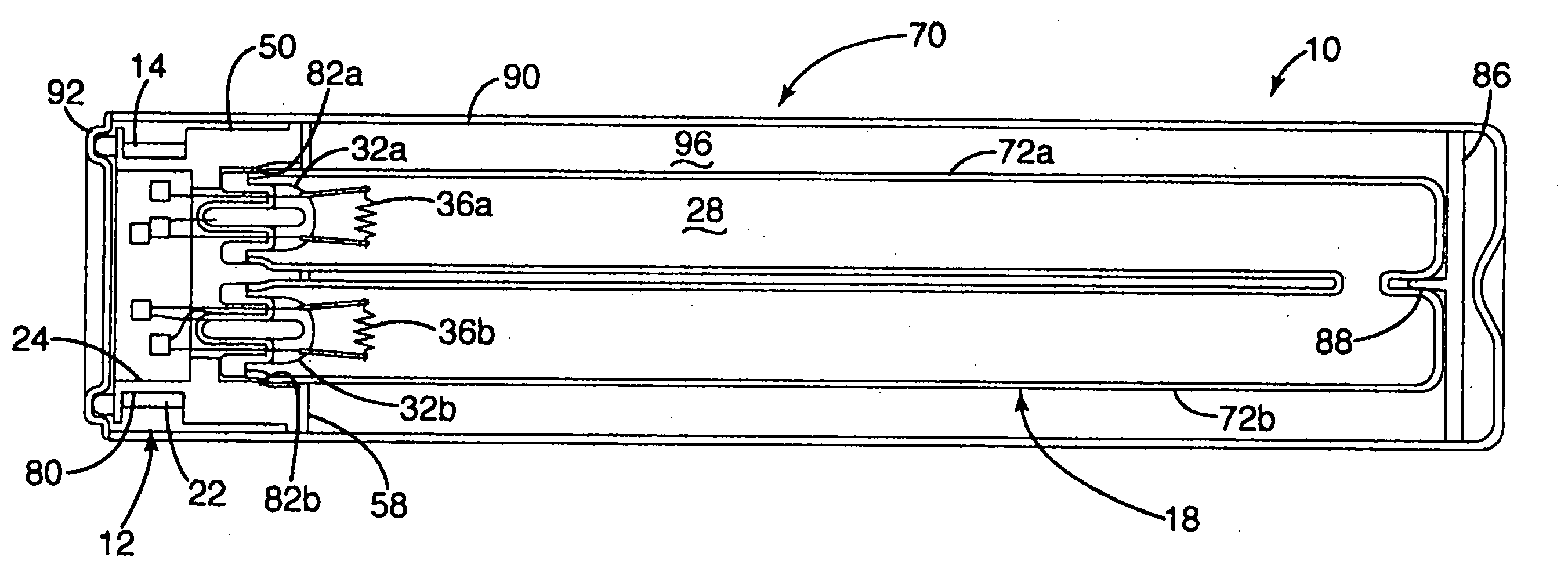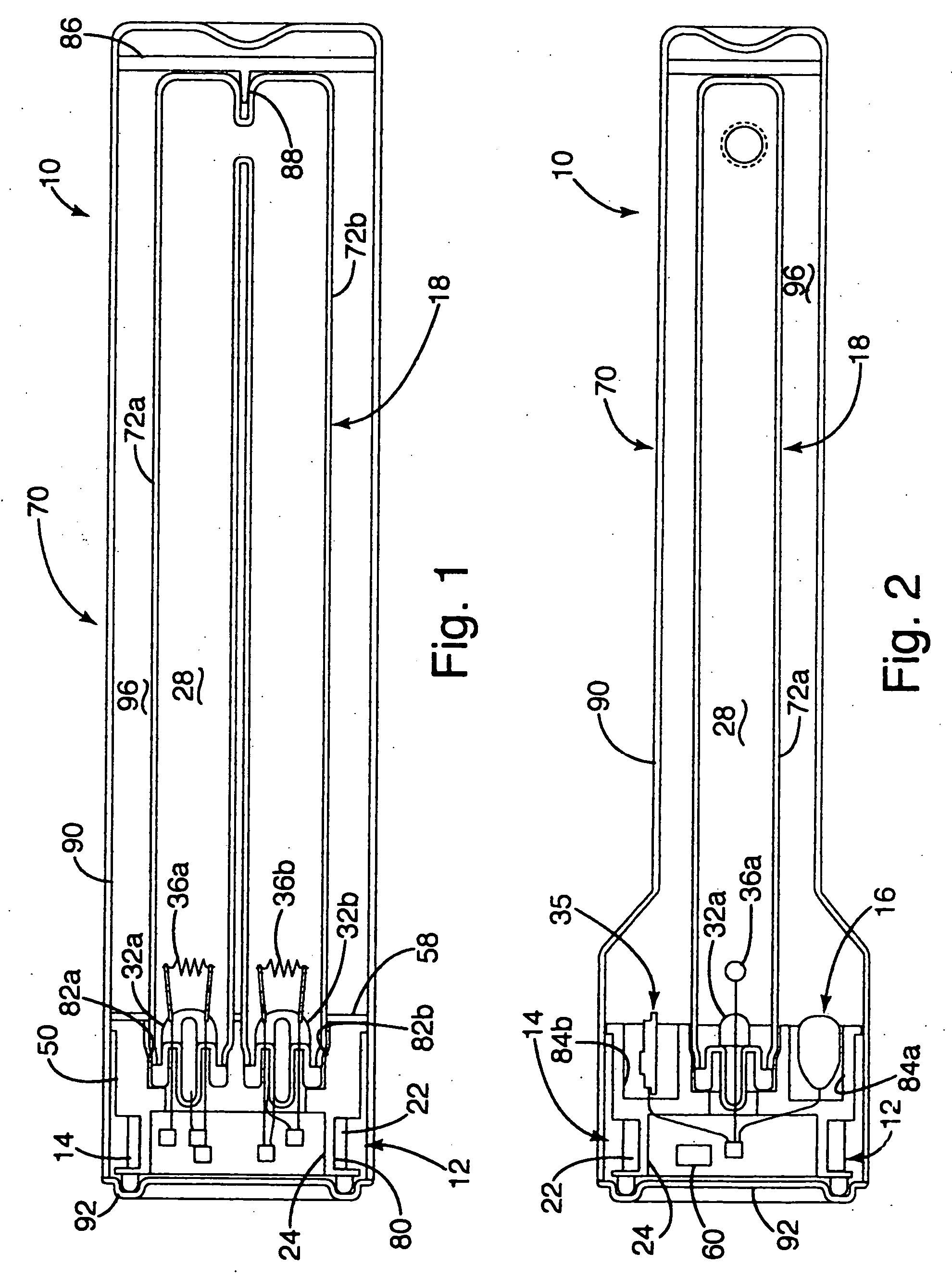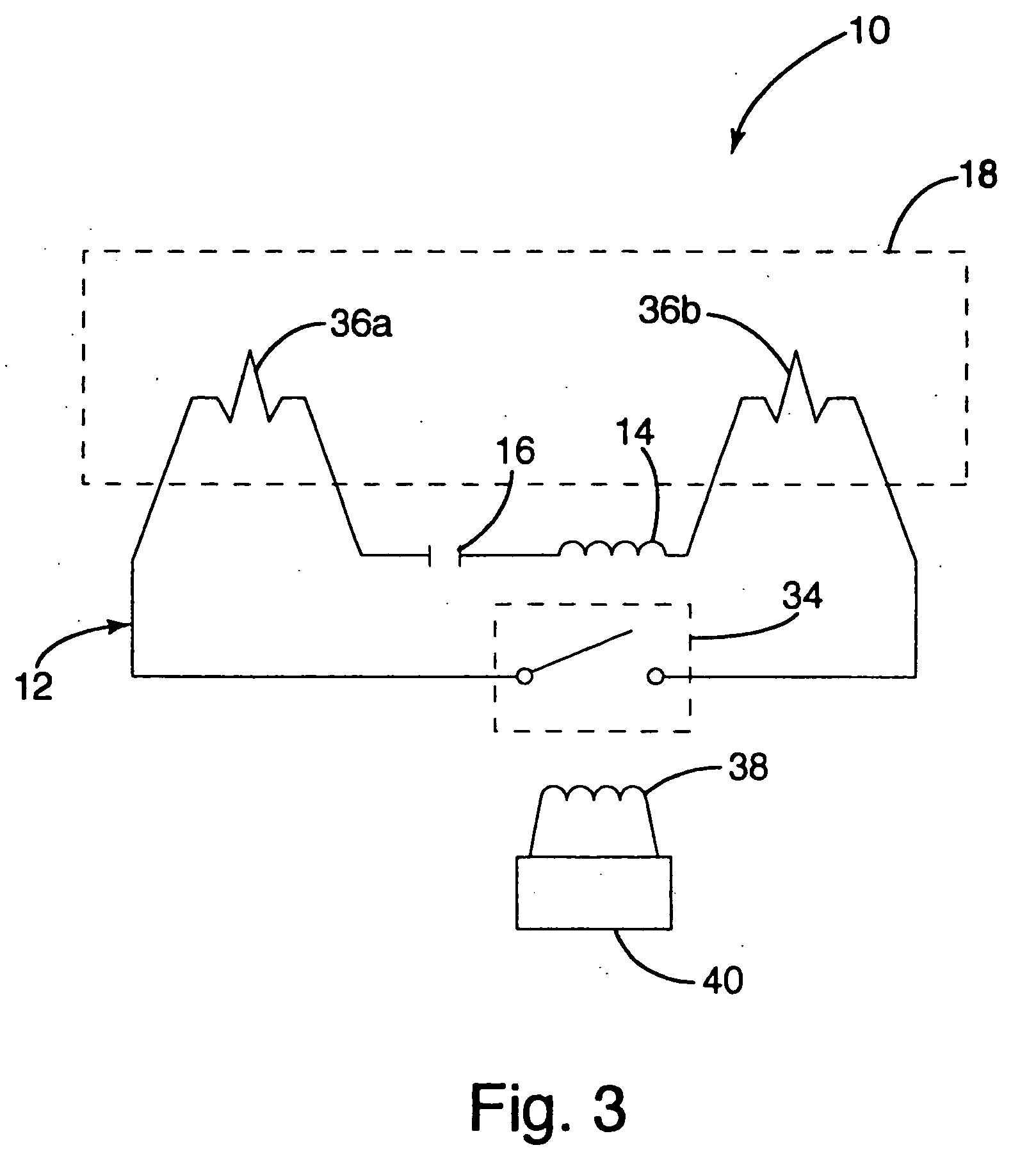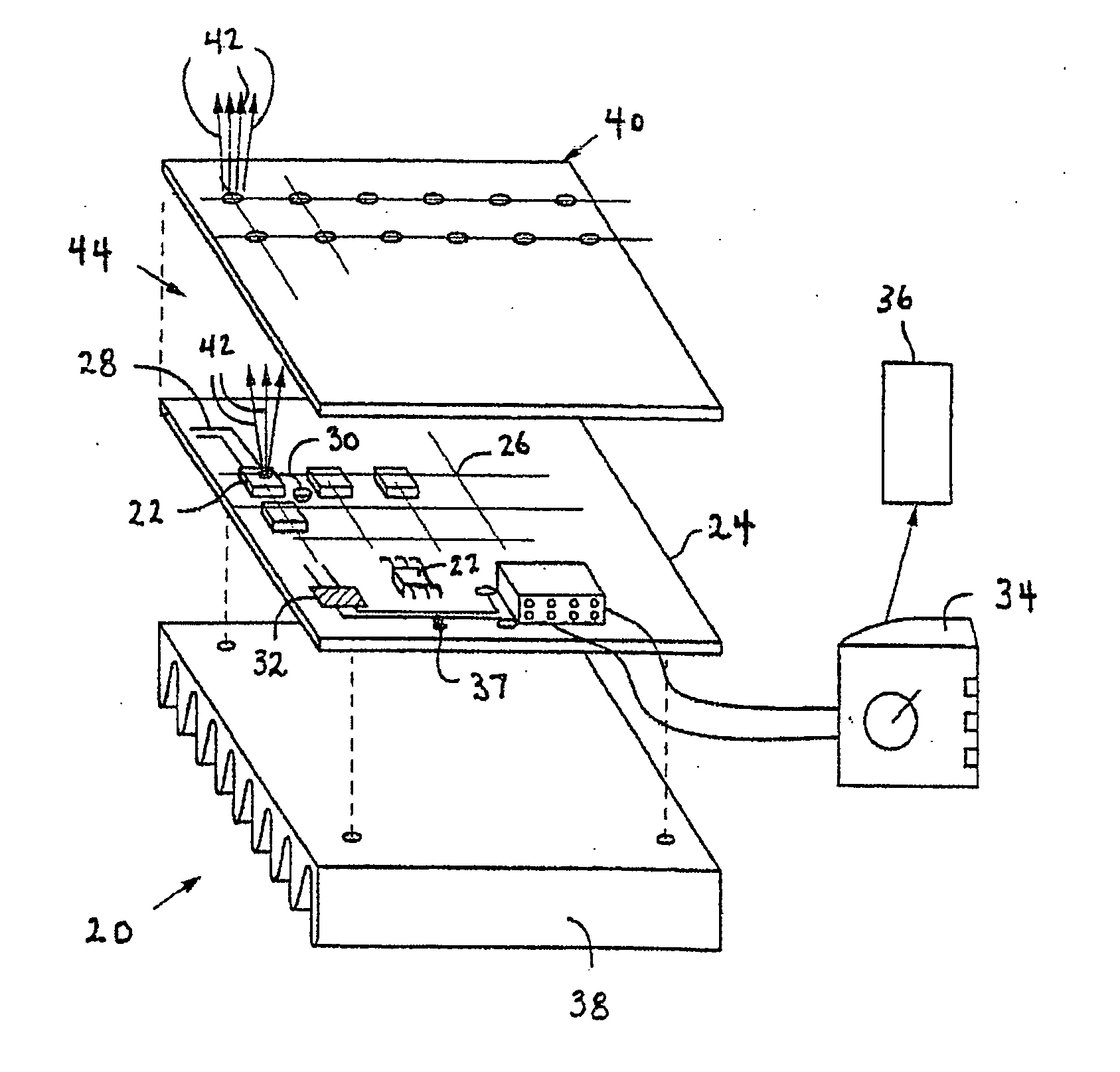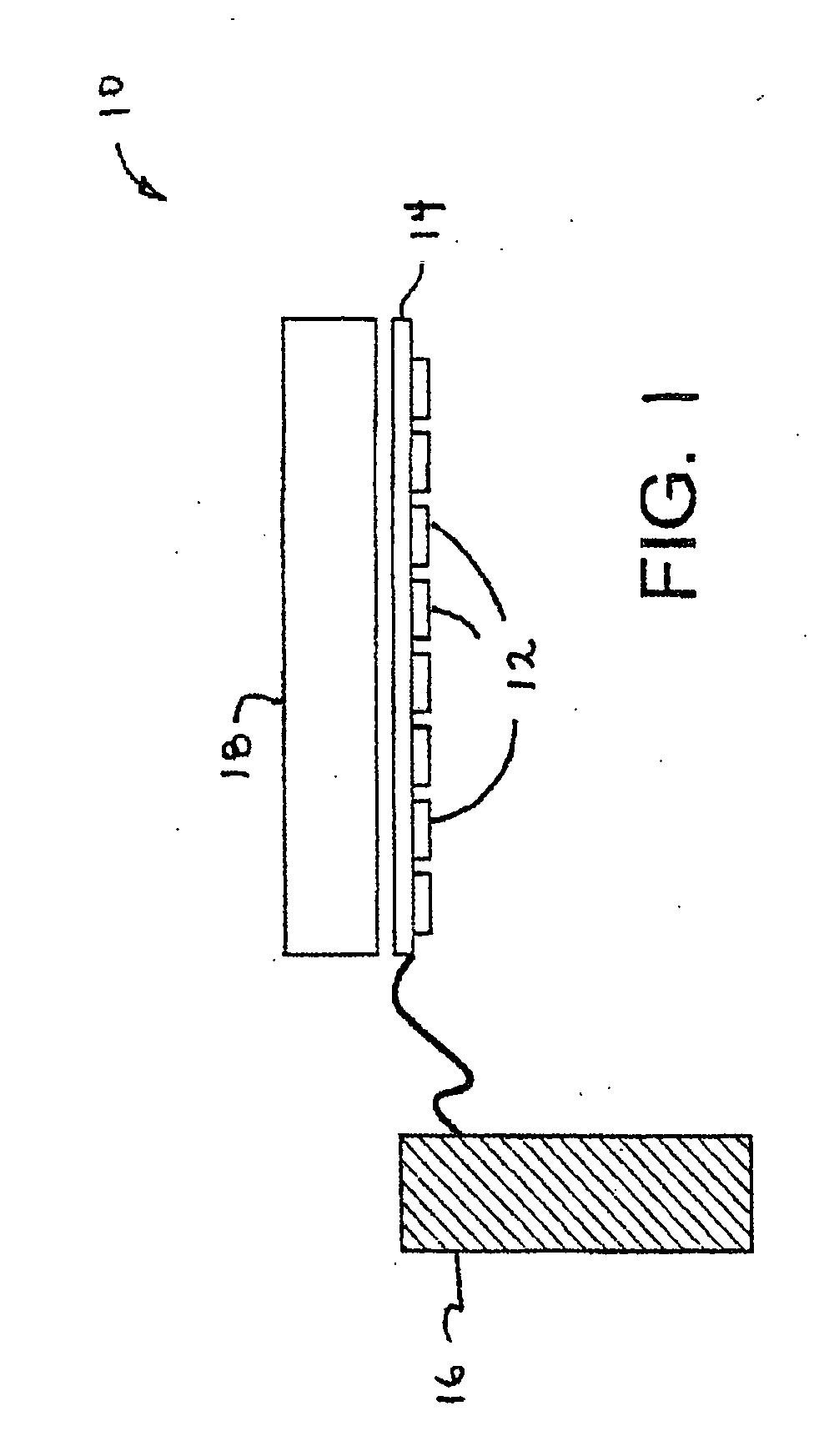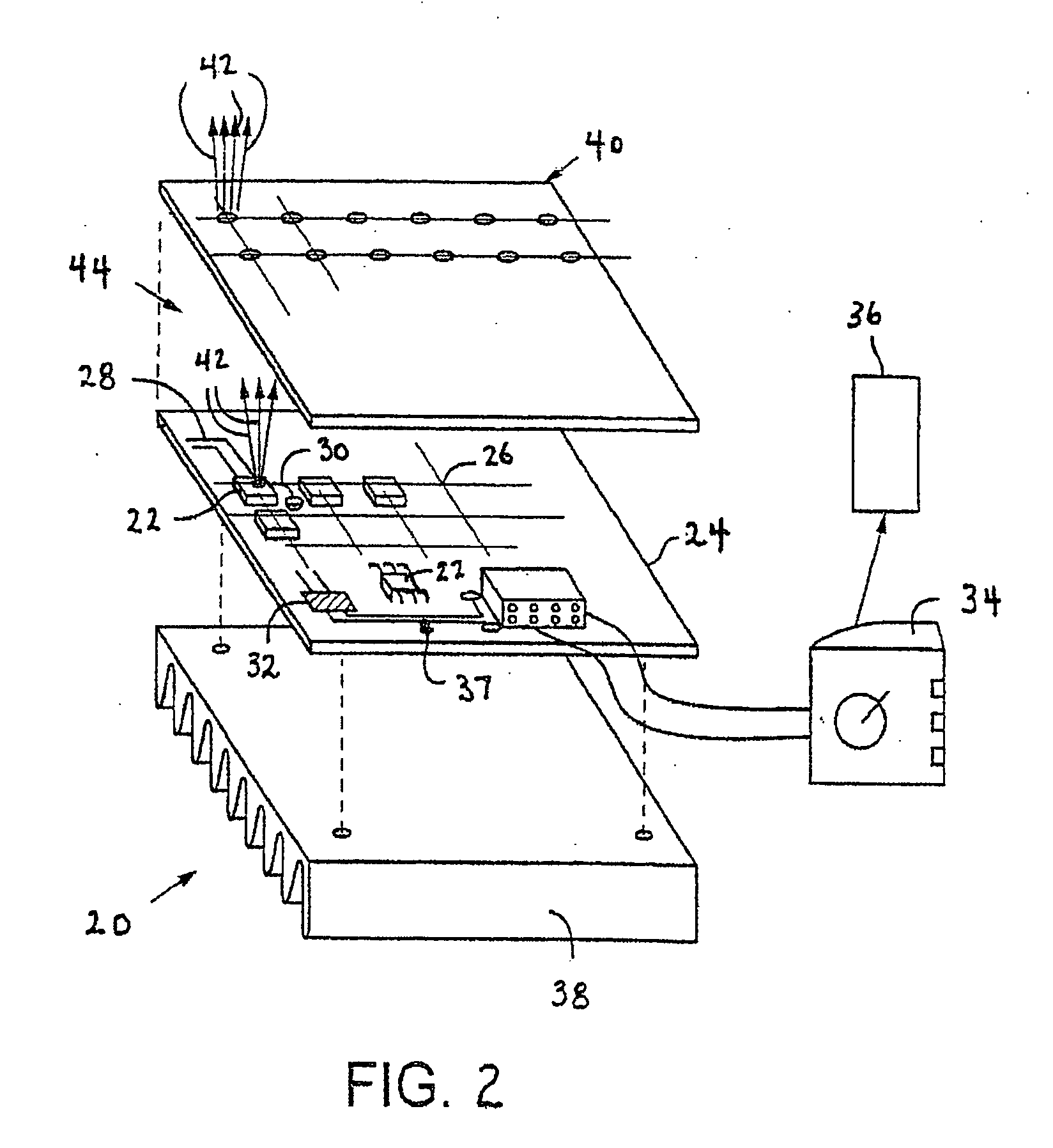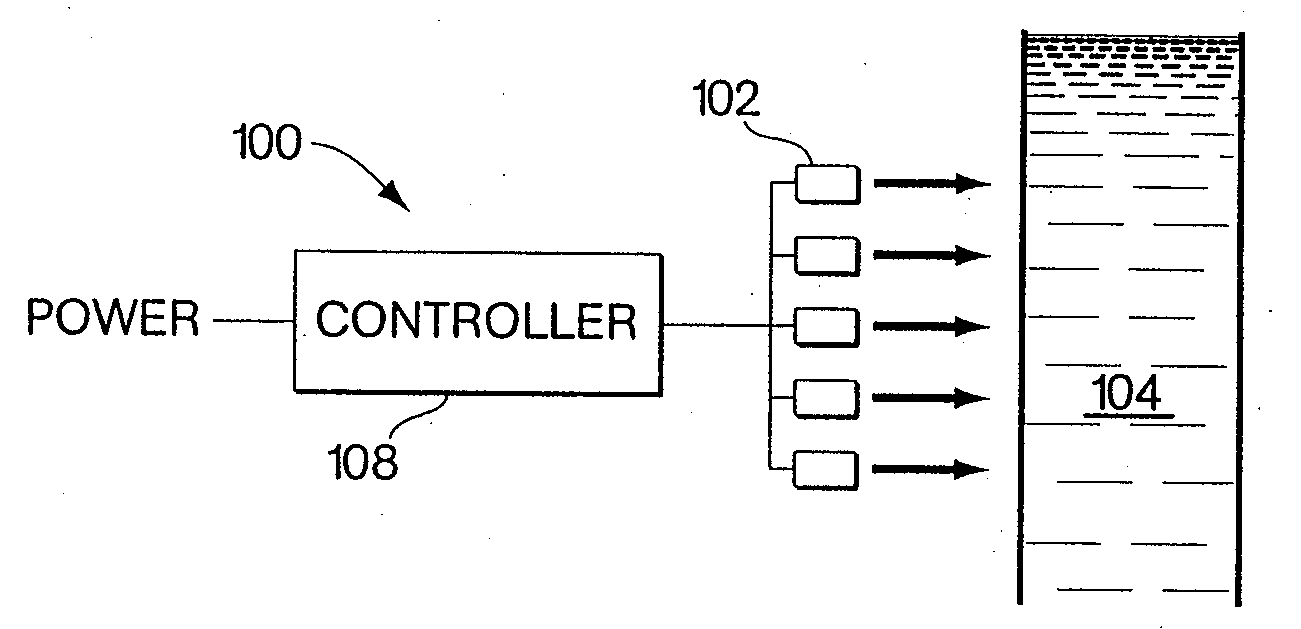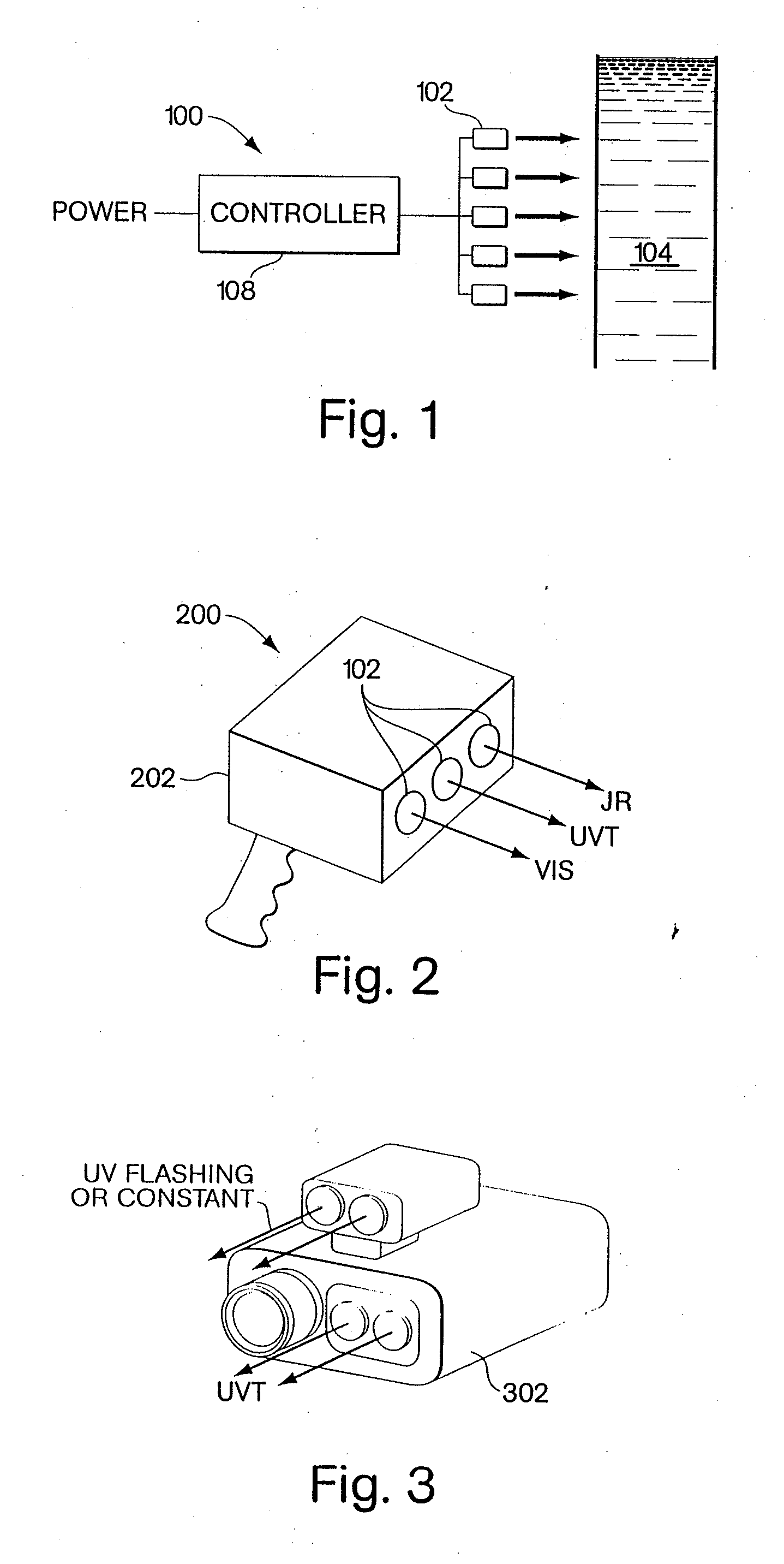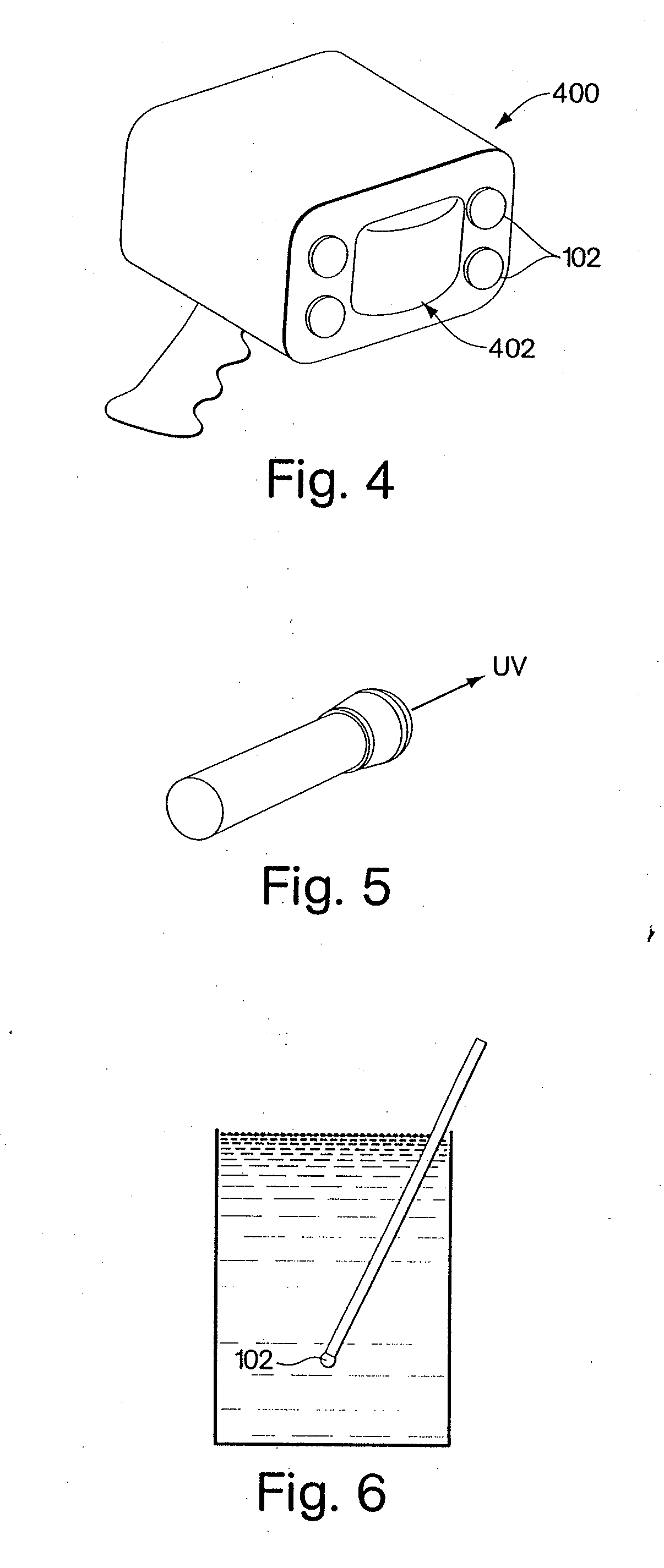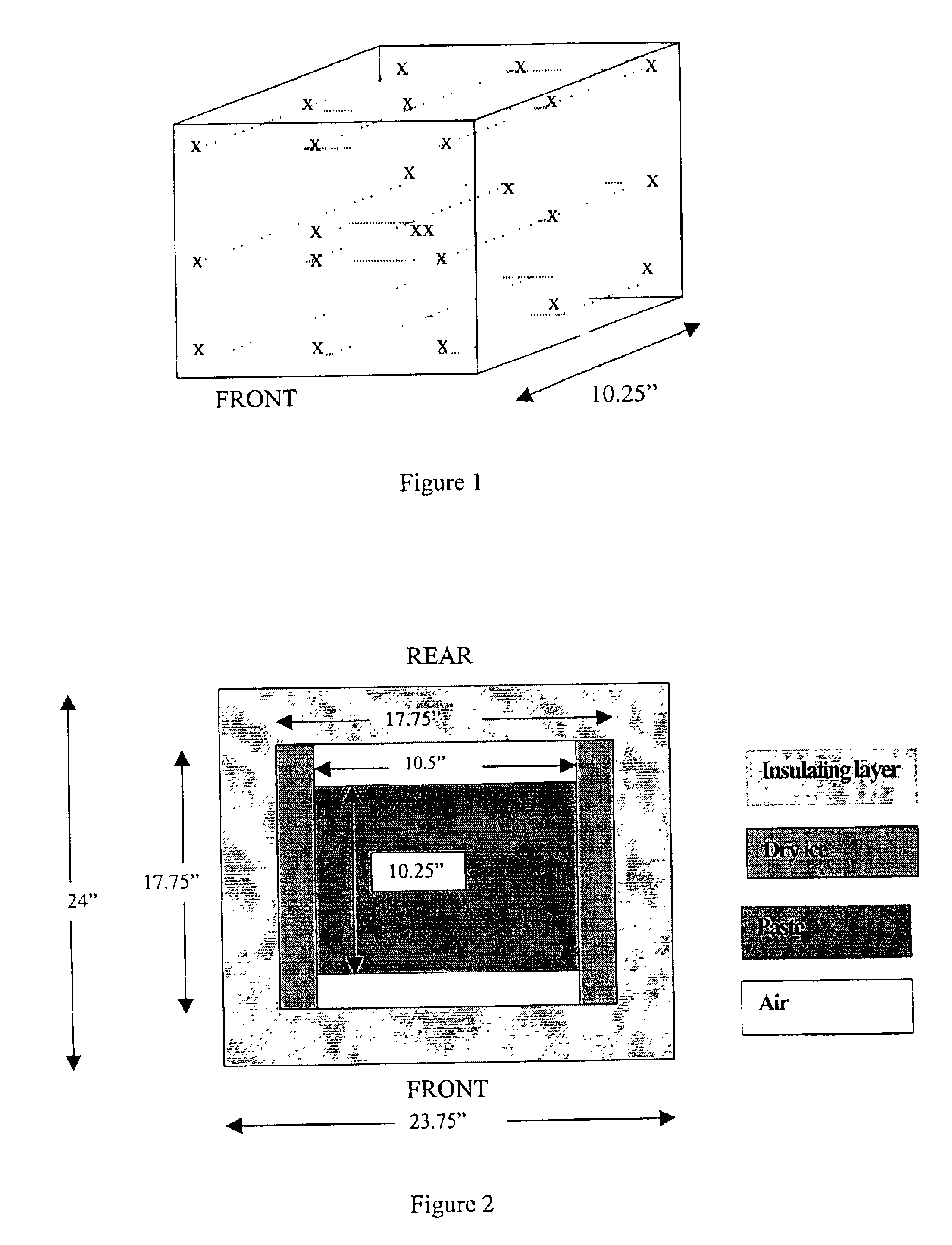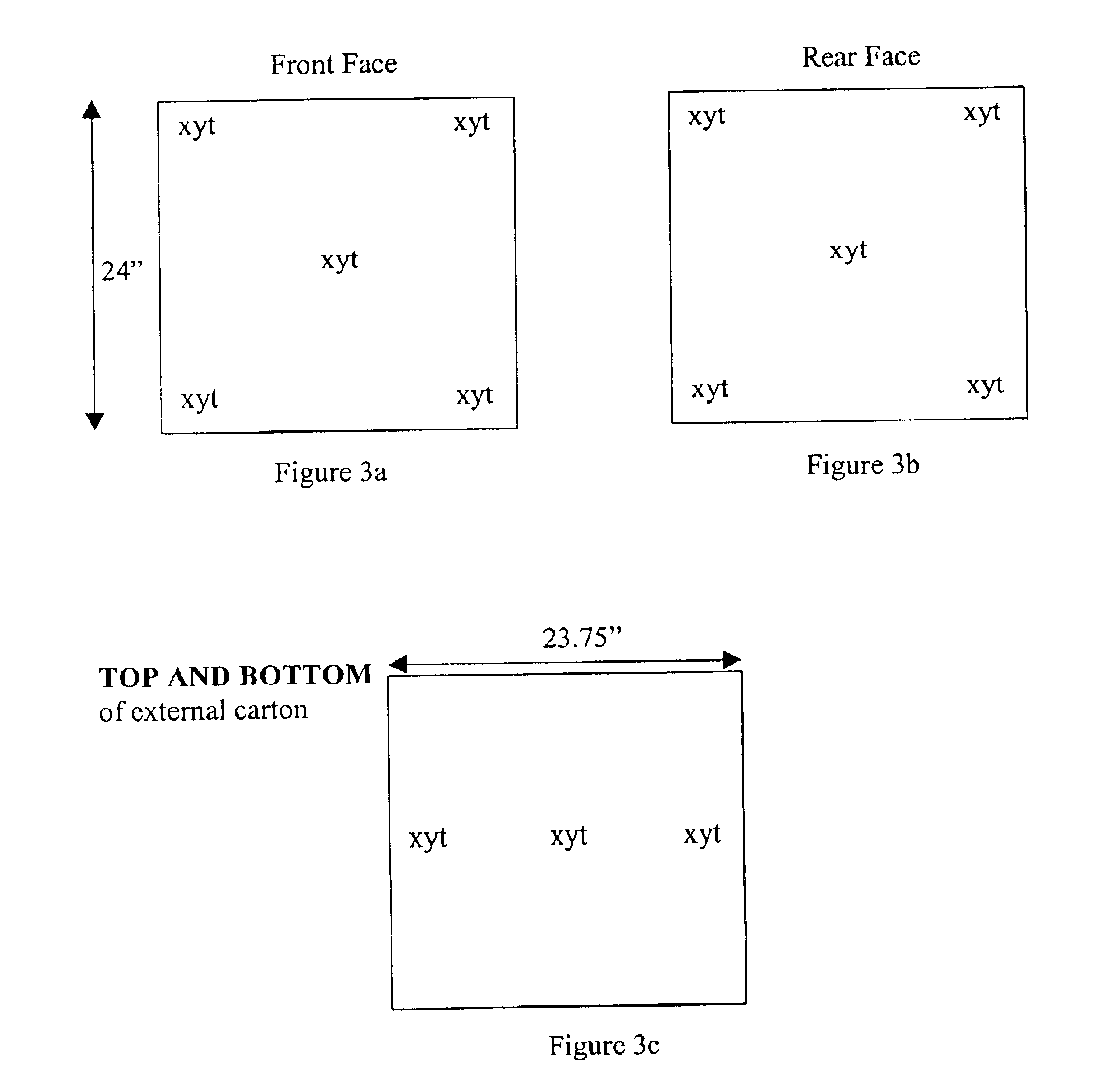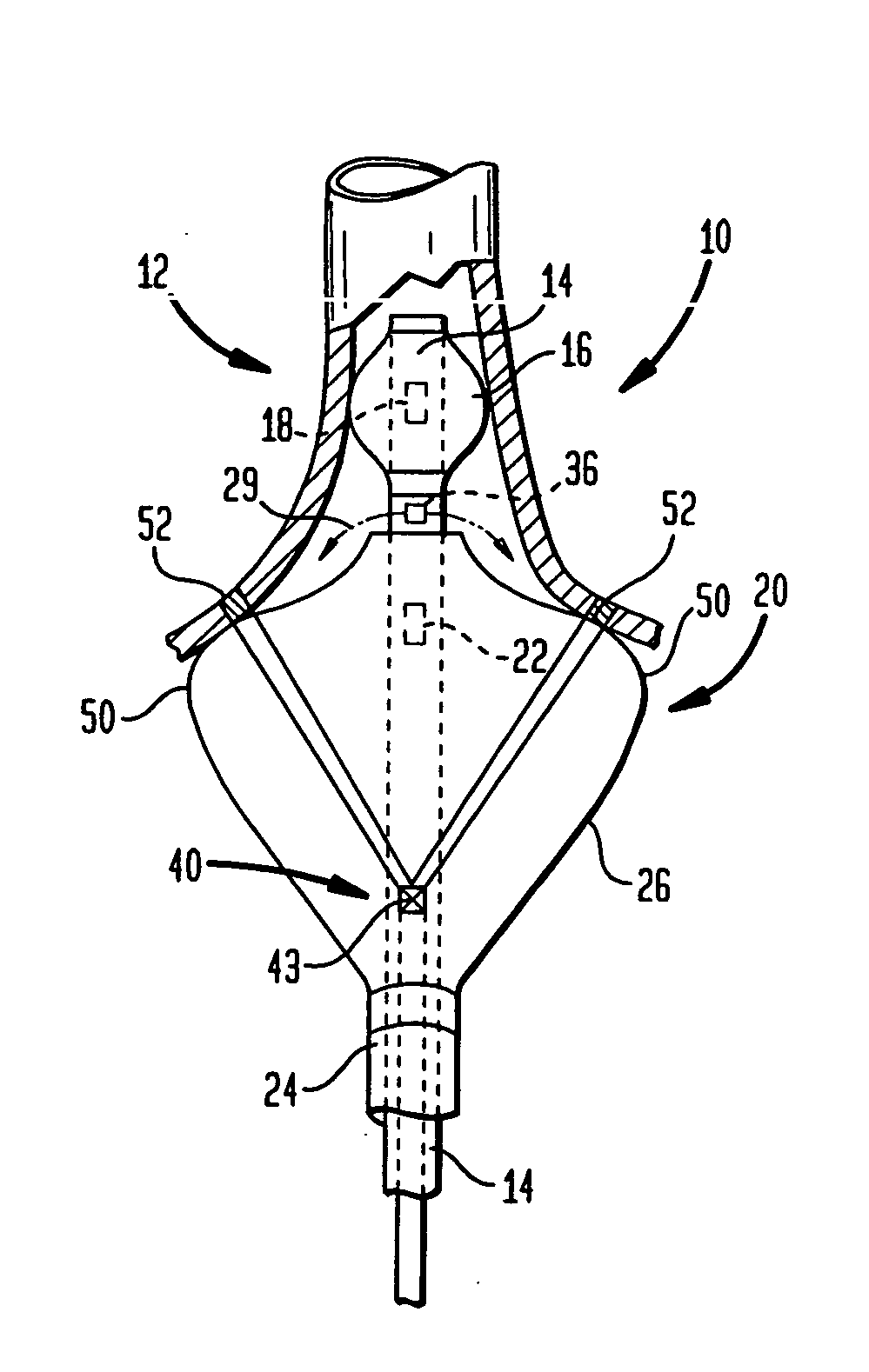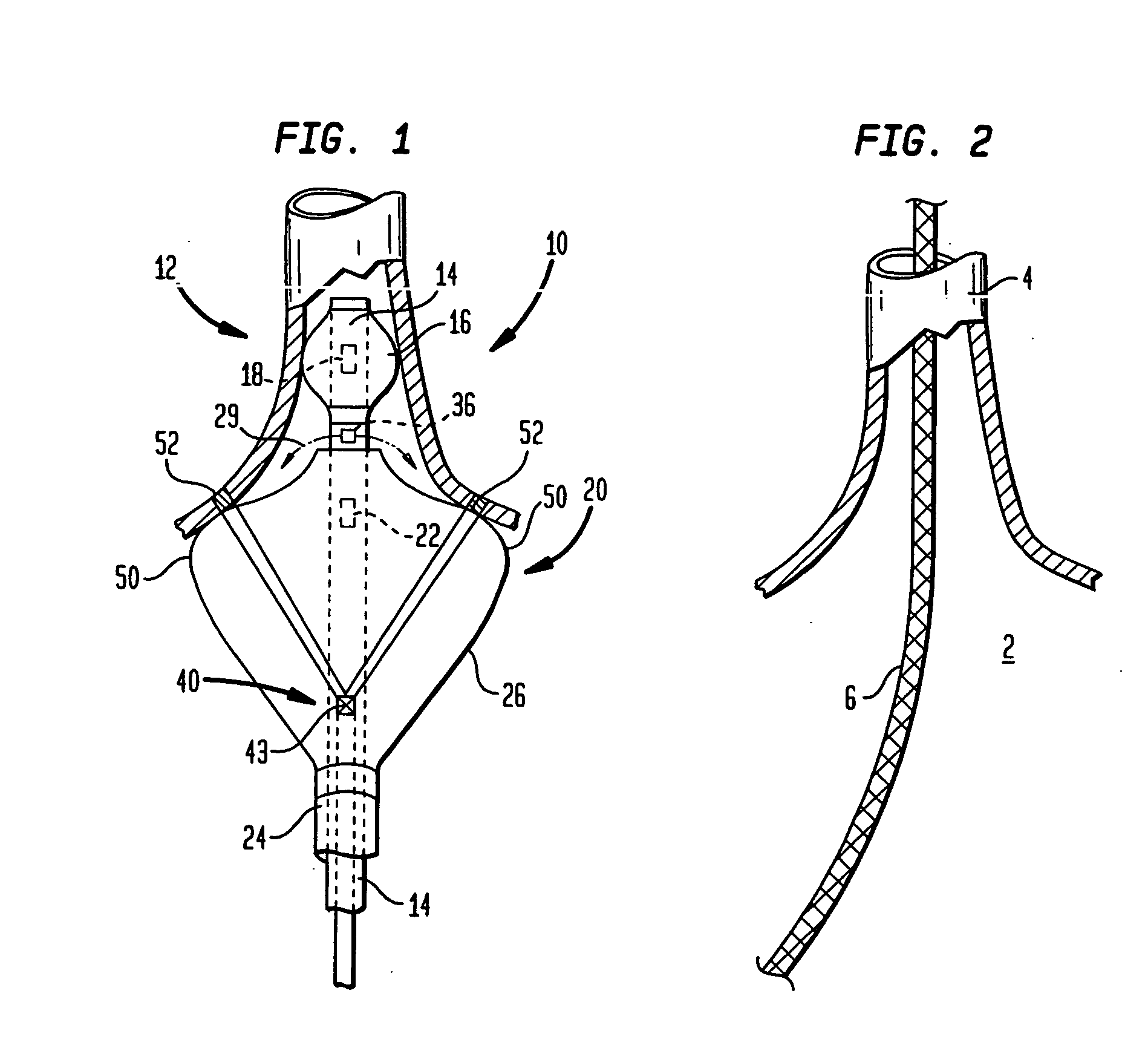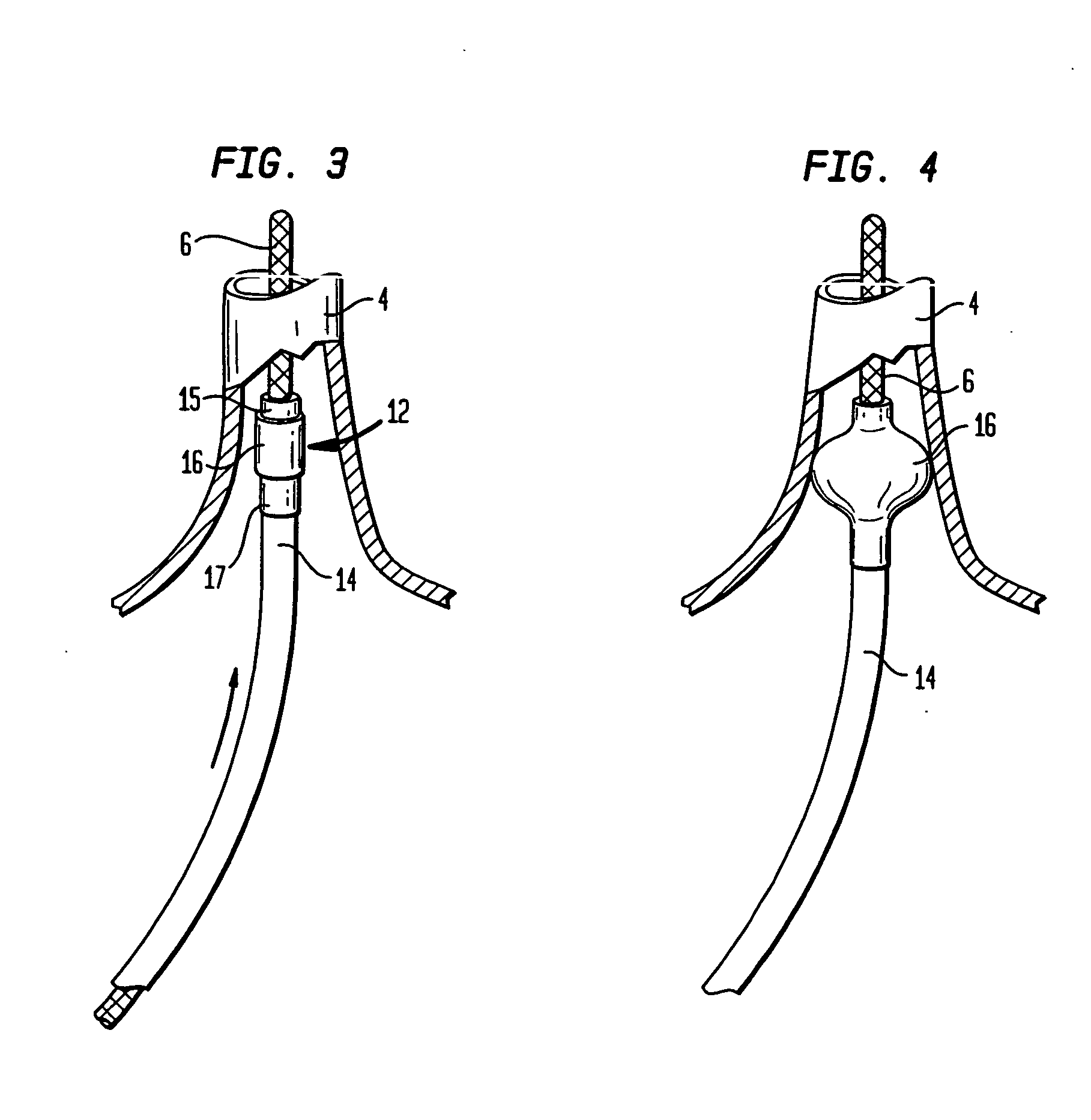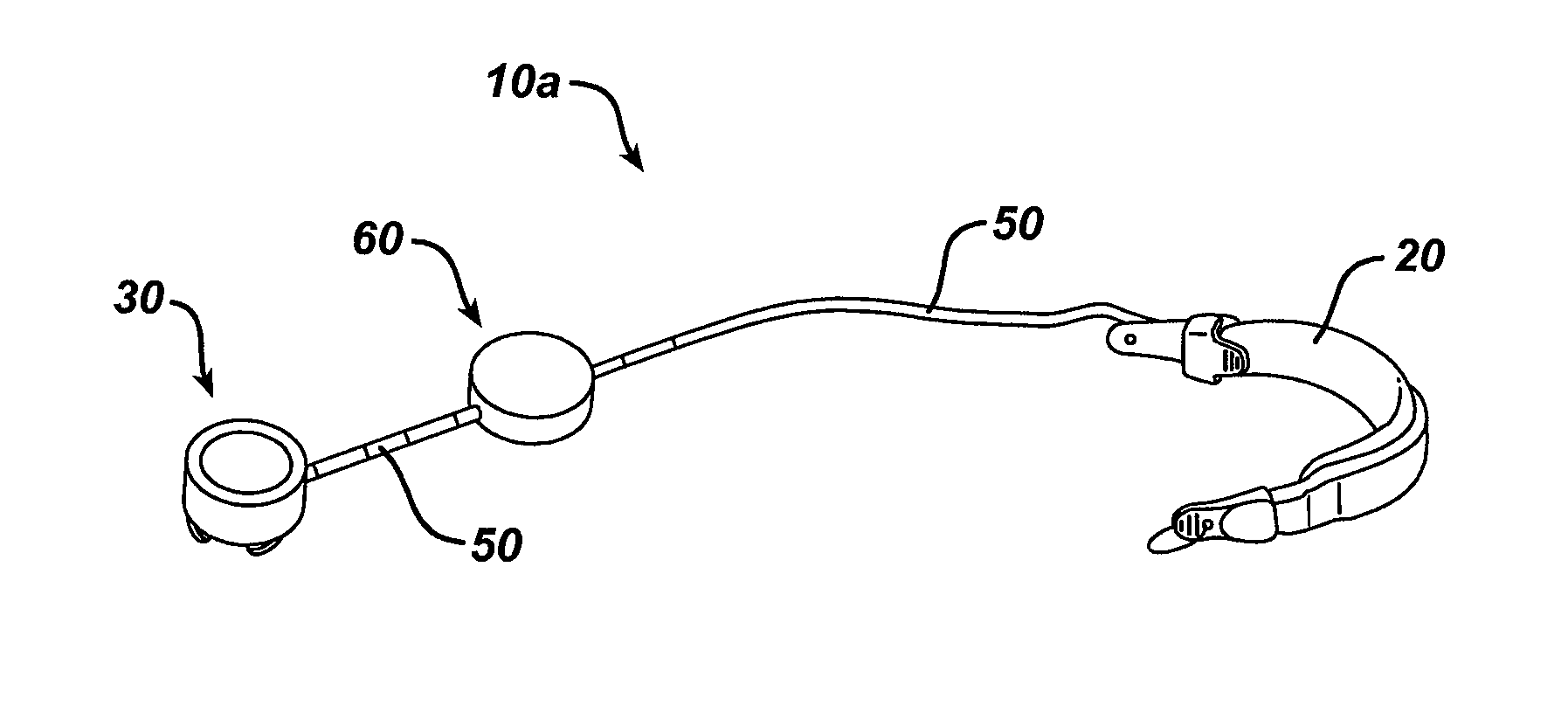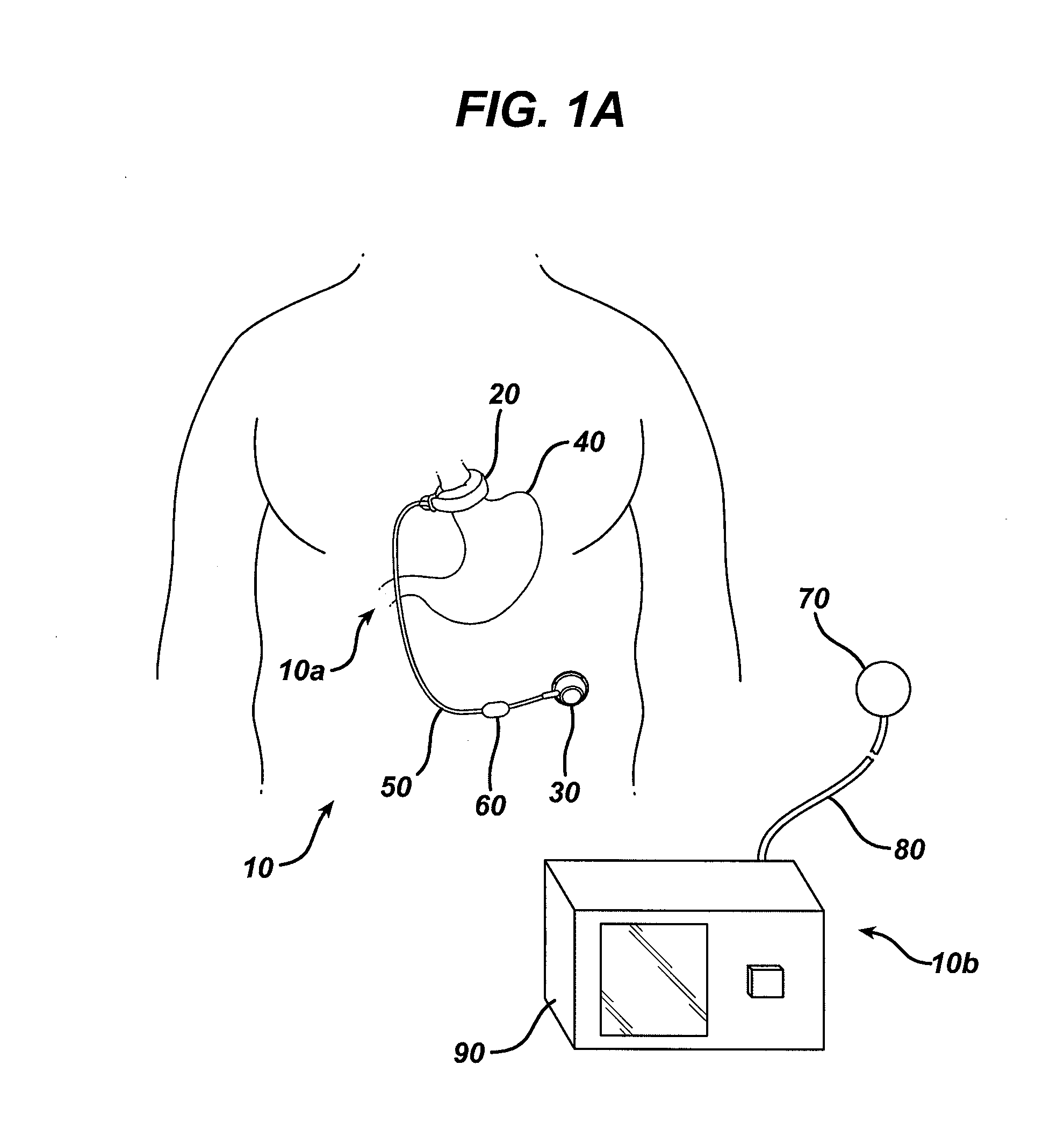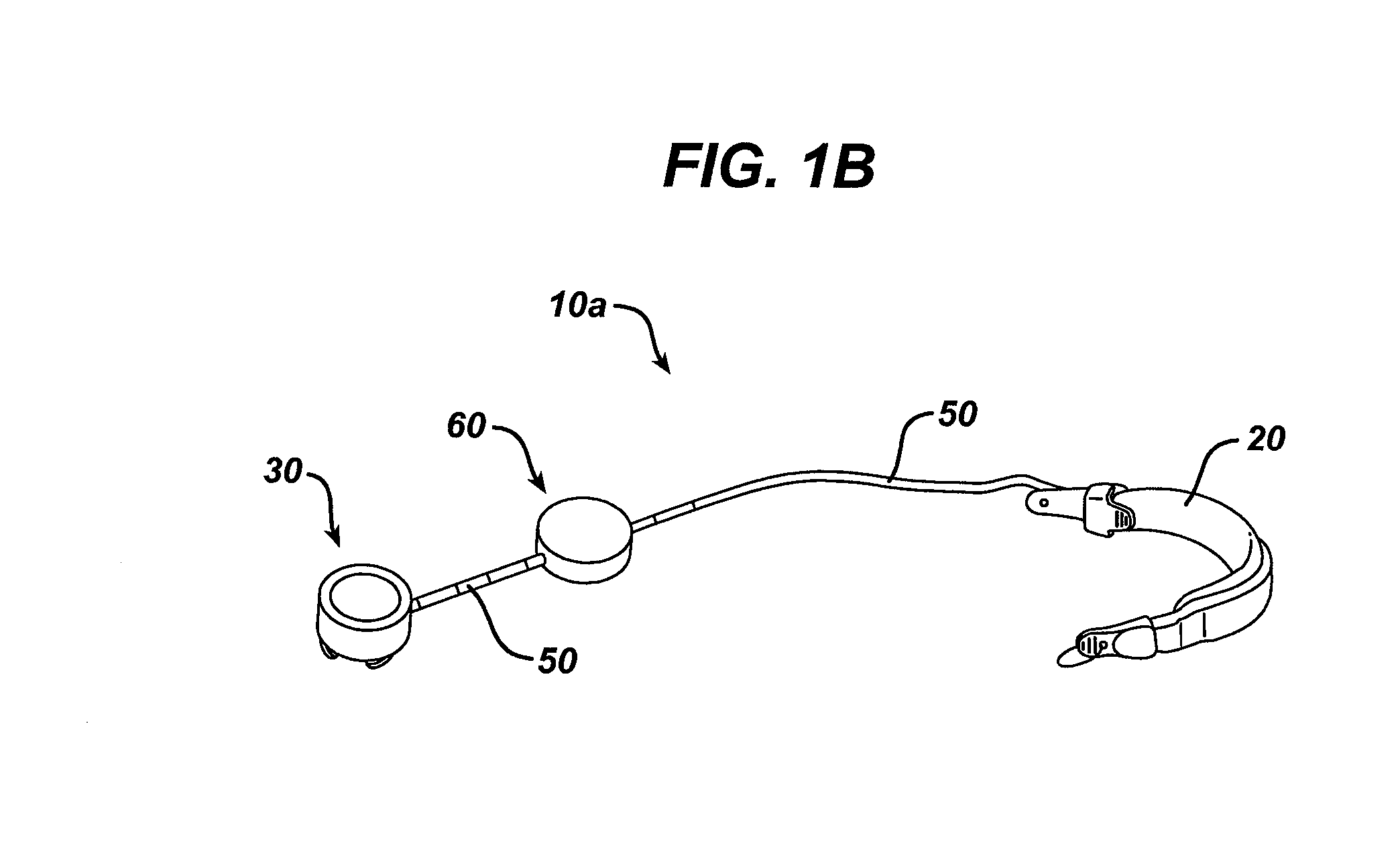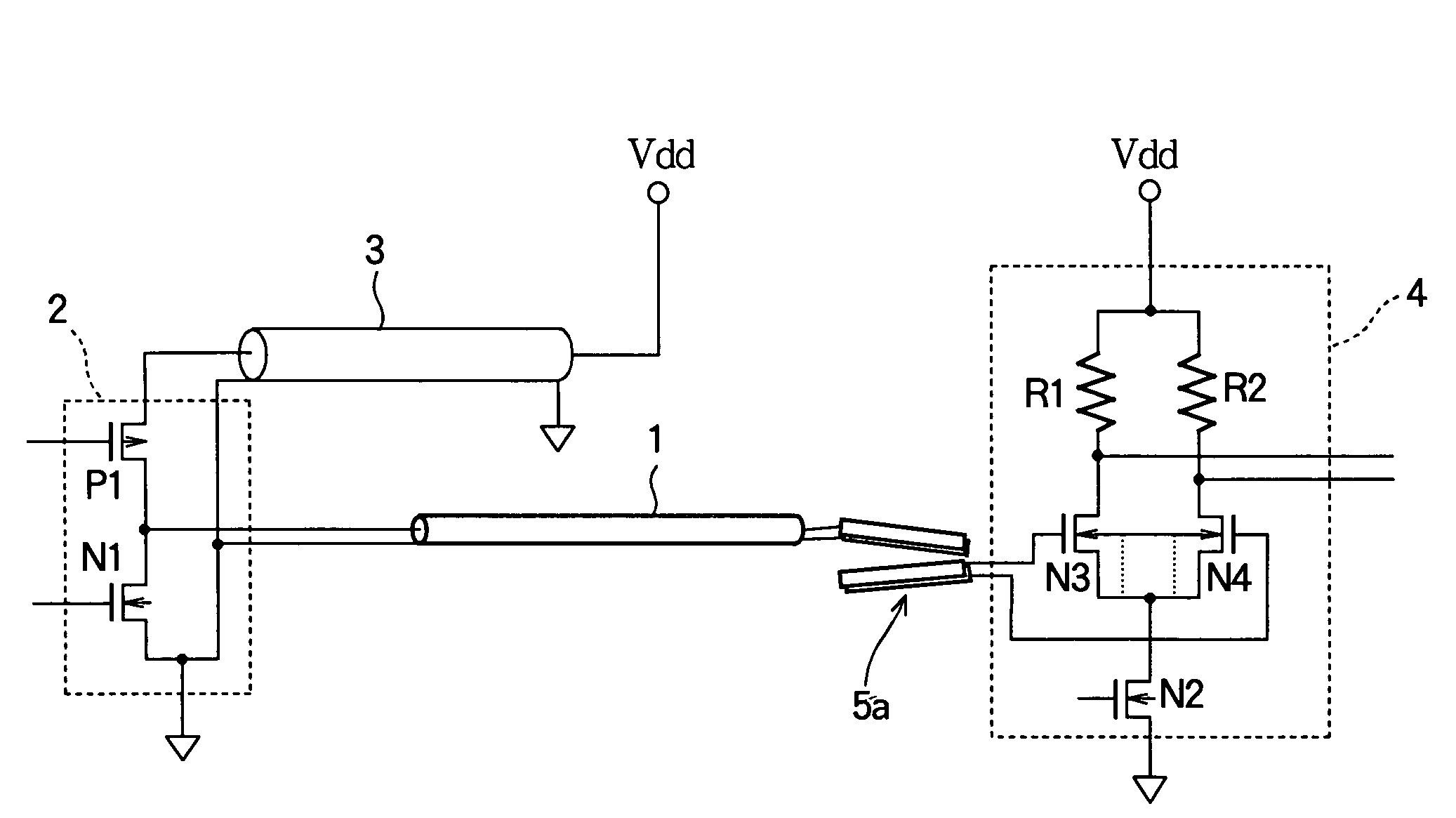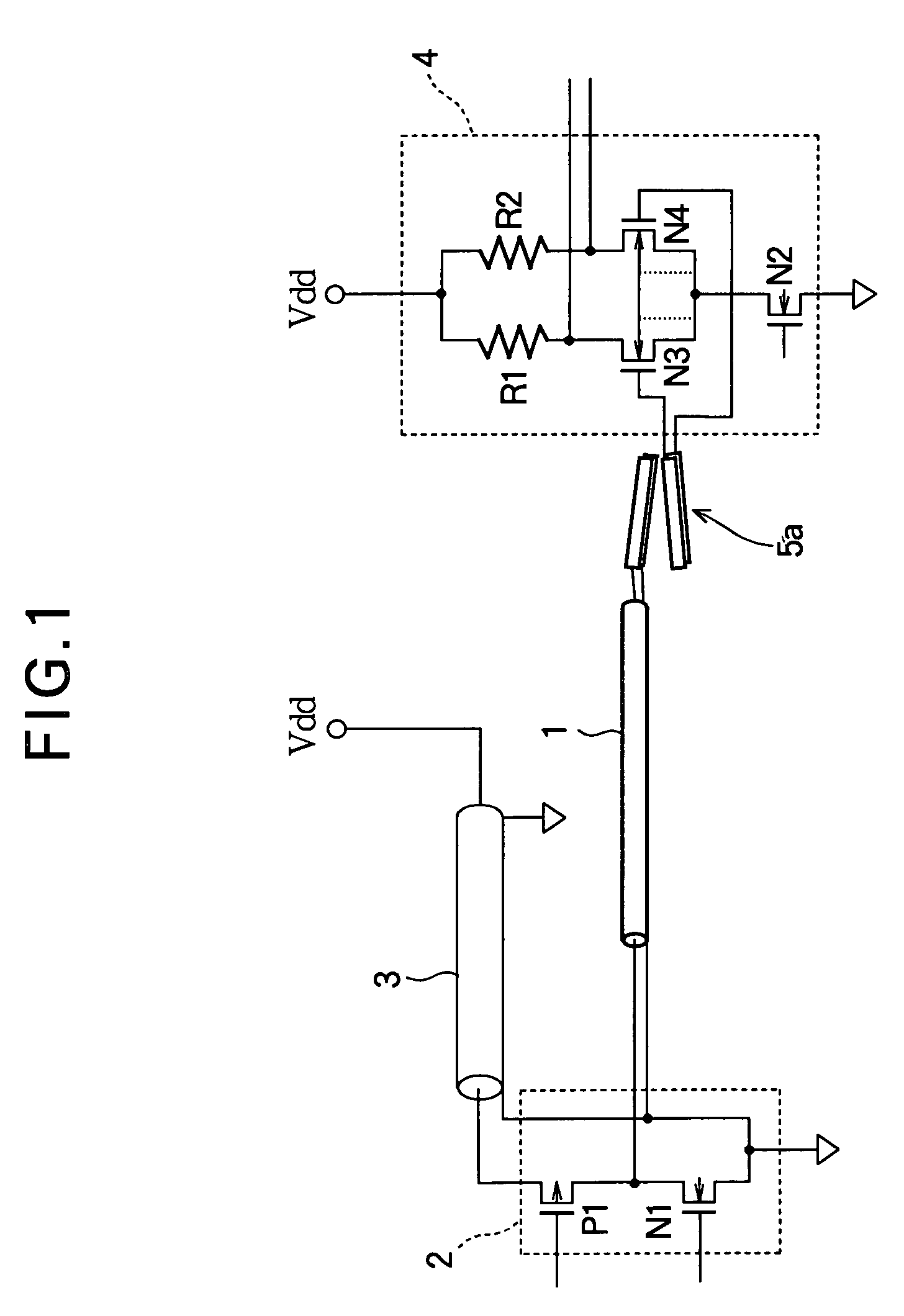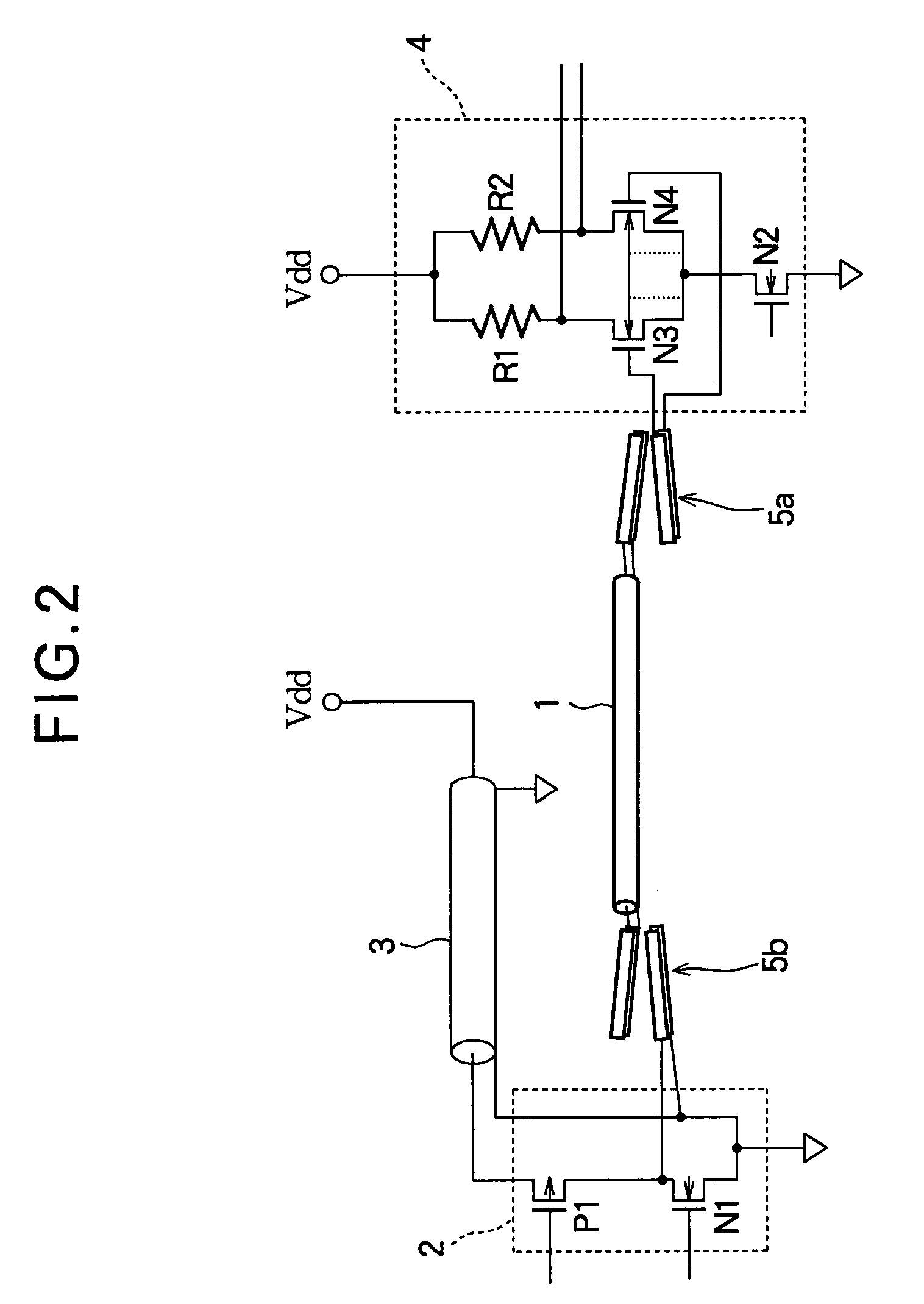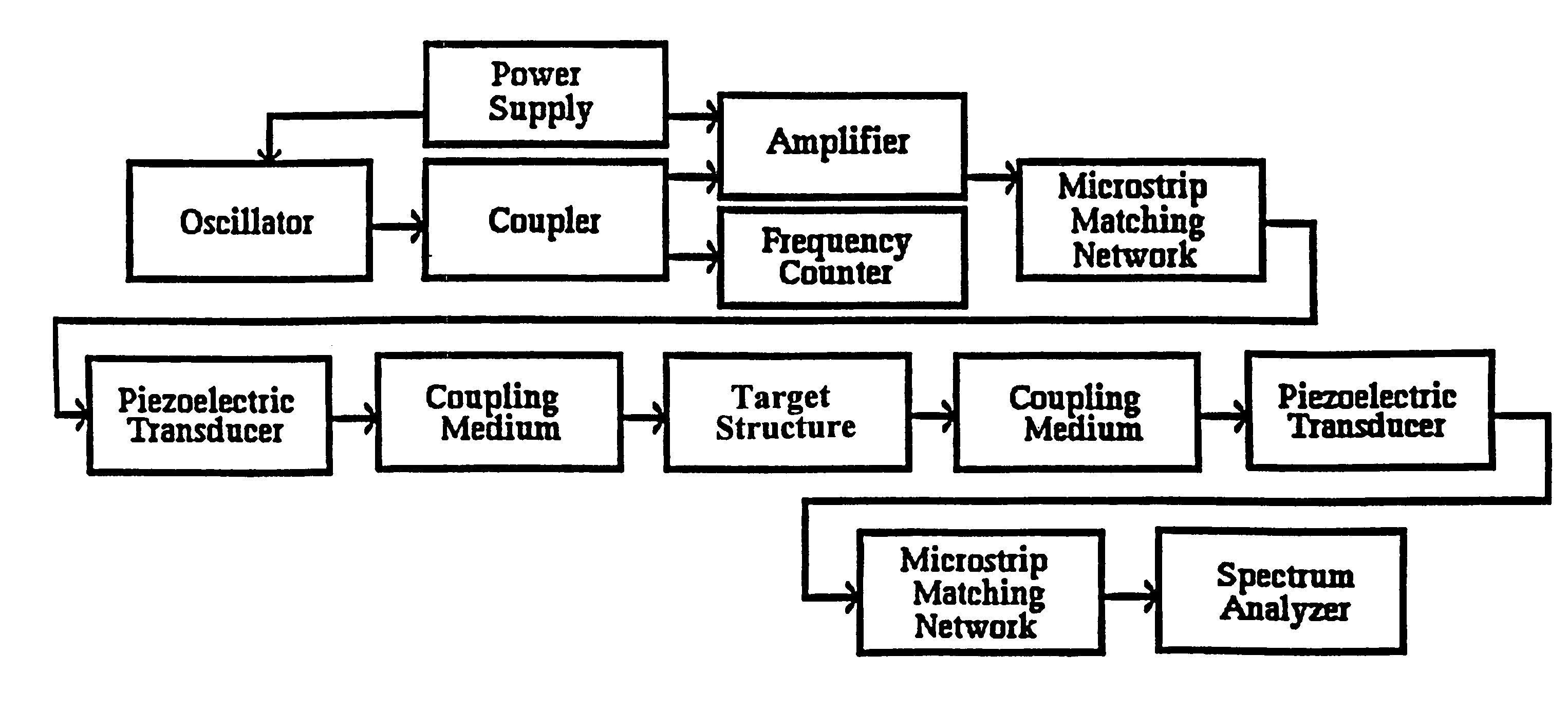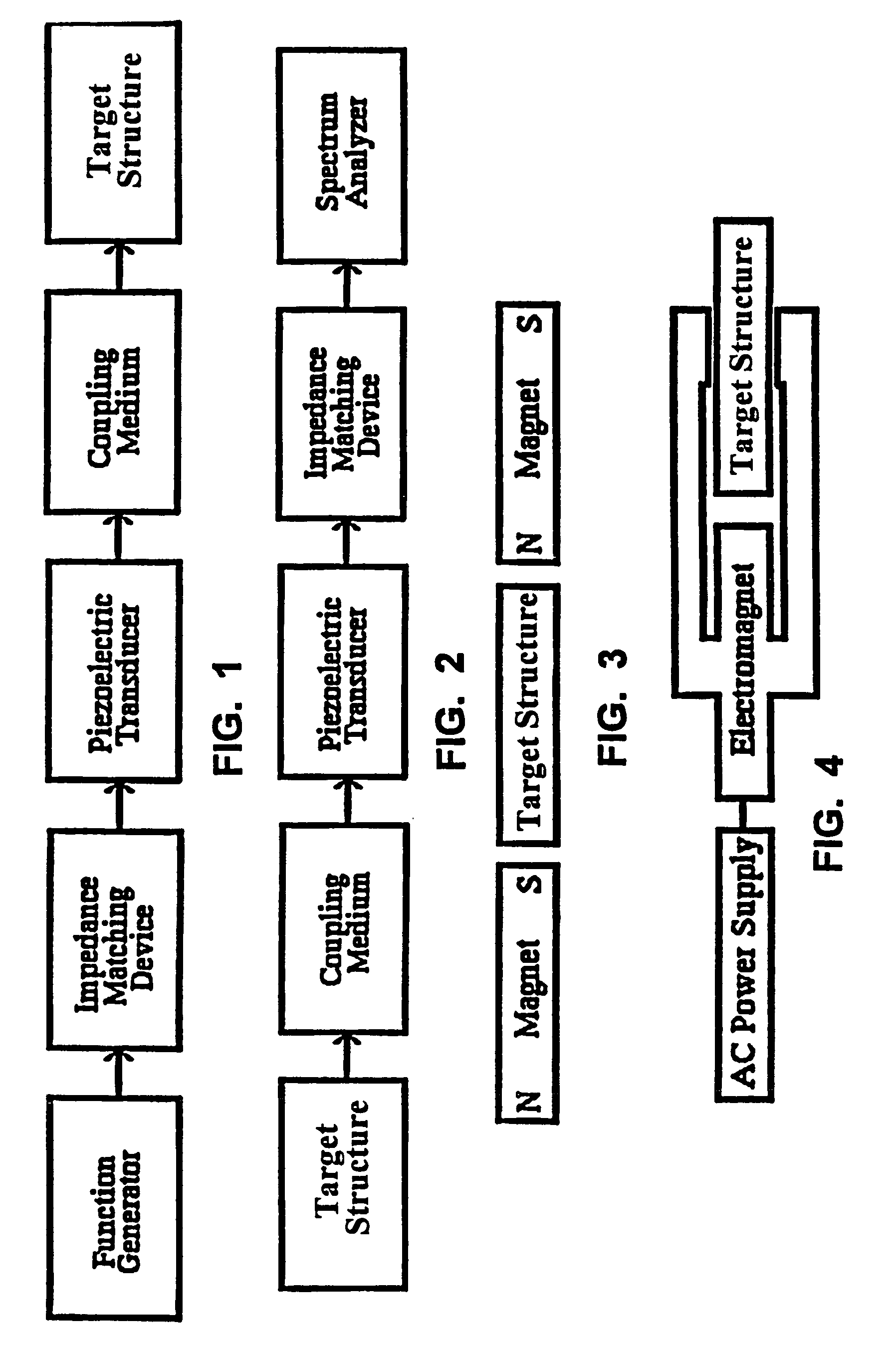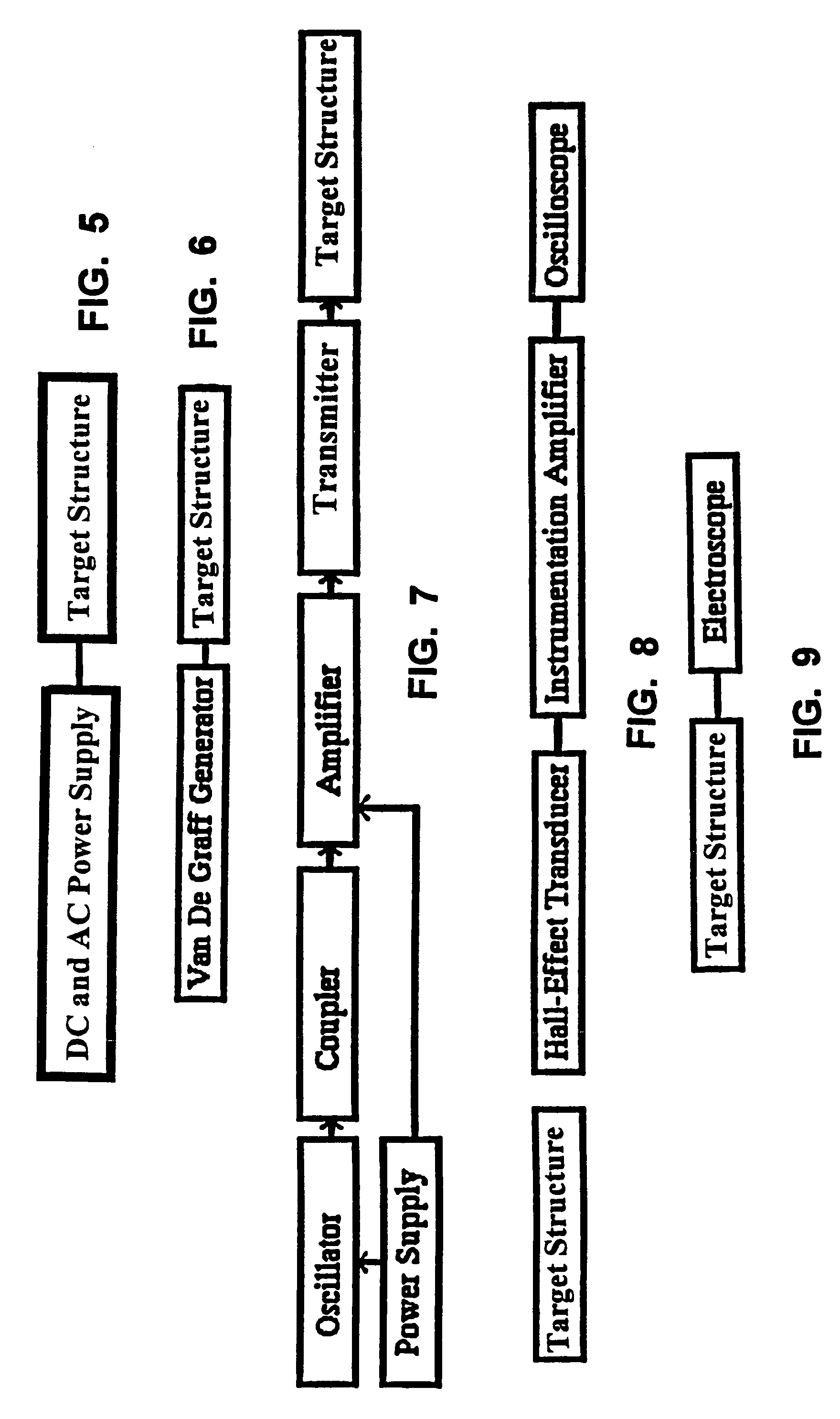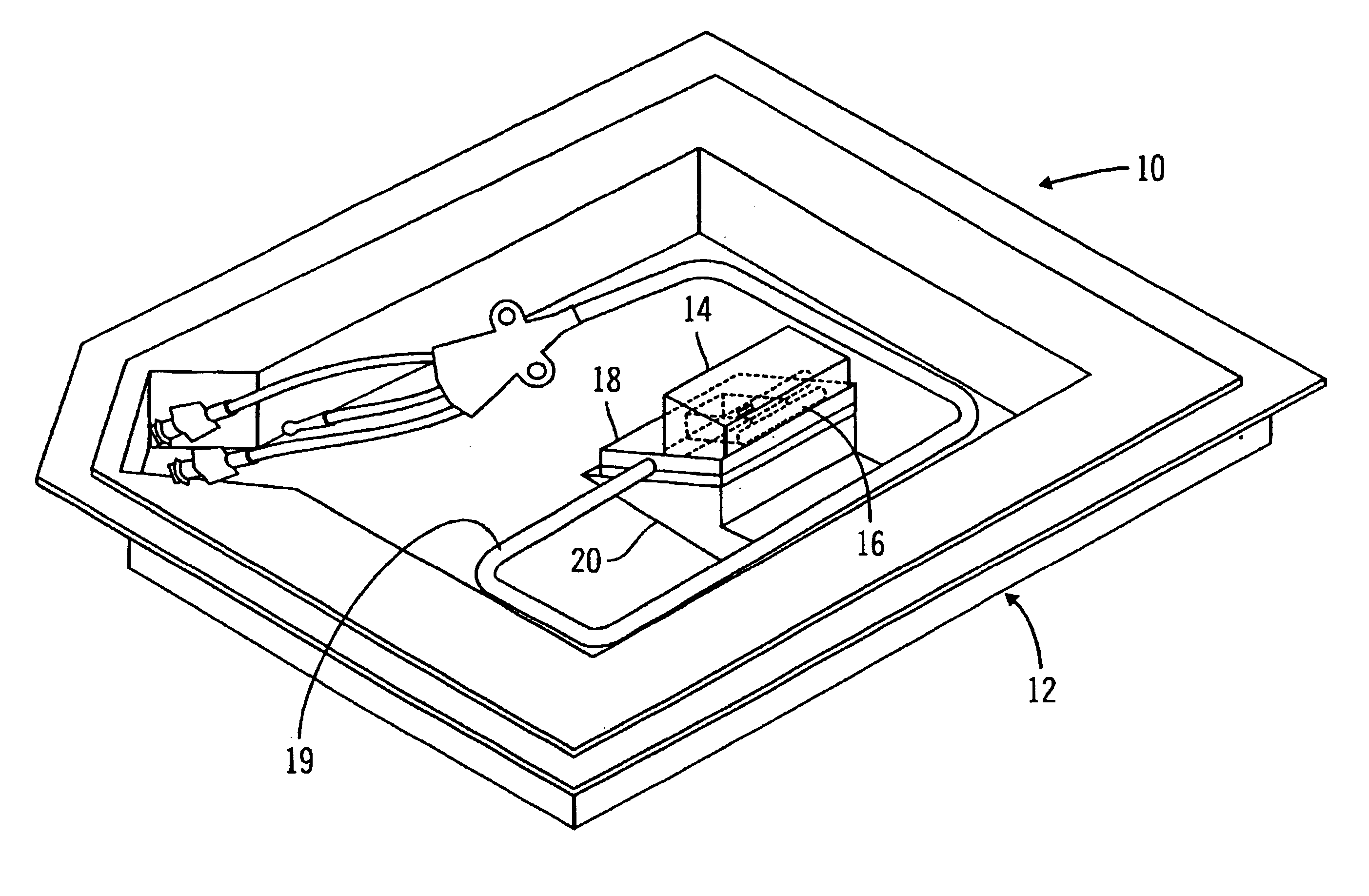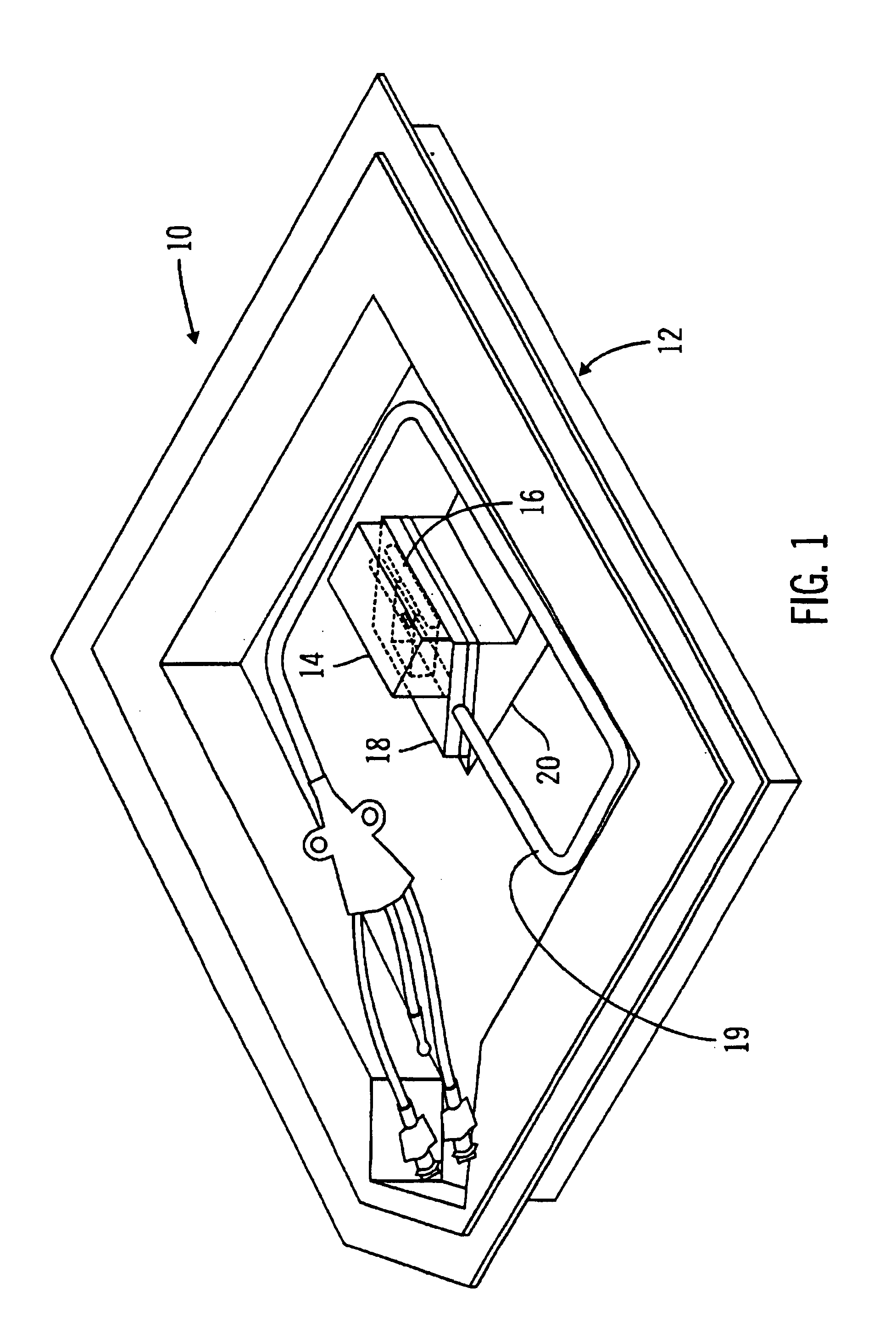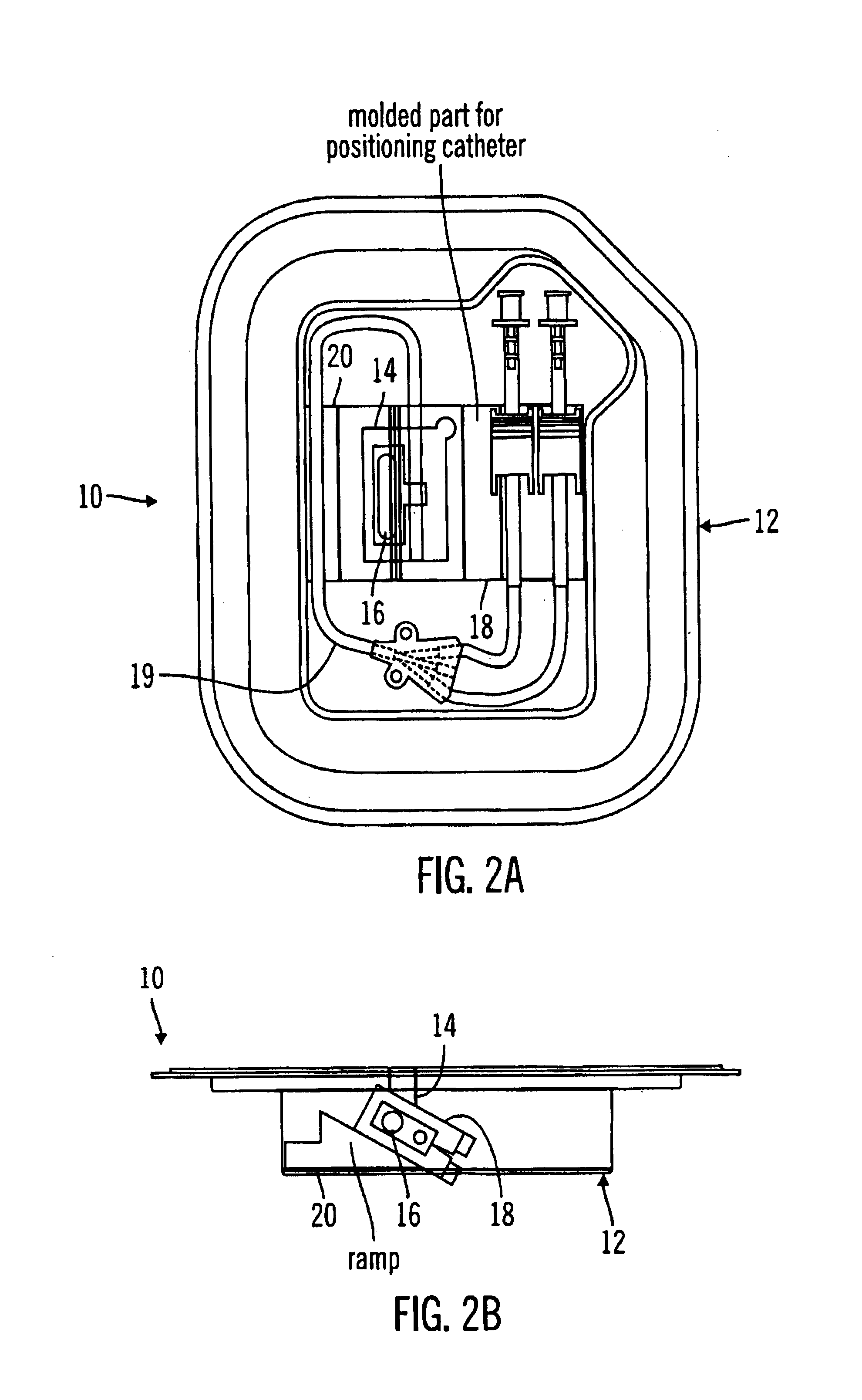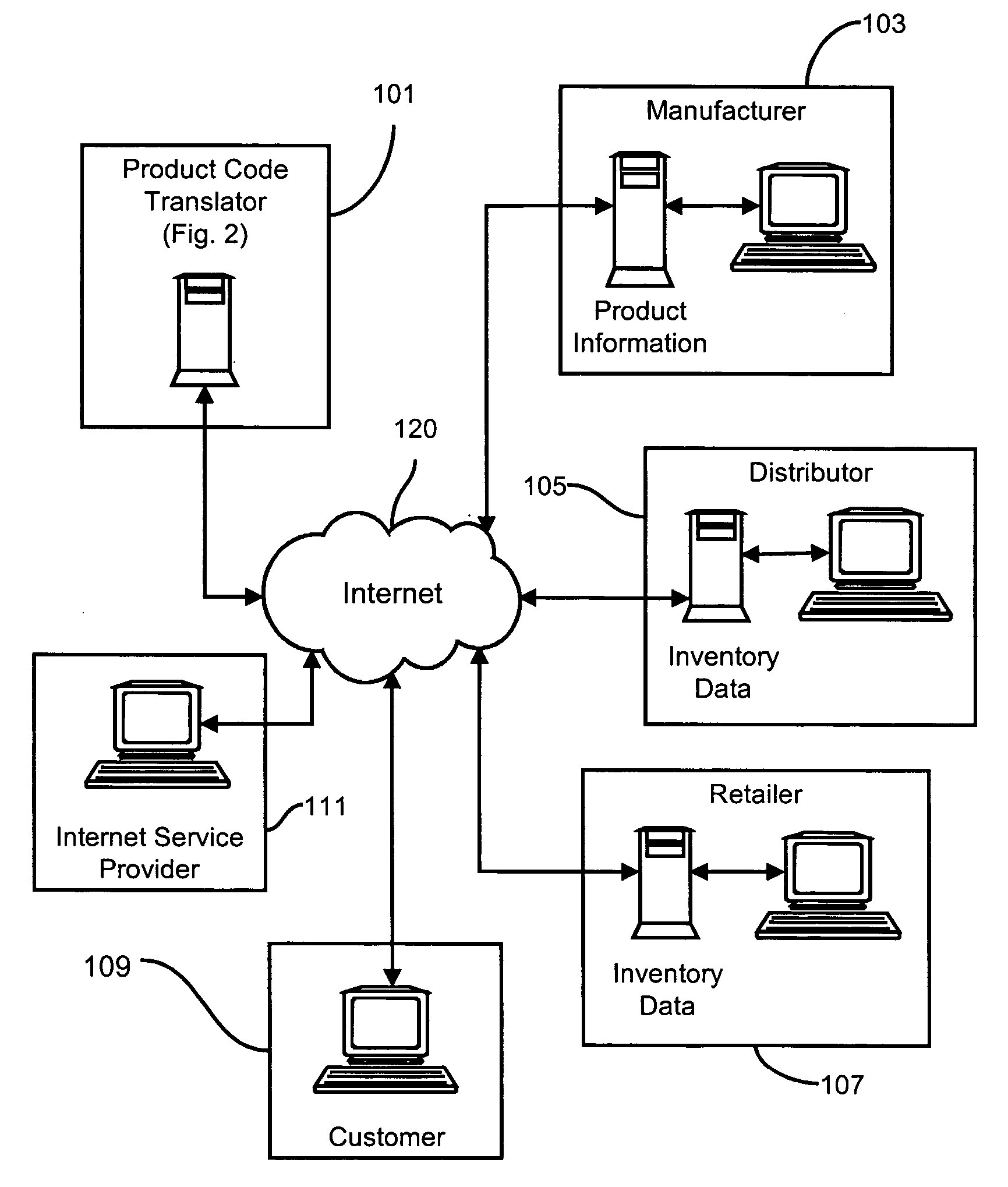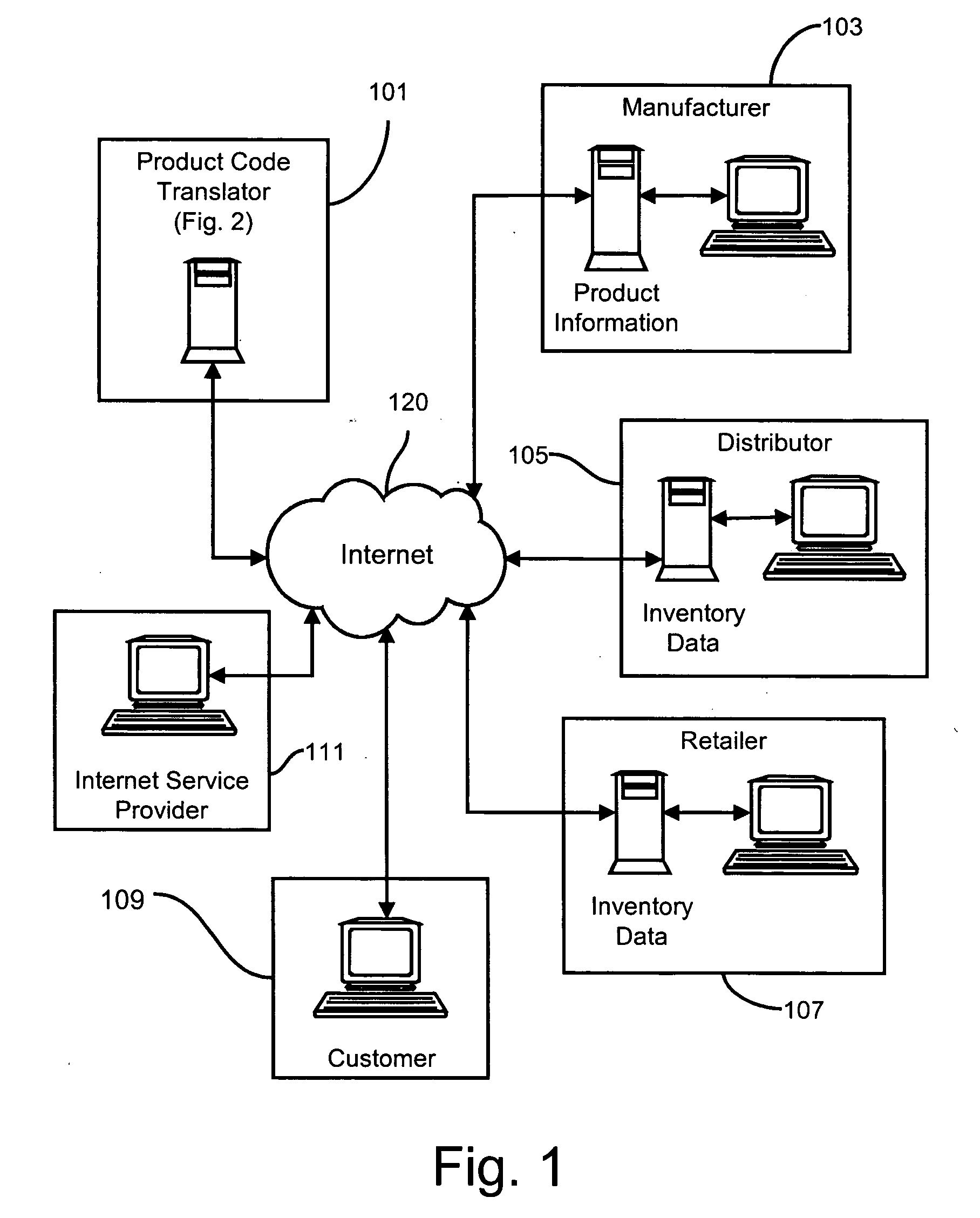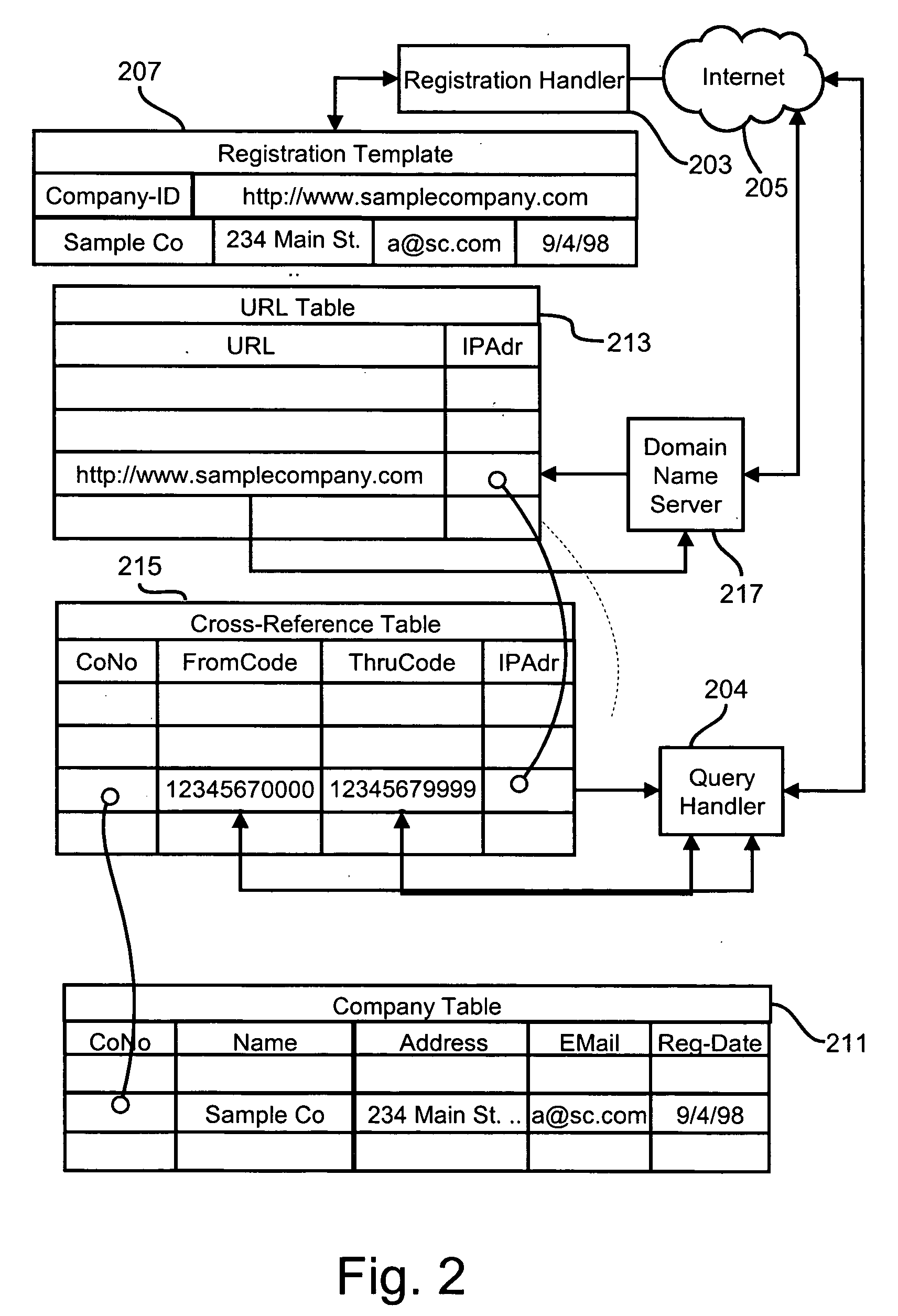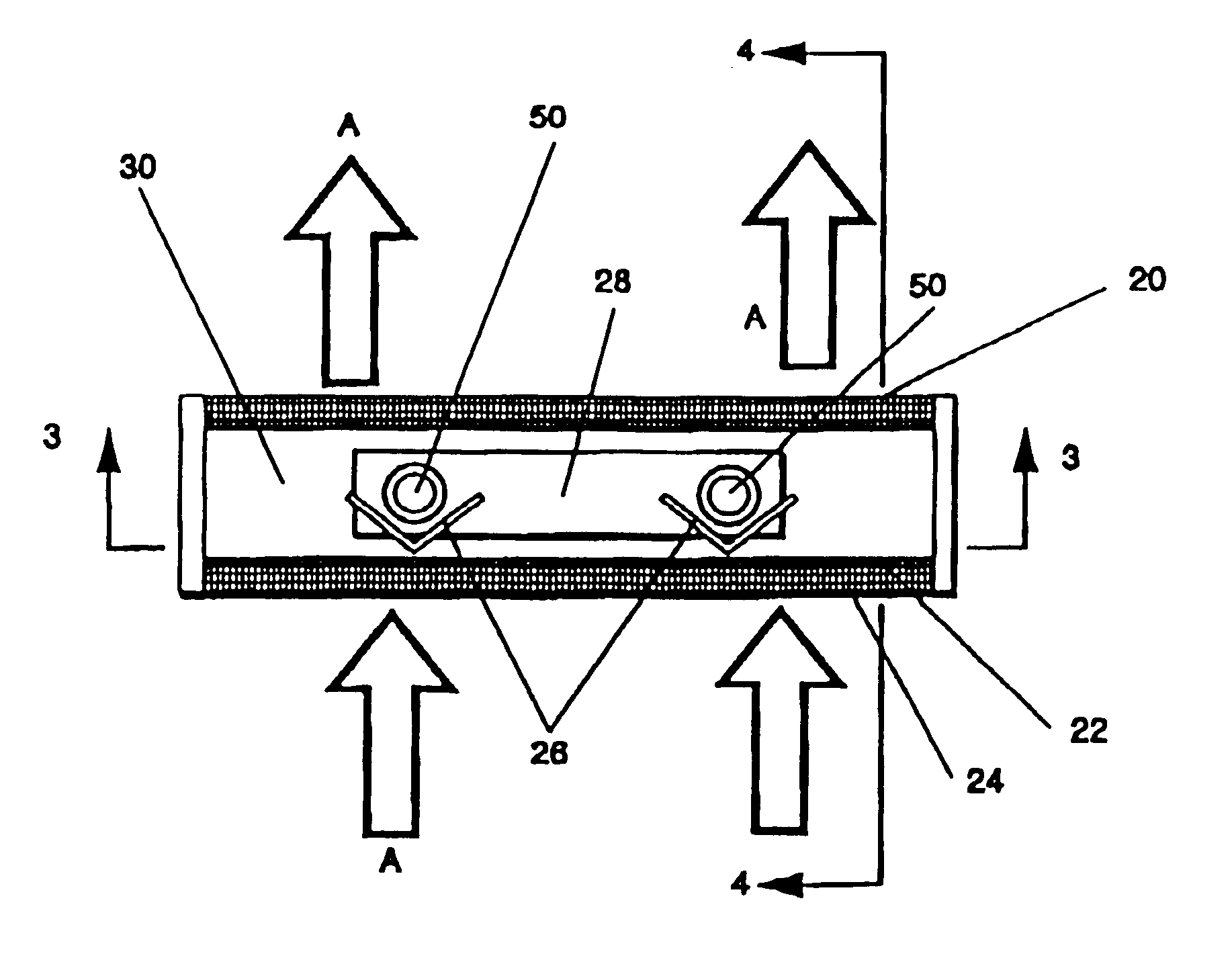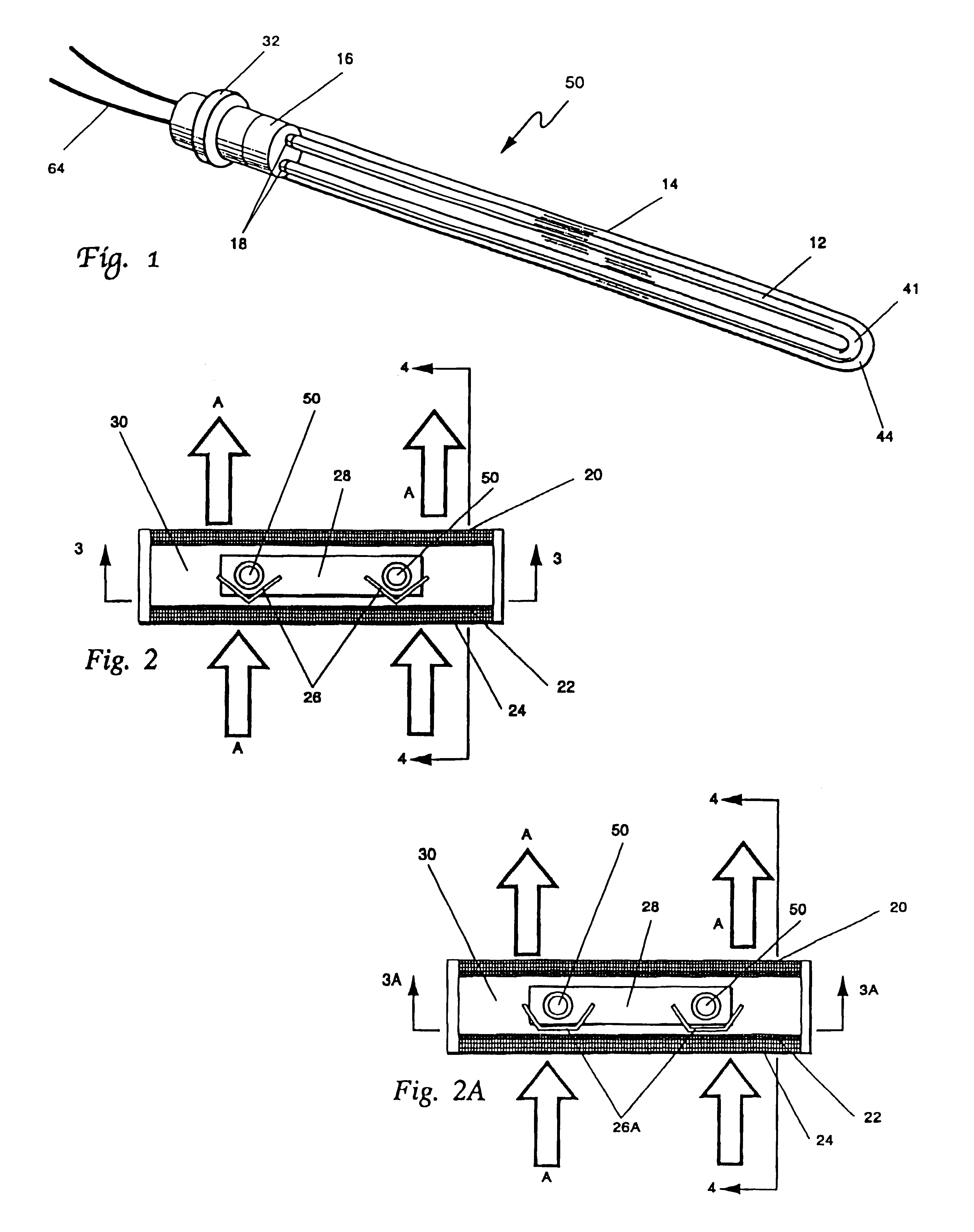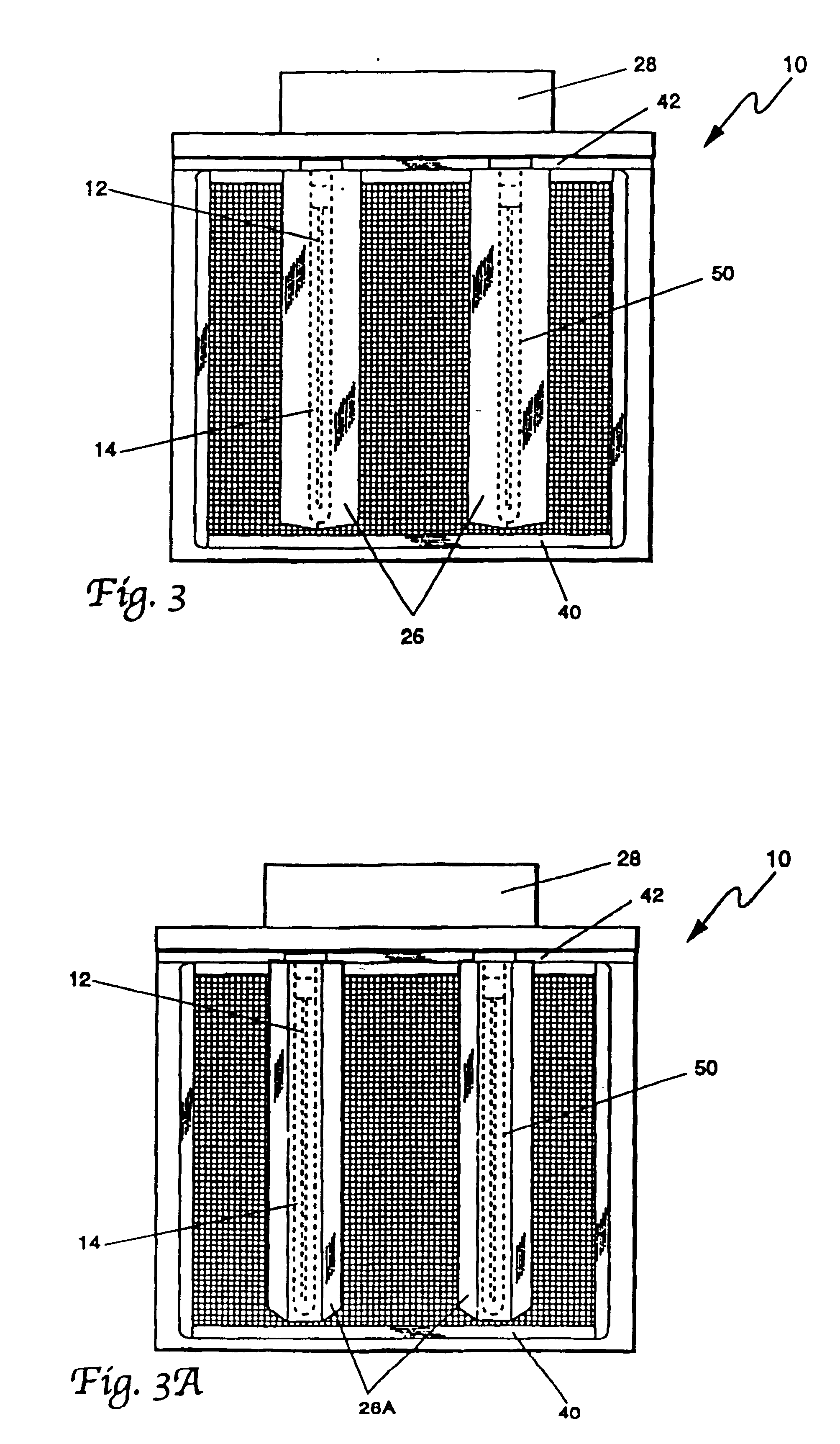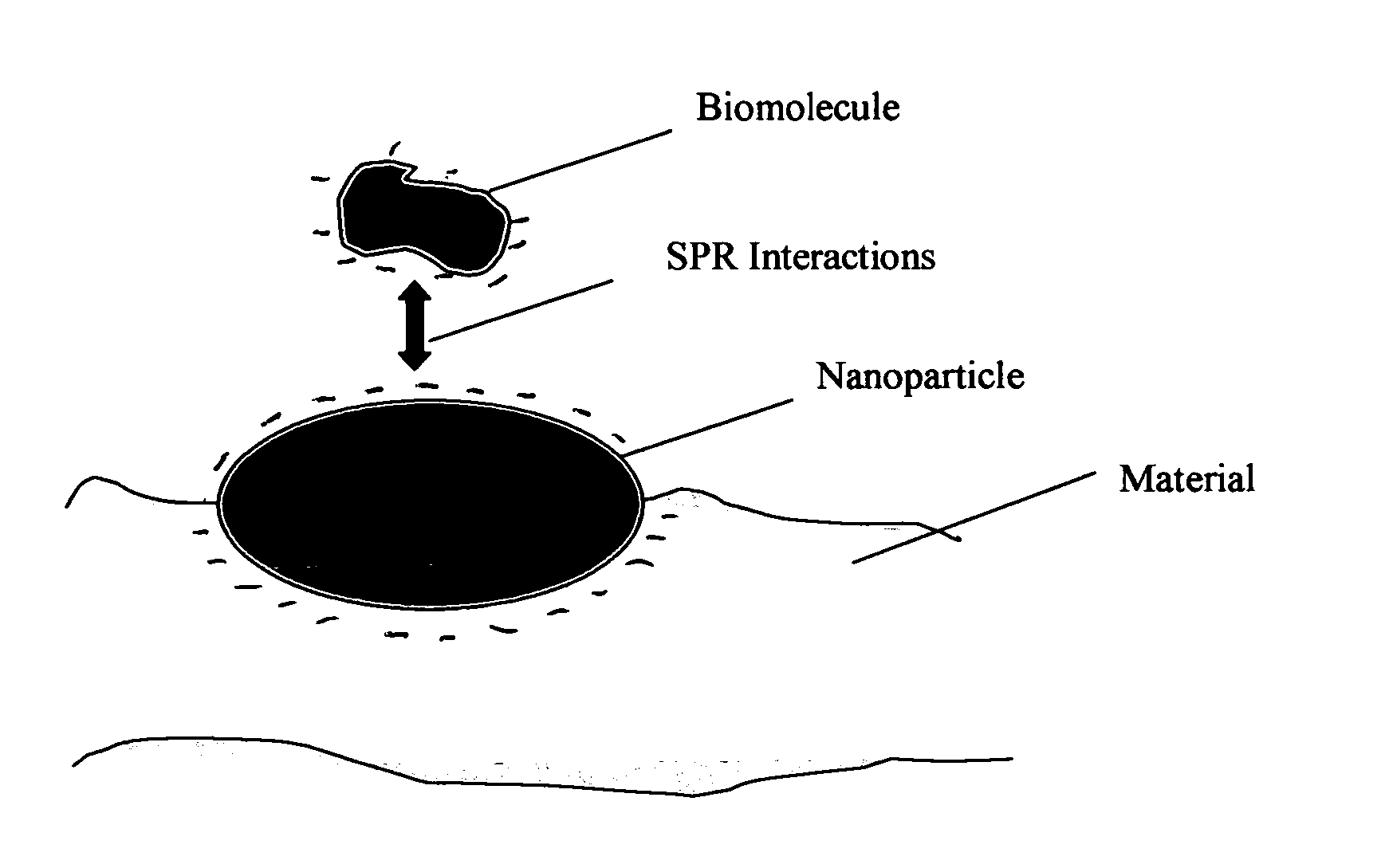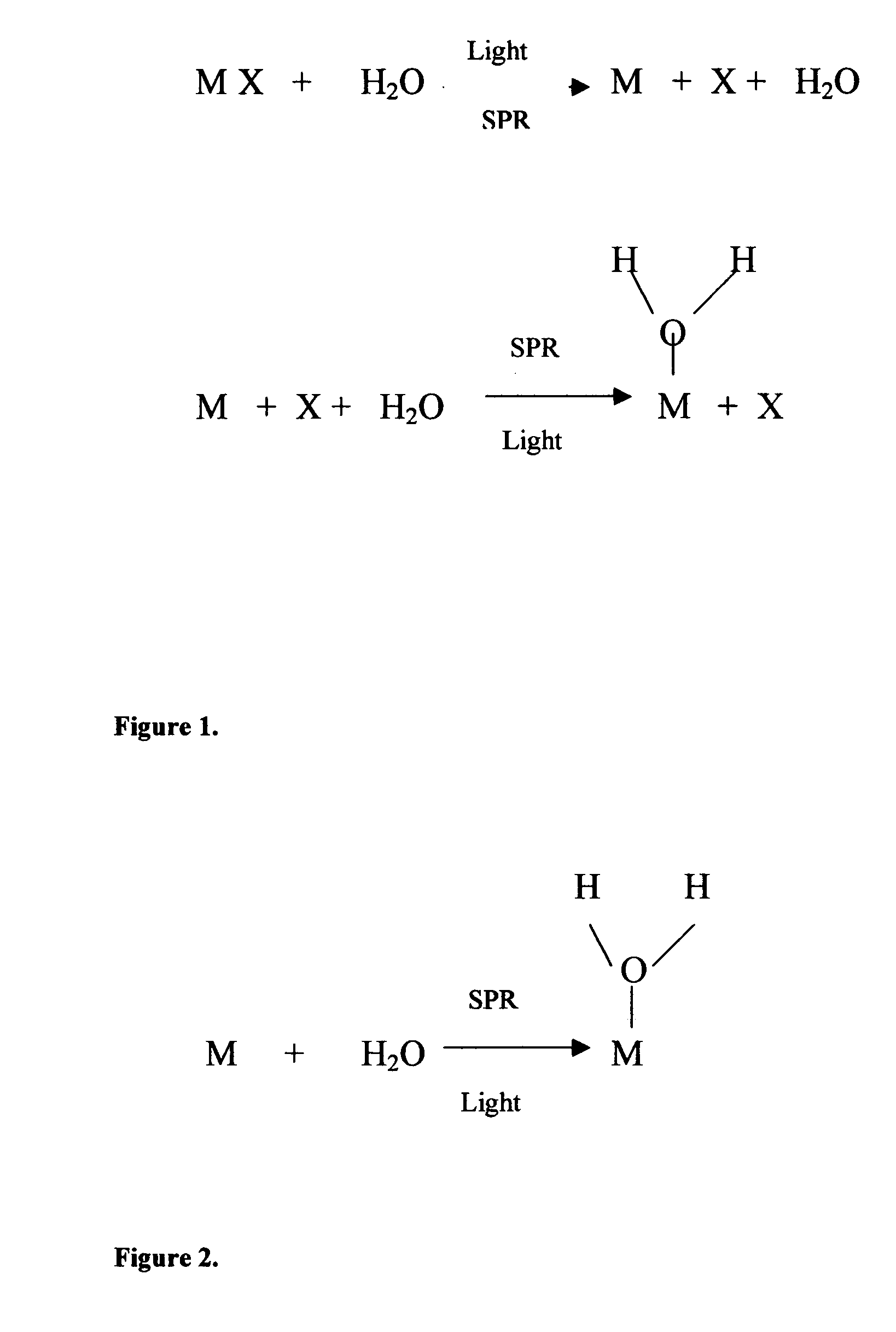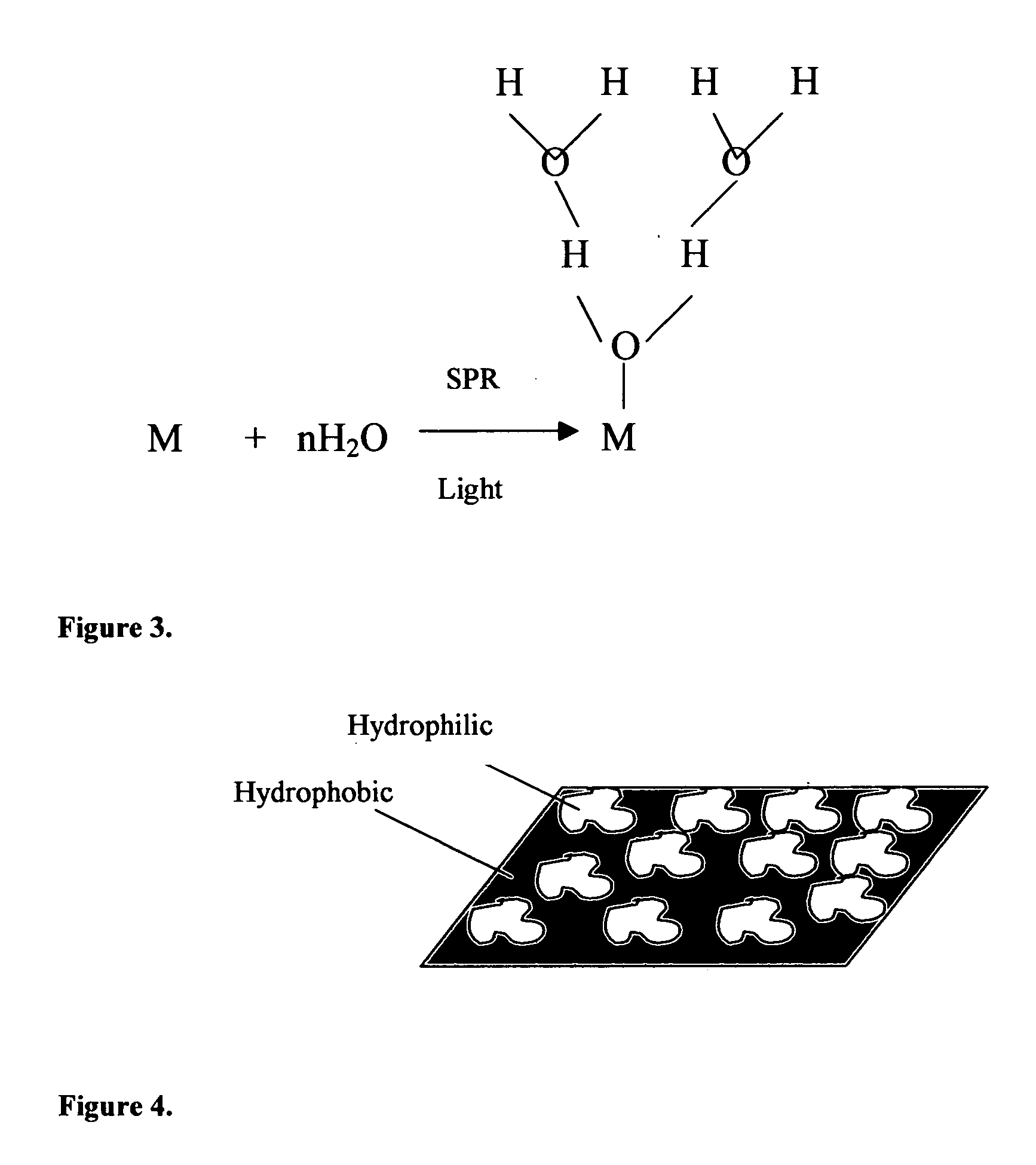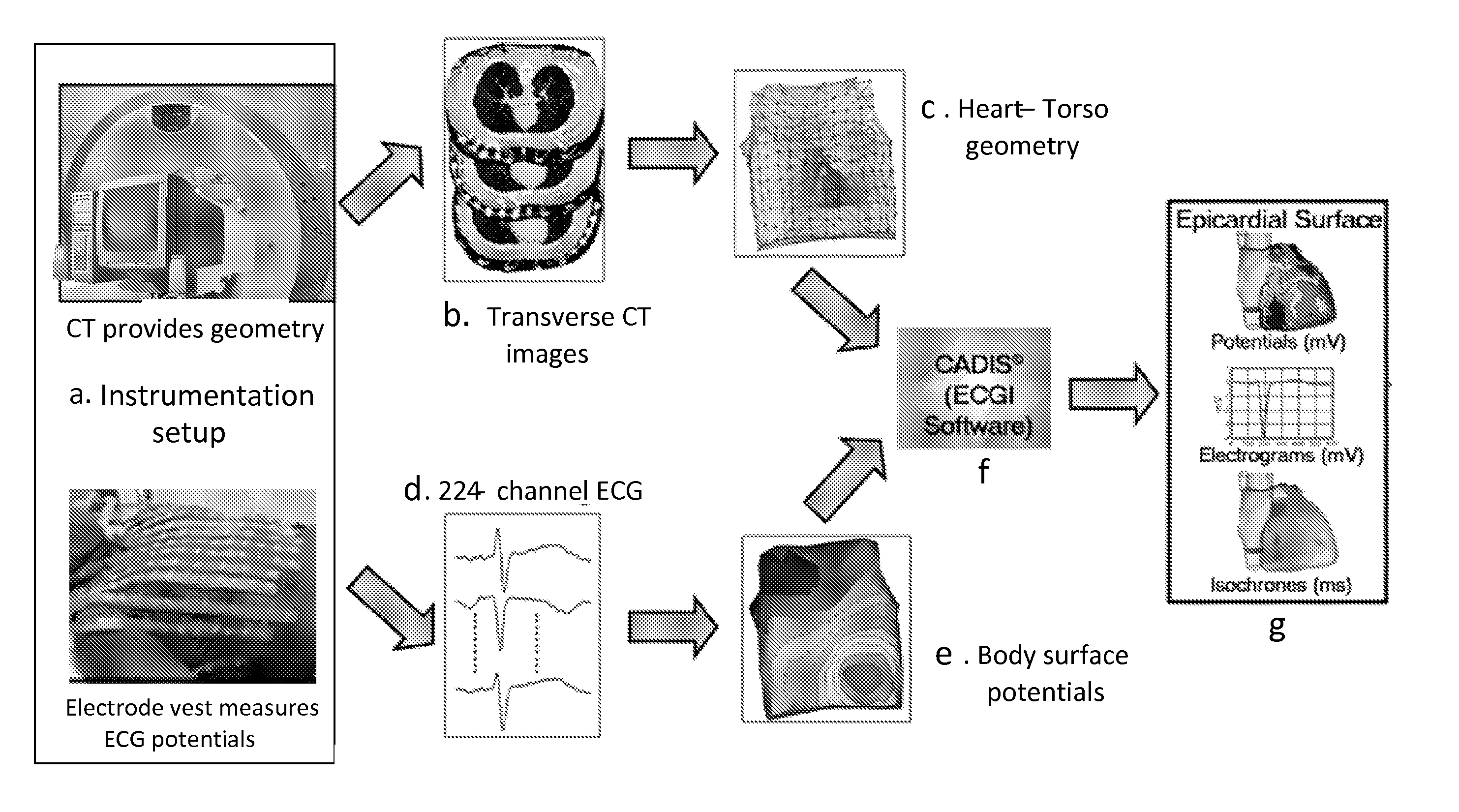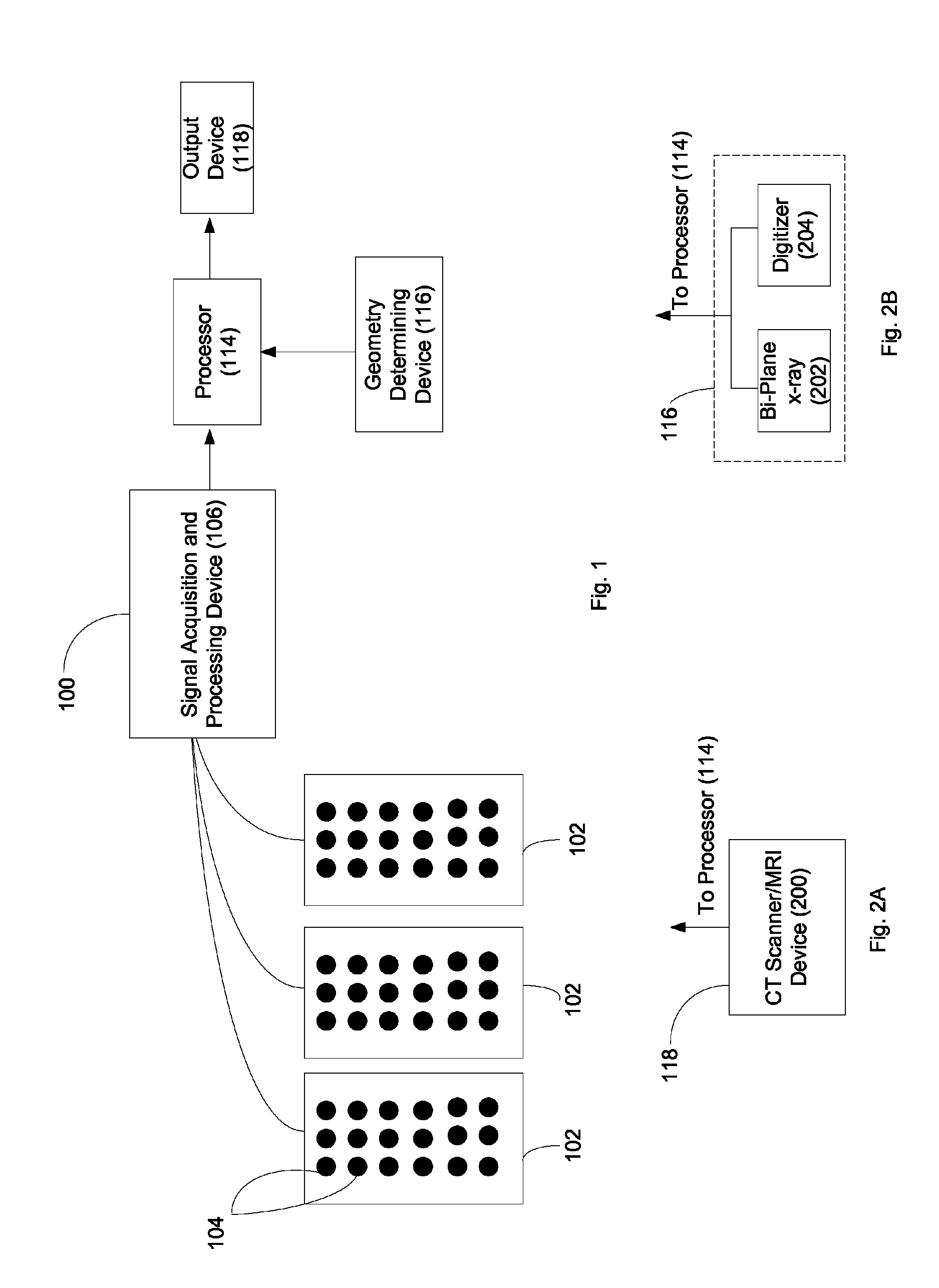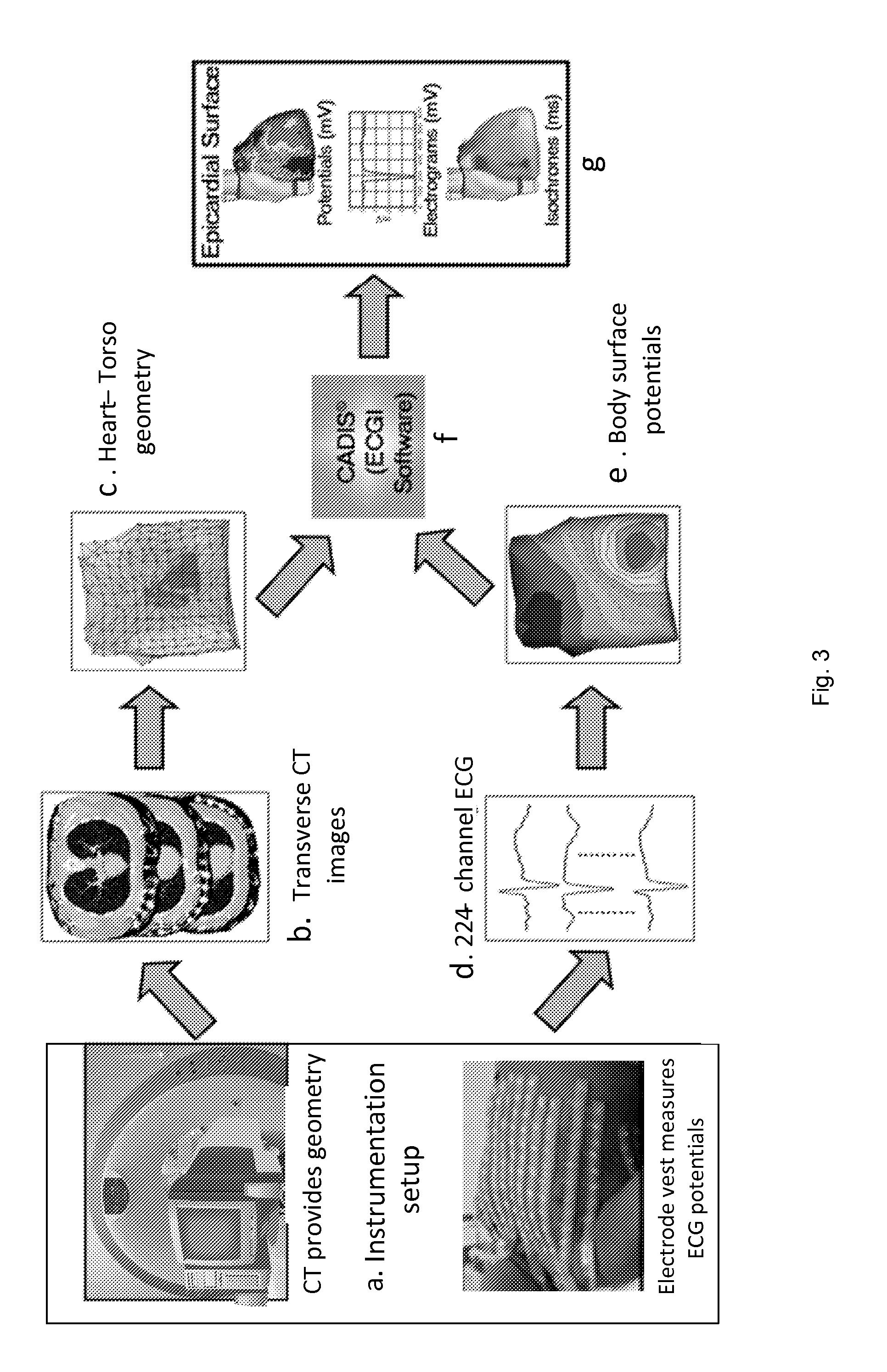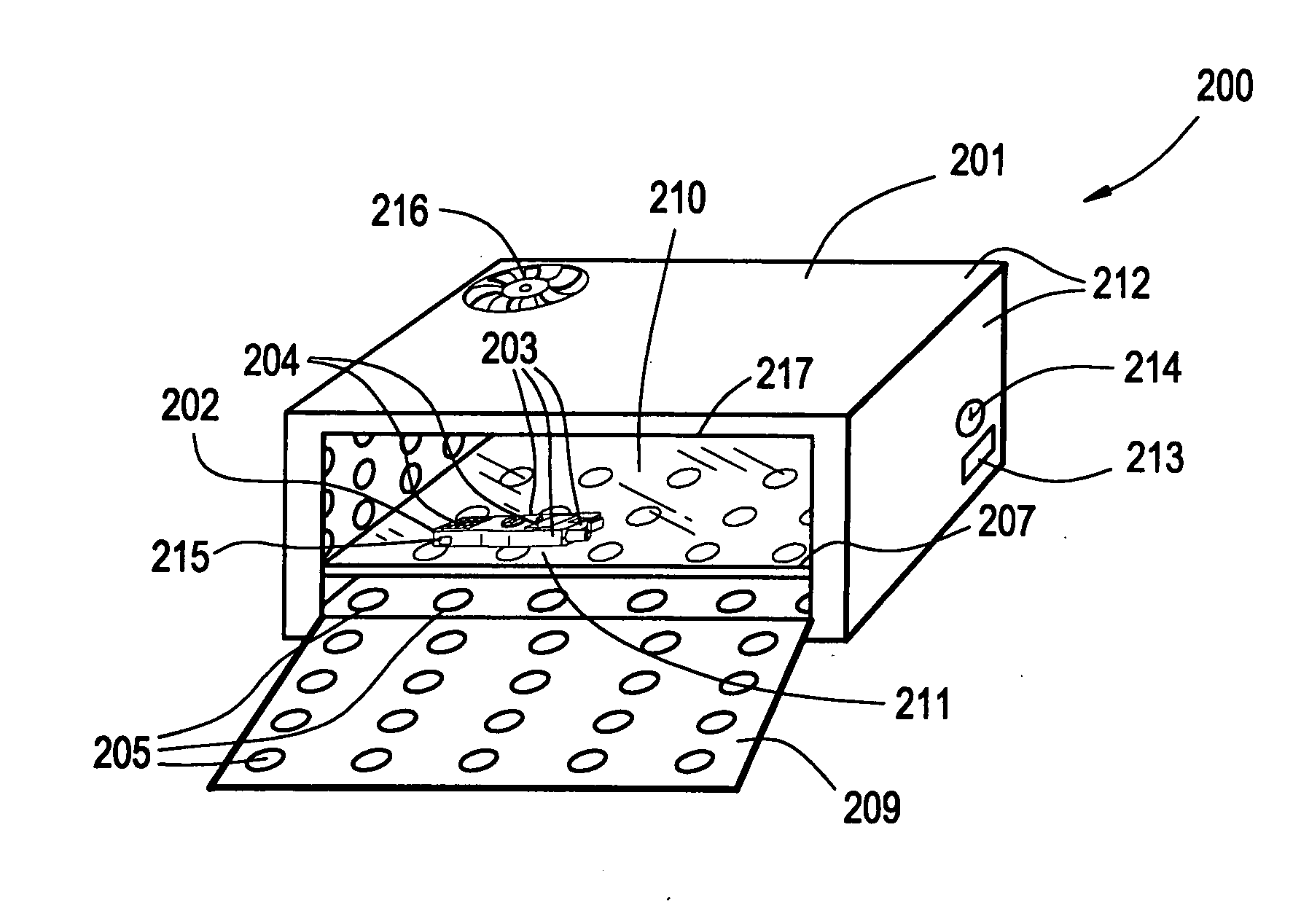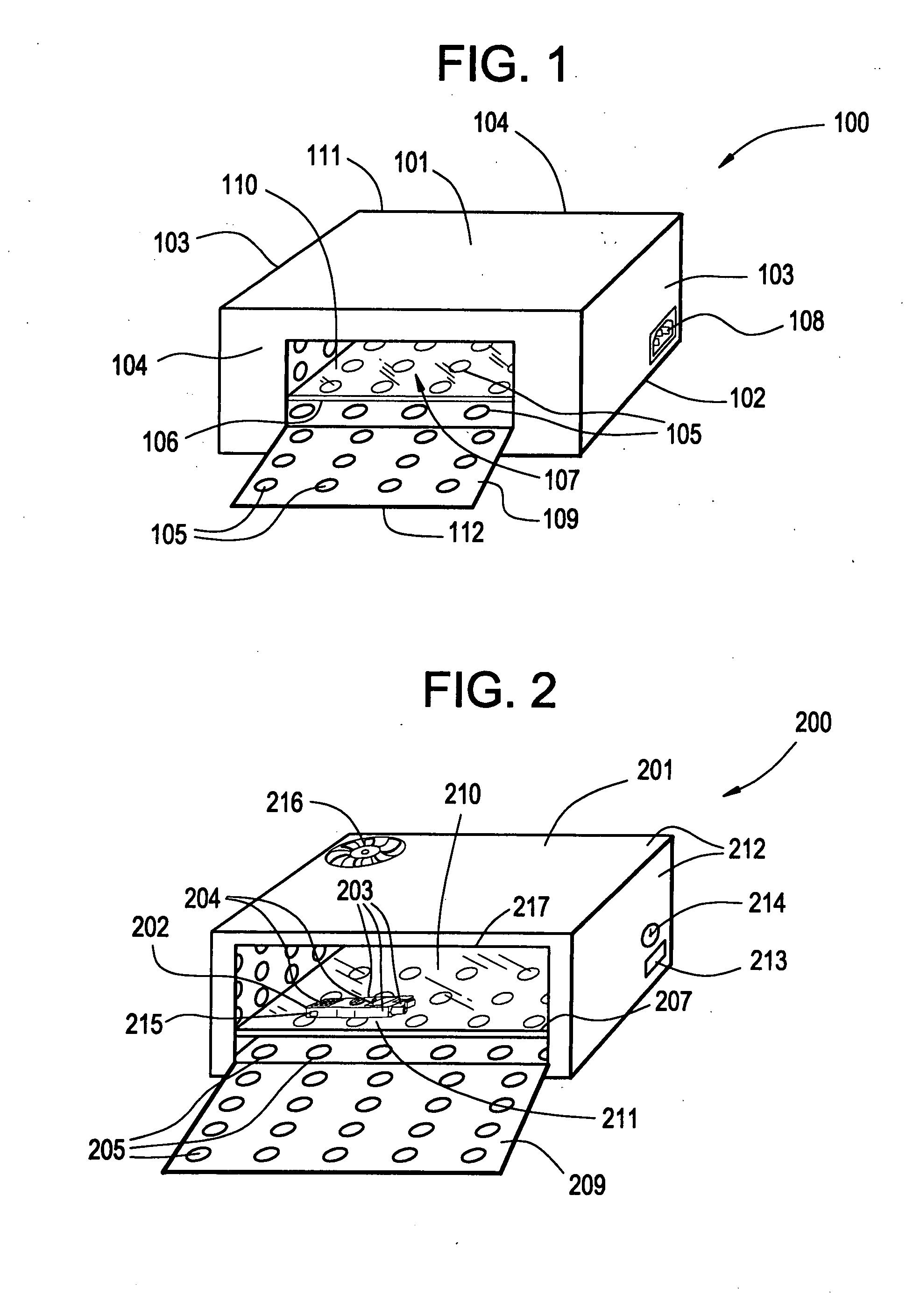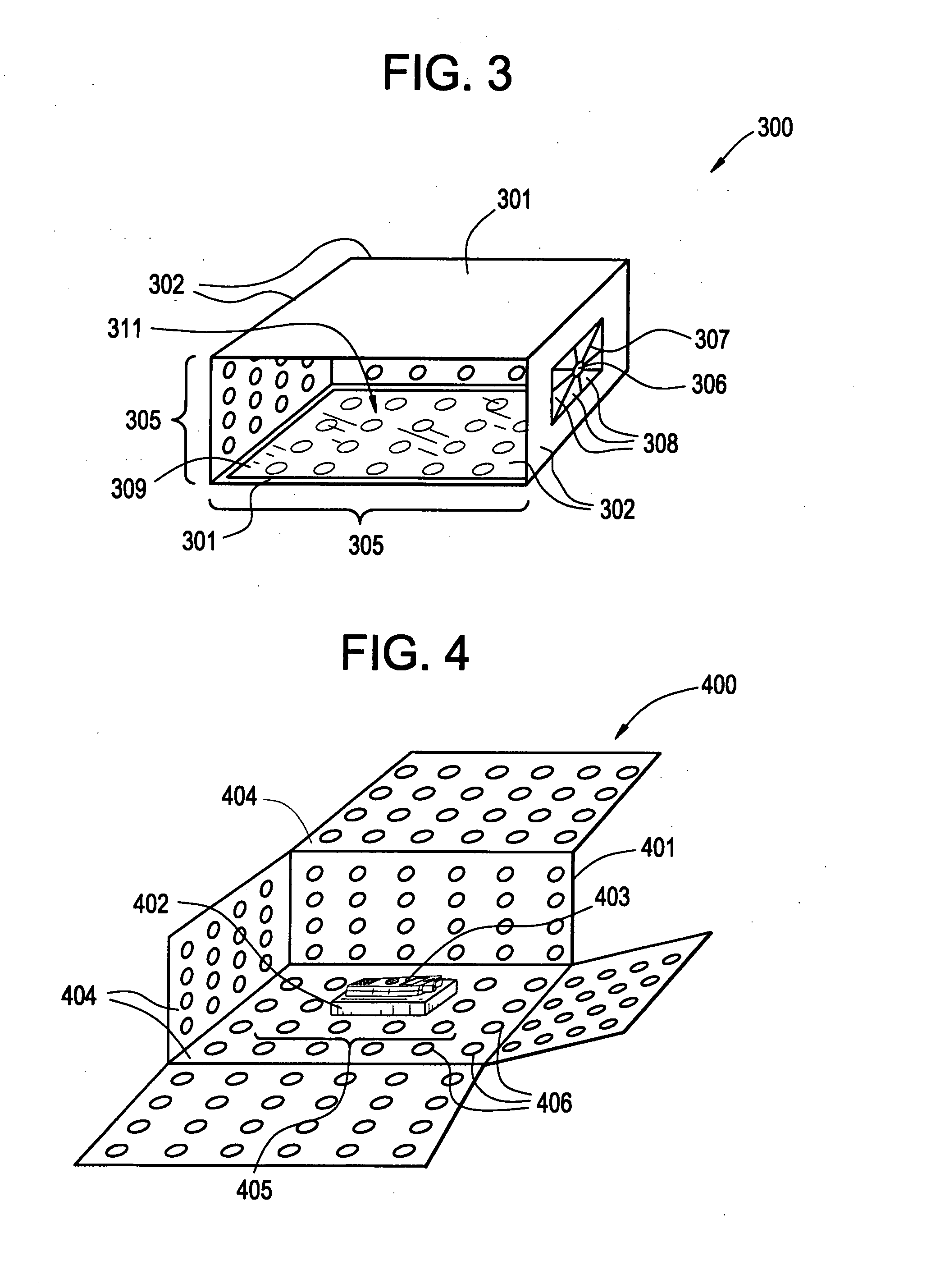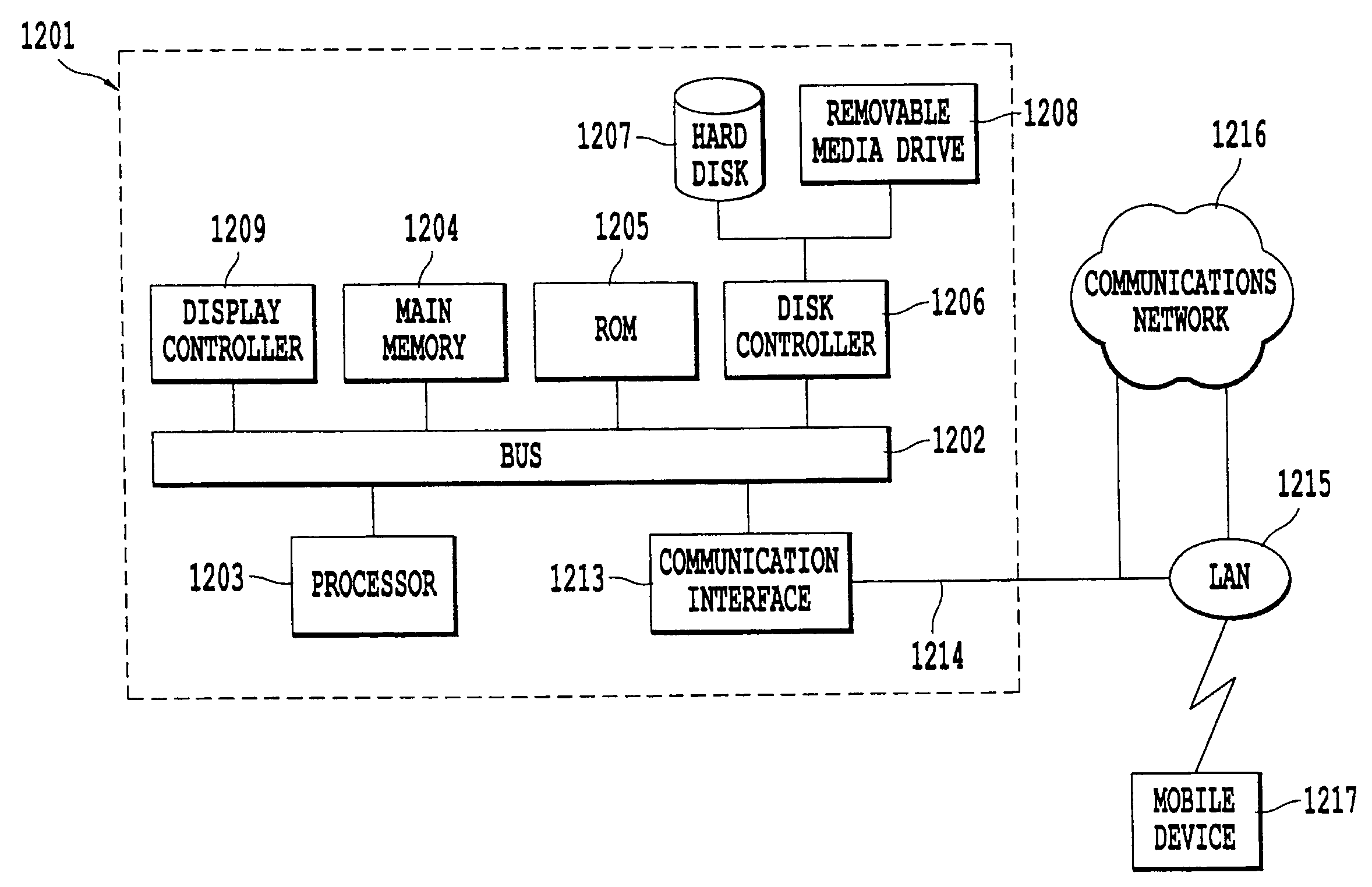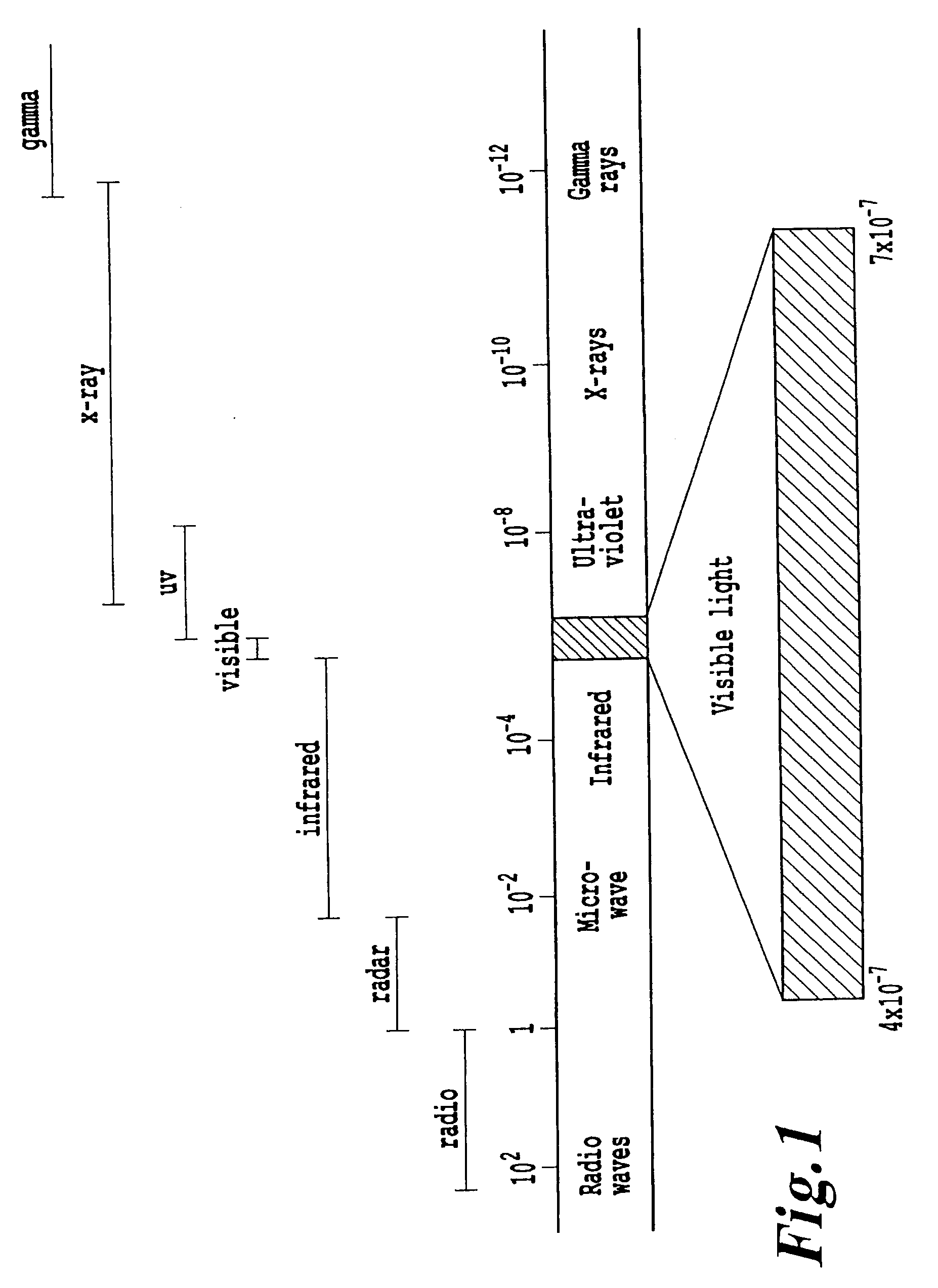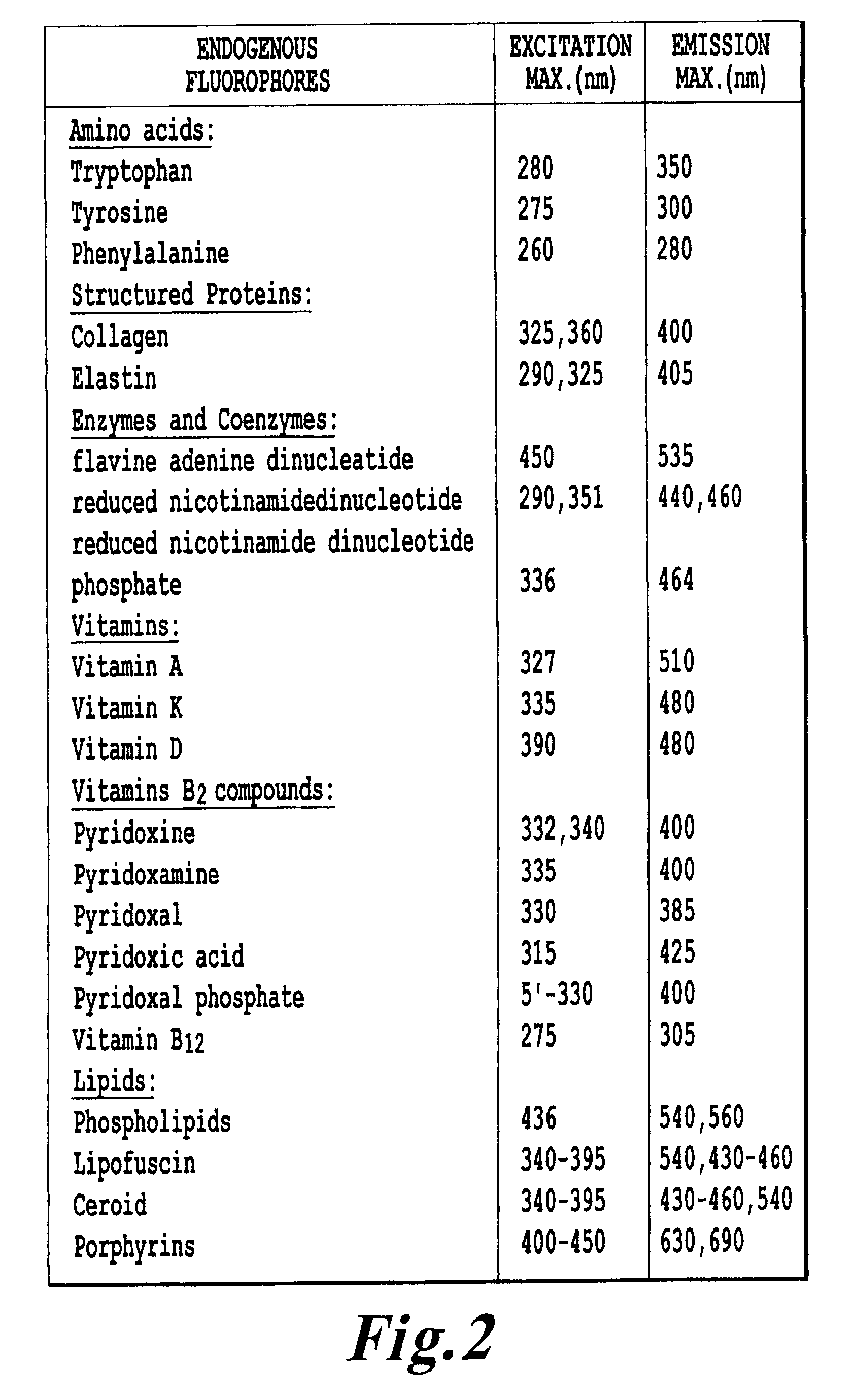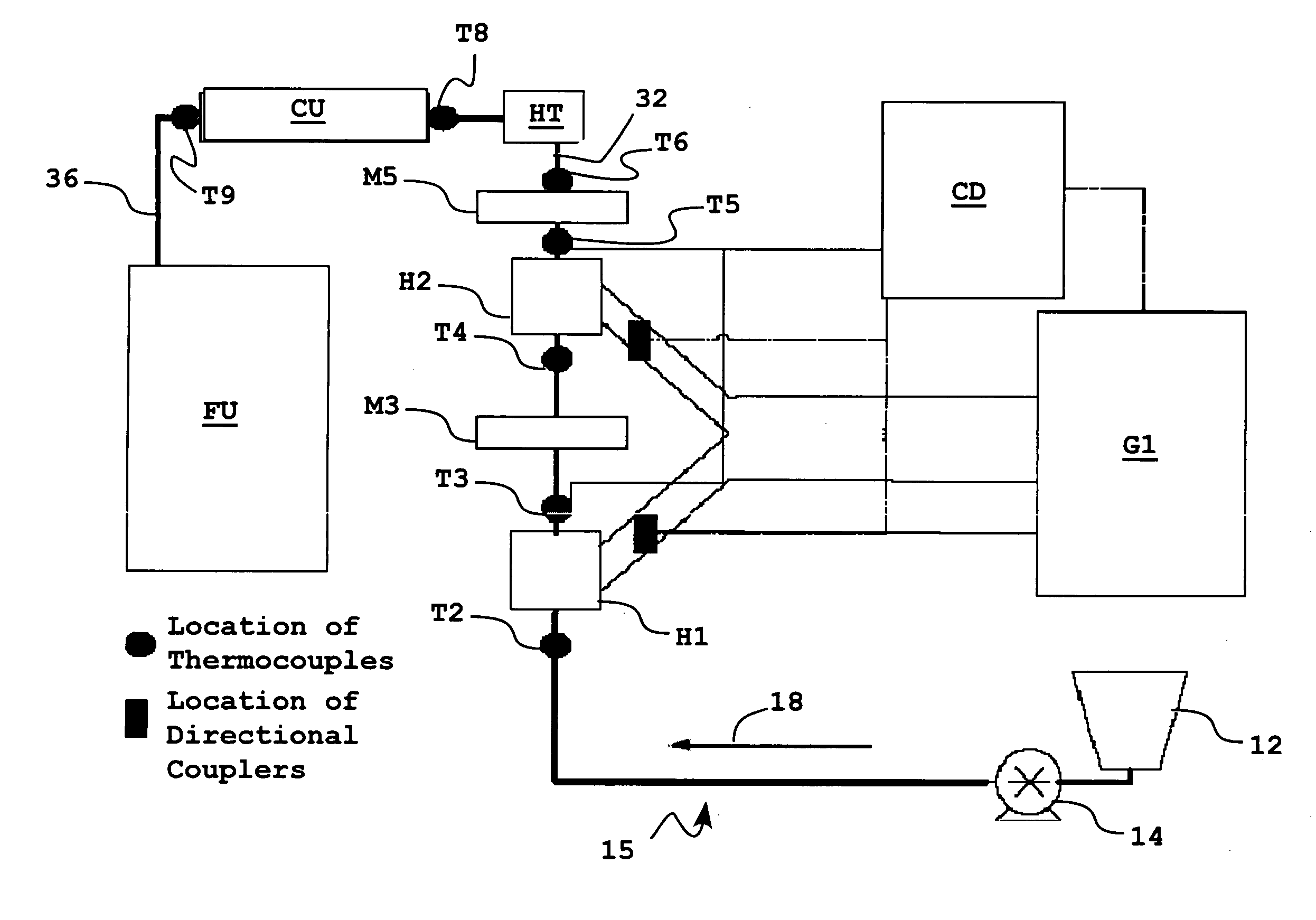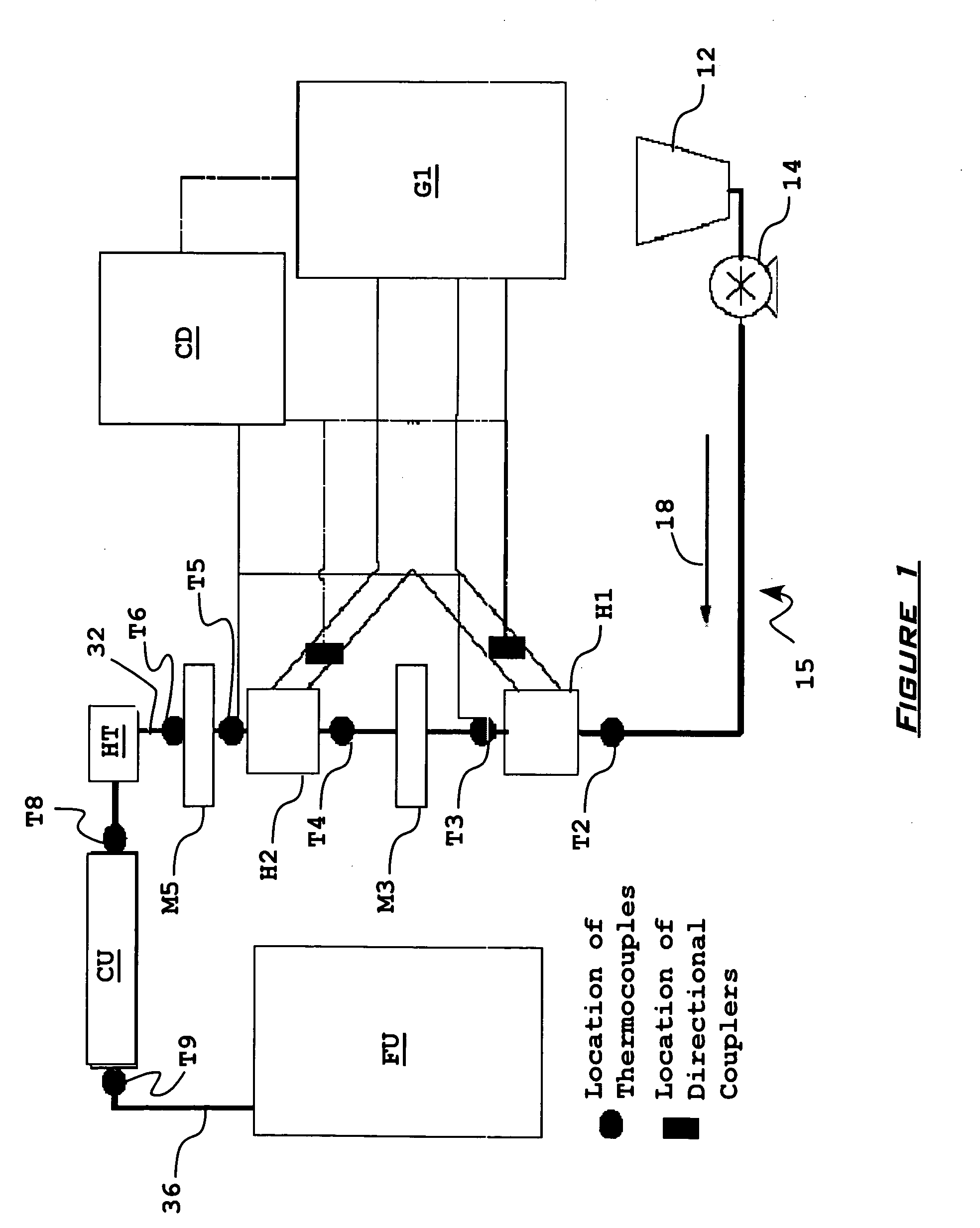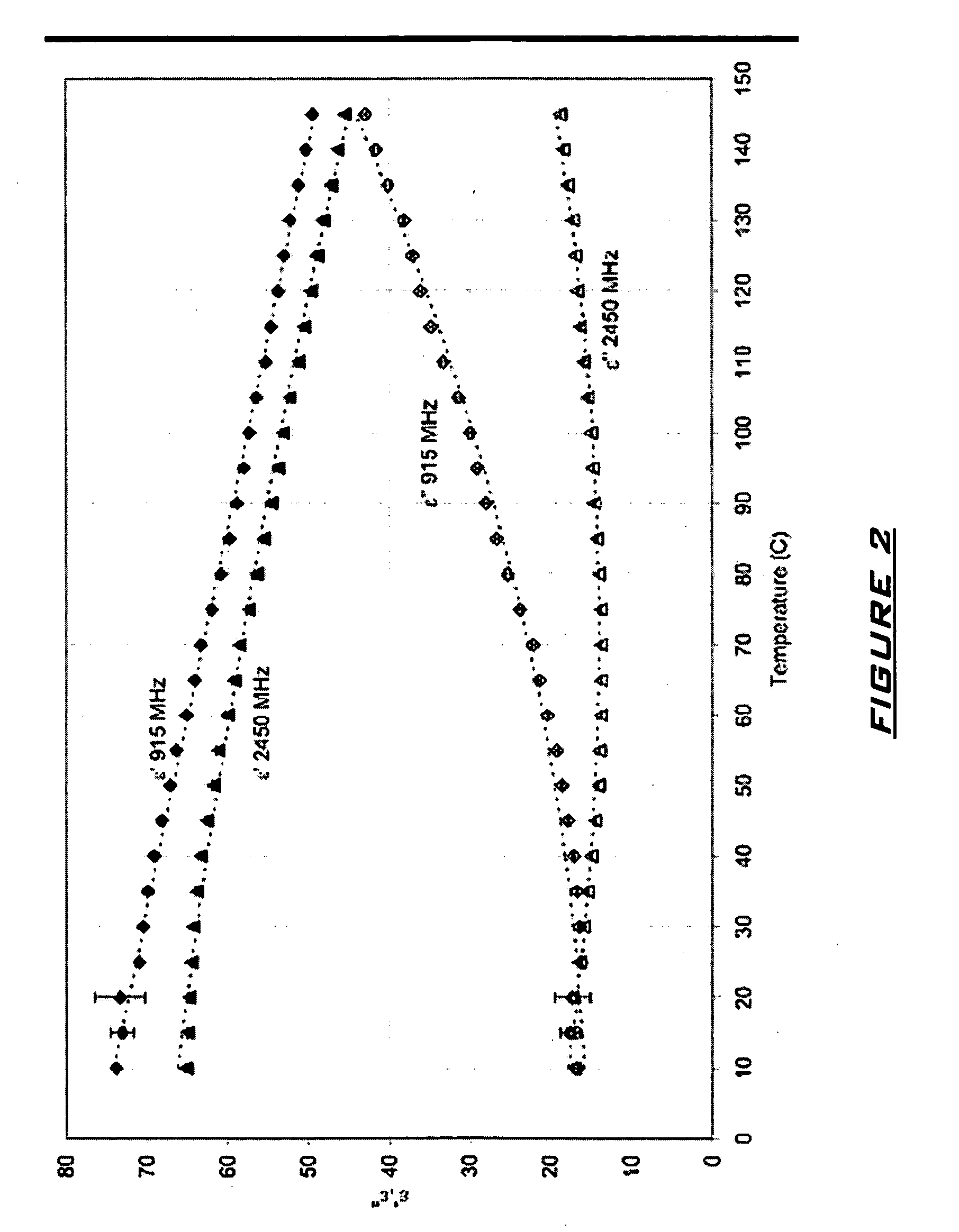Patents
Literature
23784results about "Radiation" patented technology
Efficacy Topic
Property
Owner
Technical Advancement
Application Domain
Technology Topic
Technology Field Word
Patent Country/Region
Patent Type
Patent Status
Application Year
Inventor
Method for sterilizing medical appliance
InactiveCN1634601AAvoid influenceImprove sterilization effectDiagnosticsSurgeryVacuum pressureMicrowave
A medical instrument sterilization method is disclosed, which characterizes in following process: pending medical instrument for sterilization treatment being placed in a closed container, then being vacuum pumped, the vacuum pressure of the container being controlled between 1 Pa to 1500 Pa, air and / or oxygen and / or inert gases are charged to closed container and the vacuum pressure being between 1 Pa to 1500 Pa, microwave is fed, the favorable power of which should make the gas charged into the container to generate ionization, the microwave be cut after the sterilization, then air being charged to release vacuum to finish the whole process.
Owner:吉林省中立实业有限公司
Bipolar forceps
ActiveUS8579897B2Likelihood that the wire may become damaged or broken can be reducedReduce the possibilityLavatory sanitorySurgical instruments for heatingEngineeringSurgical technical
In various surgical techniques, a bipolar forceps can be used to seal a vessel in two locations such that the vessel can be incised at a location positioned intermediate the two seal locations. The bipolar forceps can include a cutting element which can be configured to incise the vessel. In various embodiments, the cutting element can include a sharp edge which can be moved relative to the vessel. In at least one embodiment, the cutting element can be electrically connected to a source of energy. The bipolar forceps can include first and second electrodes positioned within first and second jaw members, respectively, wherein at least one of the jaw members can include a substantially tapered profile and can be configured to pull the vessel away from the surrounding soft tissue. Such jaw members can include ridges, teeth, and / or a textured outer surface configured to grip the soft tissue and / or vessel.
Owner:ETHICON ENDO SURGERY INC
Combined presentation unit for reposable battery operated surgical system
A portable presentation unit for sterilizing, charging, and testing components of a cordless surgical instrument is disclosed including a battery charger unit configured to recharge a battery pack of the cordless surgical instrument, a testing unit configured to test at least one of the battery pack or a reusable transducer / generator unit of the cordless surgical instrument, and a sterilization unit configured to sterilize at least one of the battery pack or the transducer / generator unit.
Owner:TYCO HEALTHCARE GRP LP
Apparatus and method for steam reprocessing flexible endoscopes
A system for reprocessing flexible endoscopes having lumen therein. The reprocessing system deploys steam to disinfect and / or sterilize the endoscopes, and designs, components, and methods for reducing or balancing the reprocessing cycle time and the effects of thermal expansion and contraction on the endoscopes.
Owner:MEDIVATORS INC
Analyte sensor
The present invention relates generally to systems and methods for measuring an analyte in a host. More particularly, the present invention relates to systems and methods for transcutaneous measurement of glucose in a host.
Owner:DEXCOM
Analyte sensor
The present invention relates generally to systems and methods for measuring an analyte in a host. More particularly, the present invention relates to systems and methods for transcutaneous measurement of glucose in a host.
Owner:DEXCOM INC
Analyte sensor
The present invention relates generally to systems and methods for measuring an analyte in a host. More particularly, the present invention relates to systems and methods for transcutaneous measurement of glucose in a host.
Owner:DEXCOM INC
Inductively coupled ballast circuit
InactiveUS7385357B2Maximize power efficiencyMore currentCircuit arrangementsTreatment involving filtrationCurrent limitingLoad sensing
A ballast circuit is disclosed for inductively providing power to a load. The ballast circuit includes an oscillator, a driver, a switching circuit, a resonant tank circuit and a current sensing circuit. The current sensing circuit provides a current feedback signal to the oscillator that is representative of the current in the resonant tank circuit. The current feedback signal drives the frequency of the ballast circuit causing the ballast circuit to seek resonance. The ballast circuit preferably includes a current limit circuit that is inductively coupled to the resonant tank circuit. The current limit circuit disables the ballast circuit when the current in the ballast circuit exceeds a predetermined threshold or falls outside a predetermined range.
Owner:PHILIPS IP VENTURES BV
Inductively coupled ballast circuit
InactiveUS7180248B2Maximize power efficiencyMore currentWater treatment parameter controlWater/sewage treatment by irradiationCurrent limitingLoad sensing
A ballast circuit is disclosed for inductively providing power to a load. The ballast circuit includes an oscillator, a driver, a switching circuit, a resonant tank circuit and a current sensing circuit. The current sensing circuit provides a current feedback signal to the oscillator that is representative of the current in the resonant tank circuit. The current feedback signal drives the frequency of the ballast circuit causing the ballast circuit to seek resonance. The ballast circuit preferably includes a current limit circuit that is inductively coupled to the resonant tank circuit. The current limit circuit disables the ballast circuit when the current in the ballast circuit exceeds a predetermined threshold or falls outside a predetermined range.
Owner:PHILIPS IP VENTURES BV
Inductively coupled ballast circuit
InactiveUS20050093475A1Small region of changeInefficient power transferWater treatment parameter controlWater/sewage treatment by irradiationCurrent limitingElectrical ballast
A ballast circuit is disclosed for inductively providing power to a load. The ballast circuit includes an oscillator, a driver, a switching circuit, a resonant tank circuit and a current sensing circuit. The current sensing circuit provides a current feedback signal to the oscillator that is representative of the current in the resonant tank circuit. The current feedback signal drives the frequency of the ballast circuit causing the ballast circuit to seek resonance. The ballast circuit preferably includes a current limit circuit that is inductively coupled to the resonant tank circuit. The current limit circuit disables the ballast circuit when the current in the ballast circuit exceeds a predetermined threshold or falls outside a predetermined range.
Owner:PHILIPS IP VENTURES BV
Inductively powered lamp assembly
InactiveUS6917163B2Quiet operationLess-precise alignmentPoint-like light sourceElongate light sourcesResonanceCapacitor
A lamp assembly configured to inductively receive power from a primary coil. The inductively powered lamp assembly includes a lamp circuit including a secondary and a lamp connected in series. In a first aspect, the lamp circuit includes a capacitor connected in series with the lamp and the secondary to tune the circuit to resonance. The capacitor is preferably selected to have a reactance that is substantially equal to or slightly less than the reactance of the secondary and the impedance of the lamp. In a second aspect, the inductively powered lamp assembly includes a sealed transparent sleeve that entirely encloses the lamp circuit so that the transparent sleeve is fully closed and unpenetrated. The transparent sleeve is preferably the lamp sleeve itself, with the secondary, capacitor and any desired starter mechanism disposed within its interior.
Owner:PHILIPS IP VENTURES BV
Inductively powered apparatus
InactiveUS20050127850A1Brightness variesEfficient powerLiquid separation auxillary apparatusPoint-like light sourcePower apparatusElectric power
An inductive power supply system for providing power to one or more inductively powered devices. The system includes a mechanism for varying the physical distance or the respective orientation between the primary coil and secondary coil to control the amount of power supplied to the inductively powered device. In another aspect, the present invention is directed to an inductive power supply system having a primary coil and a receptacle disposed within the magnetic field generated by the primary coil. One or more inductively powered devices are placed randomly within the receptacle to receive power inductively from the primary coil. The power supply circuit includes circuitry for adjusting the power supplied to the primary coil to optimize operation based on the position and cumulative characteristics of the inductively powered device(s) disposed within the receptacle.
Owner:PHILIPS IP VENTURES BV
Method of manufacturing a lamp assembly
InactiveUS20050116650A1Improve power factorReduce power lossPoint-like light sourceElongate light sourcesElectric forceResonance
A lamp assembly configured to inductively receive power from a primary coil. The lamp assembly includes a lamp circuit including a secondary and a lamp connected in series. In a first aspect, the lamp circuit includes a capacitor connected in series with the lamp and the secondary to tune the circuit to resonance. The capacitor is preferably selected to have a reactance that is substantially equal to or slightly less than the reactance of the secondary and the impedance of the lamp. In a second aspect, the lamp assembly includes a sealed transparent sleeve that entirely encloses the lamp circuit so that the transparent sleeve is fully closed and unpenetrated. The transparent sleeve is preferably the lamp sleeve itself, with the secondary, capacitor and any desired starter mechanism disposed within its interior.
Owner:PHILIPS IP VENTURES BV
High efficiency solid-state light source and methods of use and manufacture
ActiveUS20050152146A1Eliminate needImprove light outputOptical radiation measurementPoint-like light sourceDevice materialFluorescence
A high-intensity light source is formed by a micro array of a semiconductor light source such as a LEDs, laser diodes, or VCSEL placed densely on a liquid or gas cooled thermally conductive substrate. The semiconductor devices are typically attached by a joining process to electrically conductive patterns on the substrate, and driven by a microprocessor controlled power supply. An optic element is placed over the micro array to achieve improved directionality, intensity, and / or spectral purity of the output beam. The light module may be used for such processes as, for example, fluorescence, inspection and measurement, photopolymerzation, ionization, sterilization, debris removal, and other photochemical processes.
Owner:SILICON VALLEY BANK
Ultraviolet light emitting diode systems and methods
InactiveUS20070086912A1Impact their growthLavatory sanitoryEnergy based wastewater treatmentUltraviolet lightsUltraviolet light emitting diodes
Methods and apparatus in which ultraviolet radiation is generated from at least one first LED, an object is irradiated with the ultraviolet radiation, and the ultraviolet radiation is controlled so as to generate at least one perceivable visual effect based on an interaction between the ultraviolet radiation and the object.
Owner:PHILIPS SOLID STATE LIGHTING SOLUTIONS
Methods for sterilizing biological materials by irradiation over a temperature gradient
InactiveUS6908591B2Effective sterilizationImprove permeabilityDead animal preservationLavatory sanitoryBiological materialsBiology
Methods are disclosed for sterilizing tissue to reduce the level of one or more active biological contaminants or pathogens therein, such as viruses, bacteria, (including inter- and intracellular bacteria, such as mycoplasmas, ureaplasmas, nanobacteria, chlamydia, rickettsias), yeasts, molds, fungi, spores, prions or similar agents responsible, alone or in combination, for TSEs and / or single or multicellular parasites. The methods involve sterilizing one or more tissues with irradiation.
Owner:CLEARANT
Coaxial catheter instruments for ablation with radiant energy
InactiveUS20050038419A9Rapid and effective photoablationLess timeStentsUltrasound therapyCoaxial catheterTarget tissue
Ablation methods and instruments are disclosed for creating lesions in tissue, especially cardiac tissue for treatment of arrhythmias and the like. Percutaneous ablation instruments in the form of coaxial catheter bodies are disclosed having at least one central lumen therein and having one or more balloon structures at the distal end region of the instrument. The instruments include an energy emitting element which is independently positionable within the lumen of the instrument and adapted to project radiant energy through a transmissive region of a projection balloon to a target tissue site. The instrument can optionally include at least one expandable anchor balloon disposed about, or incorporated into an inner catheter body designed to be slid over a guidewire. This anchor balloon can serve to position the device within a lumen, such as a pulmonary vein. A projection balloon structure is also disclosed that can be slid over the first (anchor balloon) catheter body and inflated within the heart, to define a staging from which to project radiant energy. An ablative fluid can also be employed outside of the instrument (e.g., between the balloon and the target region) to ensure efficient transmission of the radiant energy when the instrument is deployed. In another aspect of the invention, generally applicable to a wide range of cardiac ablation instruments, mechanisms are disclosed for determining whether the instrument has been properly seated within the heart, e.g., whether the device is in contact with a pulmonary vein and / or the atrial surface, in order to form a lesion by heating, cooling or projecting energy. This contact-sensing feature can be implemented by an illumination source situated within the instrument and an optical detector that monitors the level of reflected light. Measurements of the reflected light (or wavelengths of the reflected light) can thus be used to determine whether contact has been achieved and whether such contact is continuous over a desired ablation path.
Owner:CARDIOFOCUS INC
Process for medical implant of cross-linked ultrahigh molecular weight polyethylene having improved balance of wear properties and oxidation resistance
A medical implant of ultrahigh molecular weight polyethylene having an improved balance of wear properties and oxidation resistance is prepared by irradiating a preform of ultrahigh molecular weight polyethylene, annealing the irradiated preform in the absence of oxygen to a temperature at or above the onset of melting temperature, and forming an implant from the stabilized cross-linked polymer. Implants prepared according to the process of the present invention have comparable oxidation resistance and superior wear performance compared to unirradiated ultrahigh molecular weight polyethylene.
Owner:DEPUY ORTHOPAEDICS INC
System and method of sterilizing an implantable medical device
An implantable system having internal circuitry configured to withstand a pre-determined amount of sterilization radiation is provided. In general, the system includes an internal control module in electrical communication with an implantable medical device. The internal control module can include a circuit board configured to withstand radiation and / or any number of integrated circuits (e.g., application specific integrated circuits) wherein the circuits or at least some portion thereof are fabricated so as to withstand some amount of radiation. For example, some portion of the circuitry can be fabricated utilizing radiation compliant material(s), silicon-on-insulator technology, and / or gallium arsenide technology. Additionally, the circuitry can include various components which are inherently resistant to such radiation (e.g., components fabricated utilizing magnetic field based technology, surface acoustical wave devices, etc.). A method of sterilizing an implantable medical device via radiation is also provided.
Owner:ETHICON ENDO SURGERY INC
Signal transmission apparatus and interconnection structure
ActiveUS7446567B2Sufficient capabilitySimple and scalableReliability increasing modificationsBatteries circuit arrangementsLine pairHarmonic
Apparatus for transmitting a digital signal within, for example, an integrated circuit includes a signal transmission line with a directional coupler at one or both ends. The directional coupler blocks the direct-current component of the digital signal while transmitting the alternating-current component, including enough higher harmonics to transmit a well-defined pulse waveform. A suitable directional coupler consists of two adjacent line pairs in materials with different dielectric constants. The apparatus may also include a driver of the inverter type, a receiver of the differential amplifier type, a terminating resistor, and a power-ground transmission line pair for supplying power to the driver. An all-metallic transmission-line structure is preferably maintained from the output interconnections in the driver to the input interconnections in the receiver.
Owner:PANASONIC CORP +11
Methods for using resonant acoustic and/or resonant acousto-EM energy to detect and/or effect structures
InactiveUS7165451B1Avoid damageAccurate detectionVibration measurement in solidsUltrasonic/sonic/infrasonic diagnosticsParticle physicsQuantum electrodynamics
Owner:GR INTELLECTUAL RESERVE LLC
Packaging system
A packaging system for hydrating sterile devices without comprising the integrity of the sterilization. The packaging system may include an enclosure for enclosing a device requiring hydration, a container containing a hydrate, a base located within the interior of the enclosure and an activating member located within the interior of the enclosure. The container and the device may be located within a receptacle. The receptacle may rest on the base and the activating member may be affixed on top of the receptacle. A force may be exerted on an exterior portion of the enclosure such that the activating member pushes on the receptacle and crushes or ruptures the container. The hydrate located within the container is then released to the device, thereby hydrating the device without breaking the seal of the enclosure. The sterilized environment is therefore maintained and the device is hydrated.
Owner:MEDTRONIC MIMIMED INC
Methods and apparatus for transferring product information from manufacturers to retailers and distributors via the Internet
InactiveUS20060011720A1Digital data information retrievalVisual presentationUniversal Product CodeDomain name
Methods and apparatus for disseminating over the Internet product information produced and maintained by product manufacturers using existing universal product codes (bar codes) as access keys. A cross-referencing resource preferably implemented by the existing Internet Domain Name System (DNS) receives Internet request messages containing all or part of a universal product code value and returns the Internet address at which data or services relating to the identified product, or to the manufacturer of that product, may be obtained. By using preferred Web data storage formats and protocol which conform to XML, XLS, XLink, Xpointer, RDF and Web service standards specifications, product and company information may be seamlessly identified, retrieved and integrated with information from other sources. A “web register” module can be employed to provide an Internet interface between a shared sales Internet server and an otherwise conventional inventory control system, and operates in conjunction with the cross-referencing server to provide detailed product information to Internet shoppers who may purchase goods from existing stores via the Internet.
Owner:PROD ASSOC TECH LLC +1
Air actinism chamber apparatus and method
An apparatus and method for ultraviolet irradiation of air for the purpose of removing contaminants from that air is disclosed. A U-shaped ultraviolet bulb enshrouded within a quartz tube provides enhanced contaminant destruction characteristics. By combining a plurality of those bulbs in a chamber that is of polished aluminum, and further combining aluminum filters therewith, added irradiation enhancement is achieved. Further provided are baffles or baffling proximate the ultraviolet bulbs that cause the air to go turbulent thus drawing the air closer to the ultraviolet bulb and further enhancing the contaminant destruction characteristics. Moreover disclosed is treatment of substrates with a chemical agent that facilitates the arrest of contaminants from the air onto the substrate for further irradiation of the contaminants from the bulbs. This further irradiation breaks down the arrested contaminants thus providing the substrate with a self-cleansing effect.
Owner:PHASYC
Cleaning tools with UV flash unit
A combination tool for cleaning and sanitizing a surface is disclosed. The tool includes a cleaning device and at least one UV flash unit. The cleaning device can be adapted for either wet or dry cleaning. The combination tool can also include a dispensing unit that can dispense a treatment agent. The tool can also include a sensor that can detect surface properties. In some arrangements, the tool includes a motive component that can propel the tool robotically.
Owner:THE CLOROX CO
Method of plasmon-enhanced properties of materials and applications thereof
InactiveUS20050164169A1Bioreactor/fermenter combinationsMaterial nanotechnologyInfraredThermochromism
Methods and applications of surface plasmon resonance-enhanced antibacterial, anti-adhere, adhere, catalytic, hydrophilic, hydrophobic, spectral change, biological and chemical decomposition properties of materials with embedded nanoparticles are disclosed. A method of the nonlinear generation of surface plasmon resonance enables the use of light with wavelengths from X-Ray to IR to enhance properties of materials by several orders of magnitude. The nanoparticle size is crucial for the enhancement and their size is considered to be in the proposed methods and applications within a range of 0.1 nm to 200,000 nm. The nanoparticles preferably are made of noble metals and / or semiconductor oxides. The invention describes a very broad spectrum of applications of surface plasmon resonance-enhanced properties of materials with embedded nanoparticles, from environmental cleanup by road pavement and construction materials, self-cleaning processes of surface materials, thermochromic effects on heat blocking materials, corrosion preventing paint, to sanitization by antibacterial textile fabrics, filters, personal clothing, contact lenses and medical devices.
Owner:SPR ADVANCED TECH INC
System and method for noninvasive electrocardiographic imaging (ECGI)
ActiveUS7983743B2Easy to rebuildImprove performanceComputerised tomographsGaseous substancesElectricityEngineering
Owner:CASE WESTERN RESERVE UNIV +1
Sterilization apparatus
ActiveUS20080265179A1Efficient configurationEfficient removalMaterial analysis using wave/particle radiationElectric discharge tubesTarget surfaceLength wave
Owner:HAND HELD PRODS
Plasmonic assisted systems and methods for interior energy-activation from an exterior source
A method and a system for producing a change in a medium disposed in an artificial container. The method places in a vicinity of the medium at least one of a plasmonics agent and an energy modulation agent. The method applies an initiation energy through the artificial container to the medium. The initiation energy interacts with the plasmonics agent or the energy modulation agent to directly or indirectly produce the change in the medium. The system includes an initiation energy source configured to apply an initiation energy to the medium to activate the plasmonics agent or the energy modulation agent.
Owner:DUKE UNIV +1
Methods and apparatuses for thermal treatment of foods and other biomaterials, and products obtained thereby
InactiveUS20060151533A1Speed up heat exchangeImproved physical contactOpening closed containersBottle/container closureMedicineContinuous flow
Methods and apparatuses for thermally treating flowable materials using electromagnetic radiation, and foods and materials obtained thereby. Also provided are methods of continuous flow thermal treatment of biomaterials, apparatuses for performing the same, and products prepared using the methods and / or apparatuses.
Owner:SIMUNOVIC JOSIP +6
Features
- R&D
- Intellectual Property
- Life Sciences
- Materials
- Tech Scout
Why Patsnap Eureka
- Unparalleled Data Quality
- Higher Quality Content
- 60% Fewer Hallucinations
Social media
Patsnap Eureka Blog
Learn More Browse by: Latest US Patents, China's latest patents, Technical Efficacy Thesaurus, Application Domain, Technology Topic, Popular Technical Reports.
© 2025 PatSnap. All rights reserved.Legal|Privacy policy|Modern Slavery Act Transparency Statement|Sitemap|About US| Contact US: help@patsnap.com
